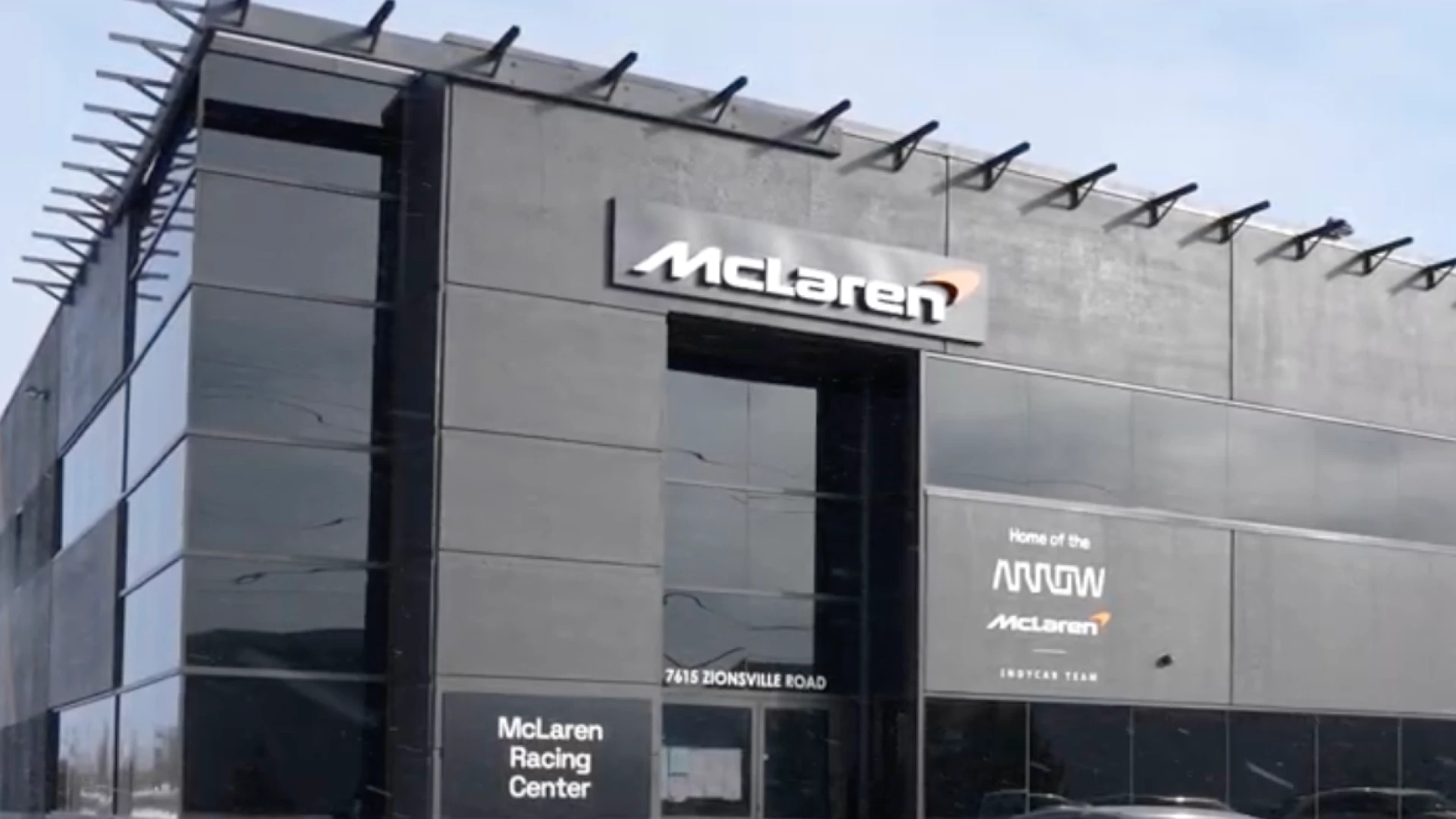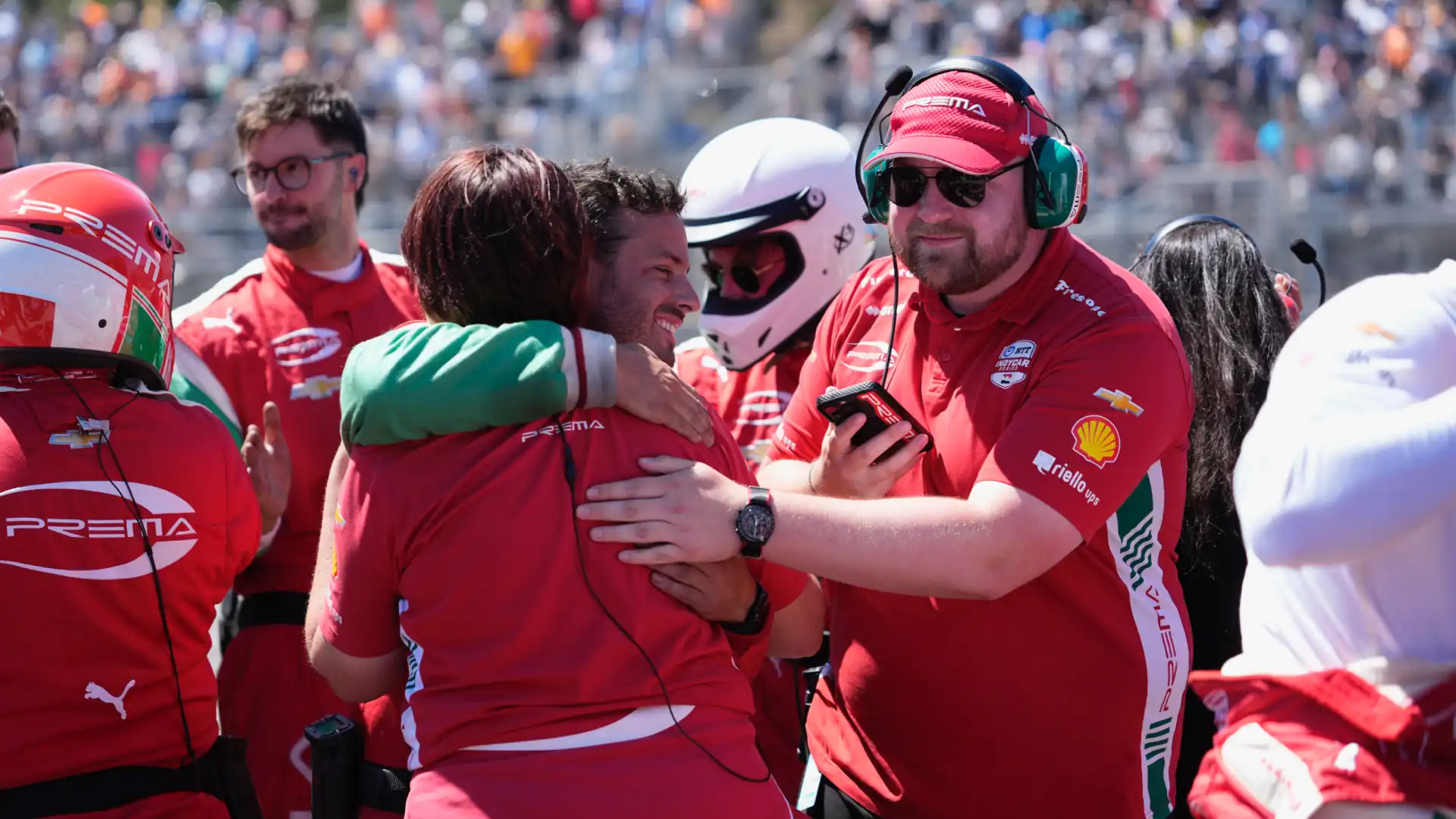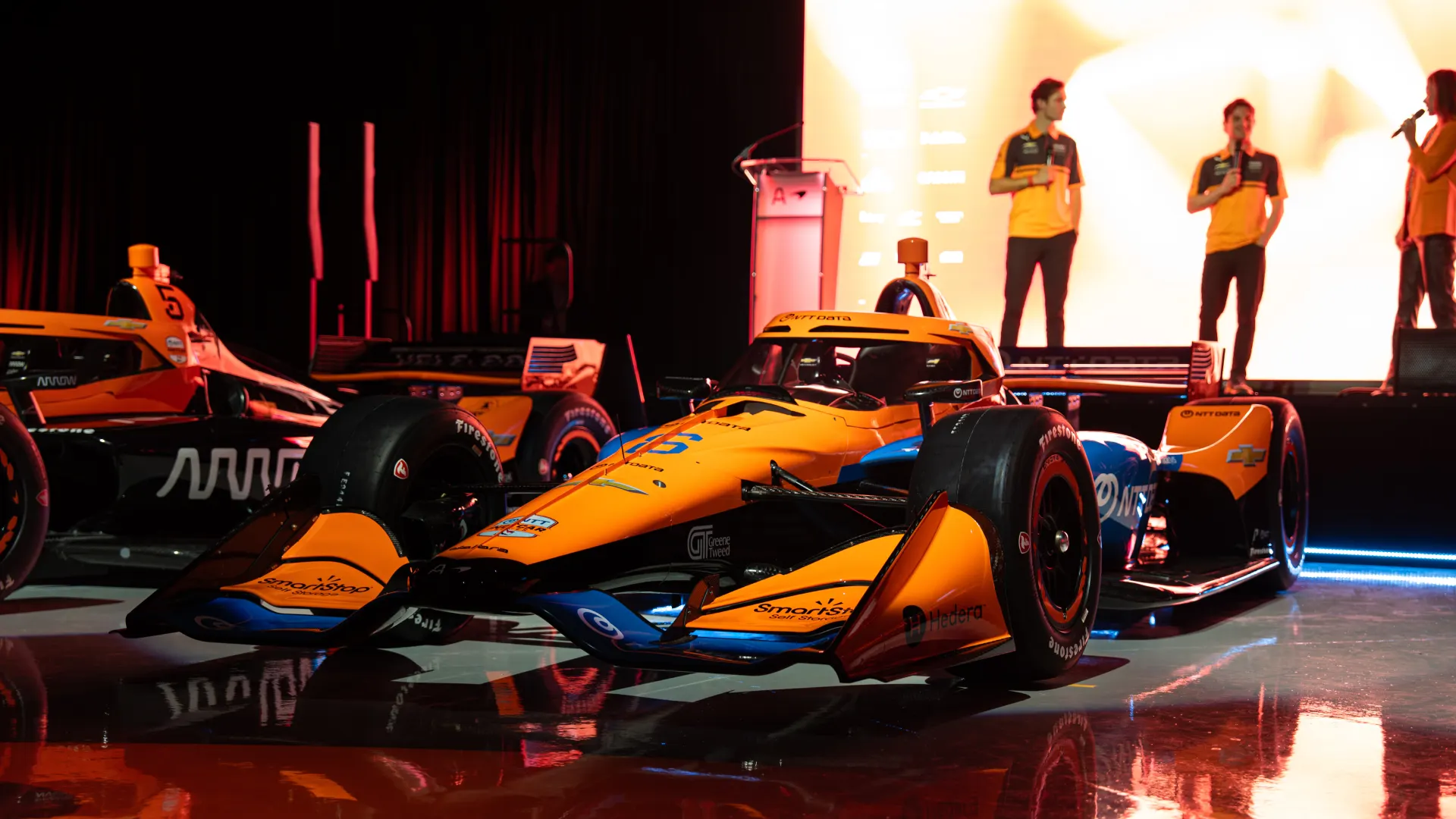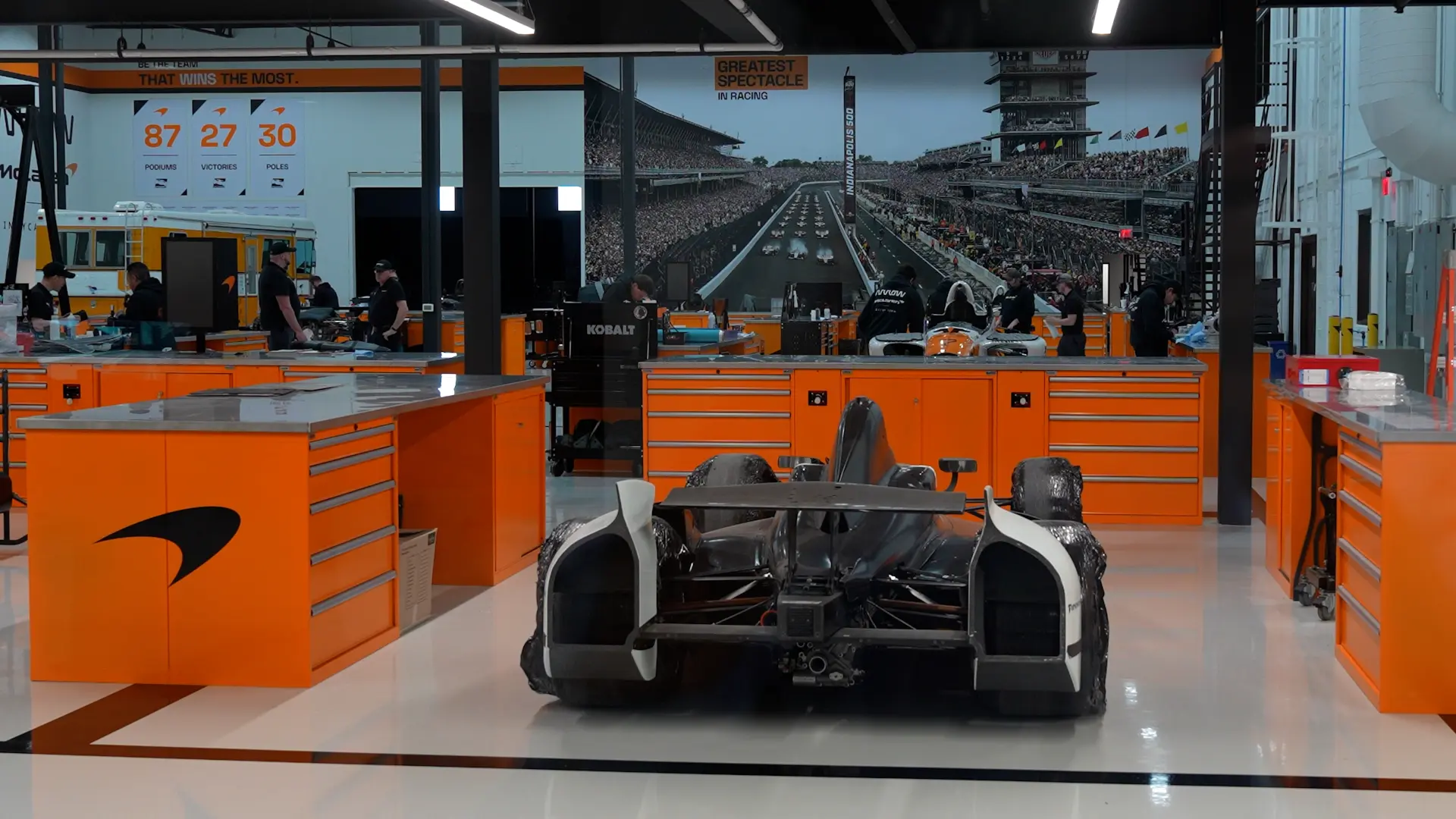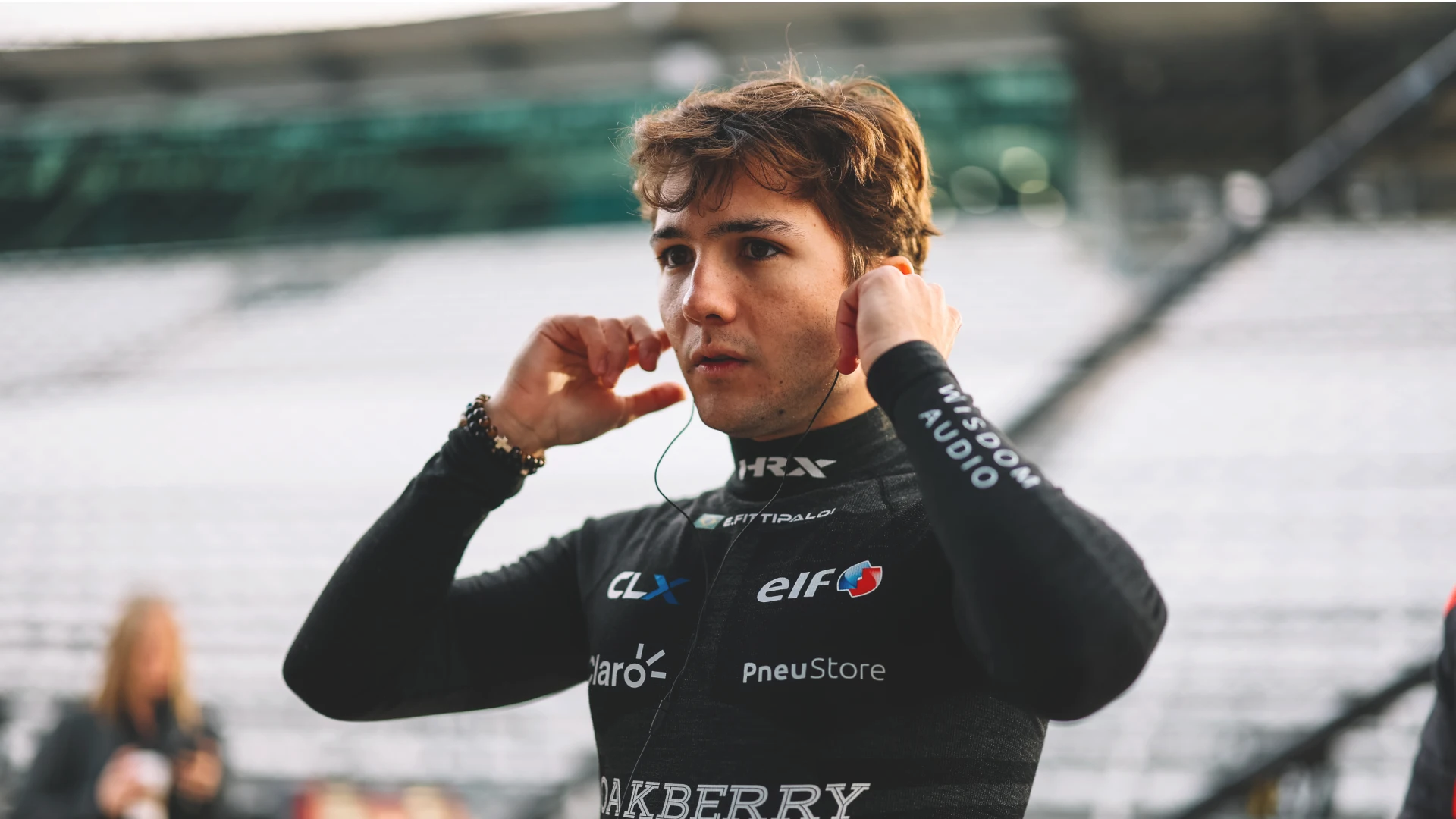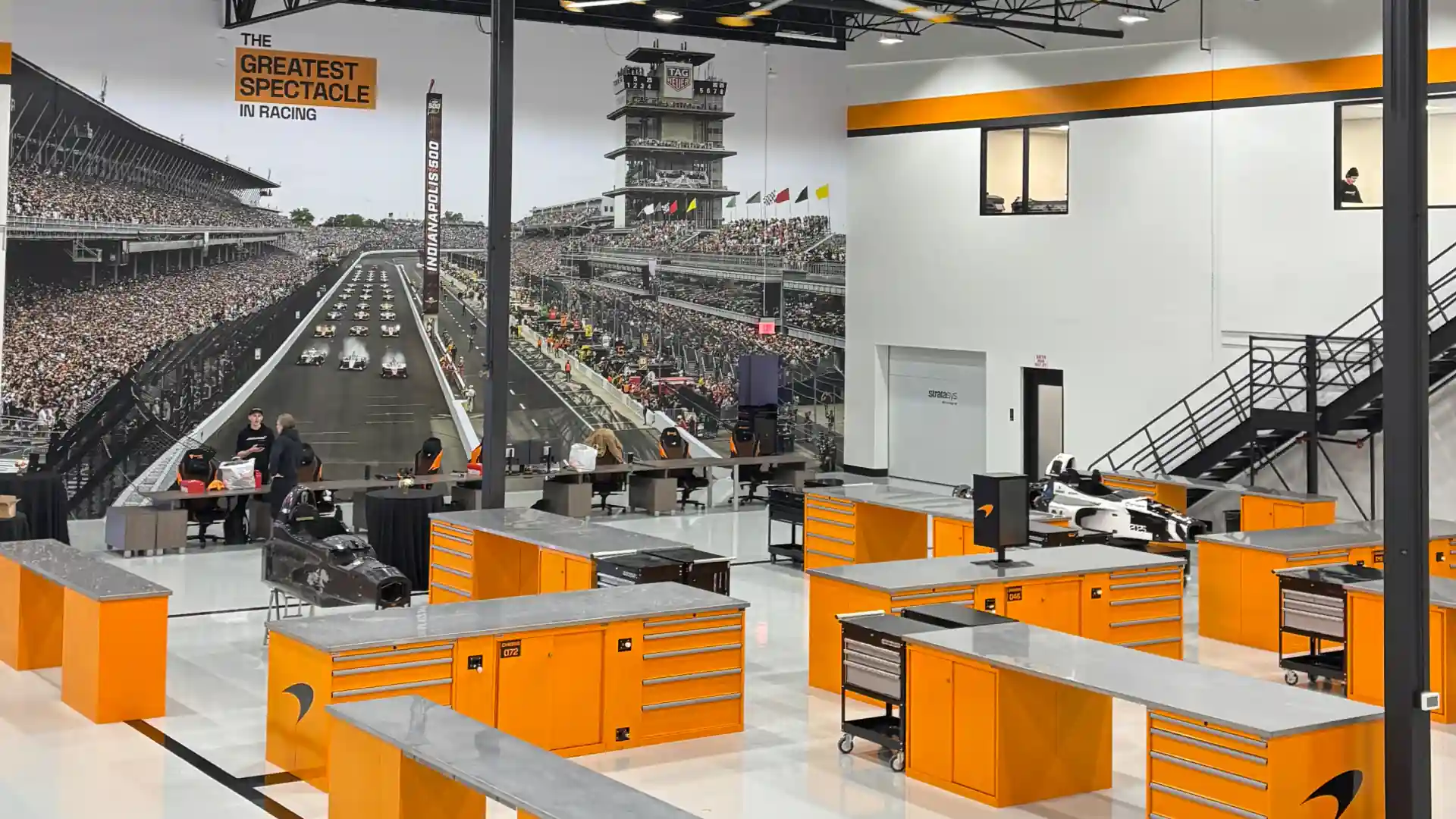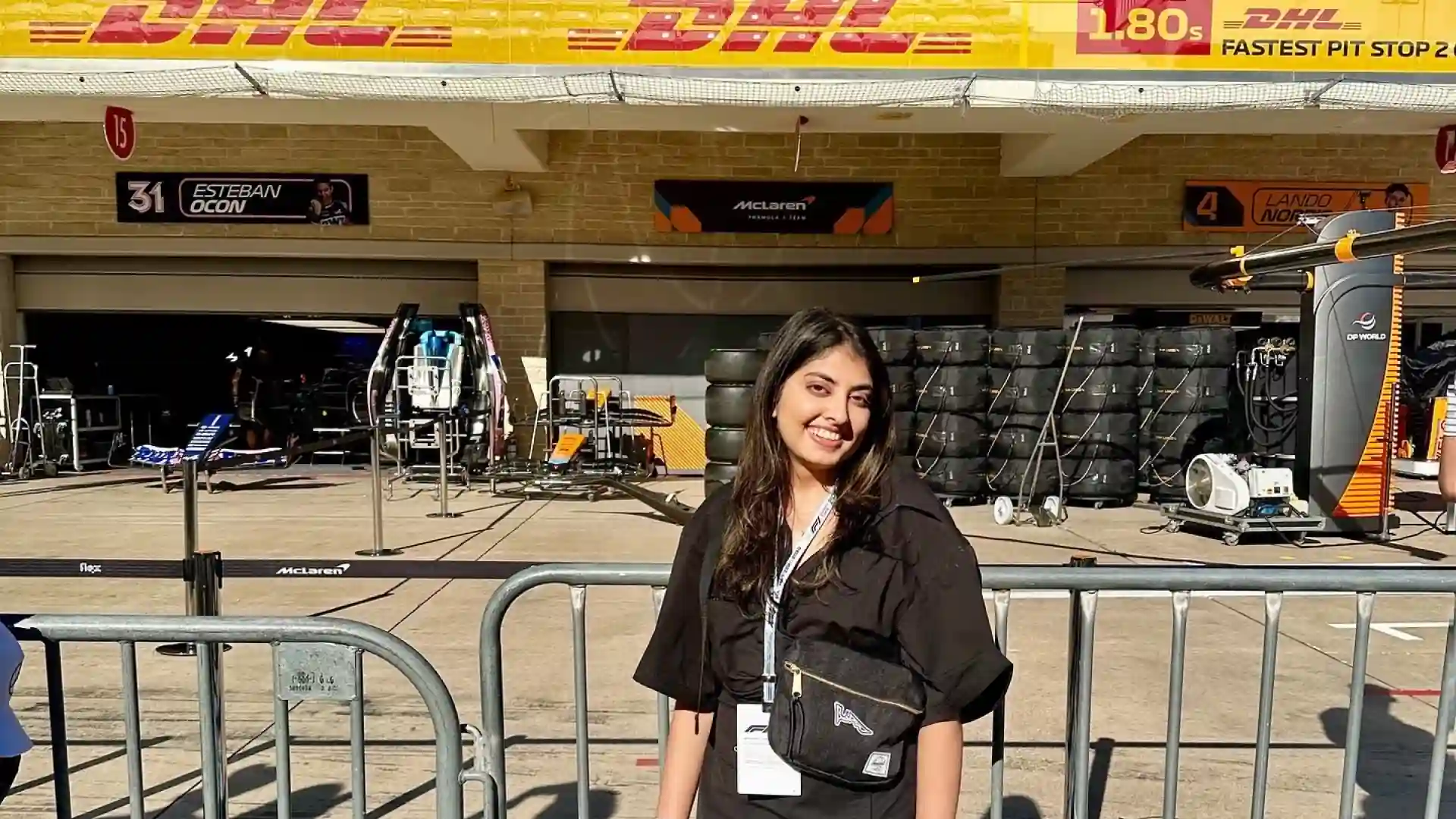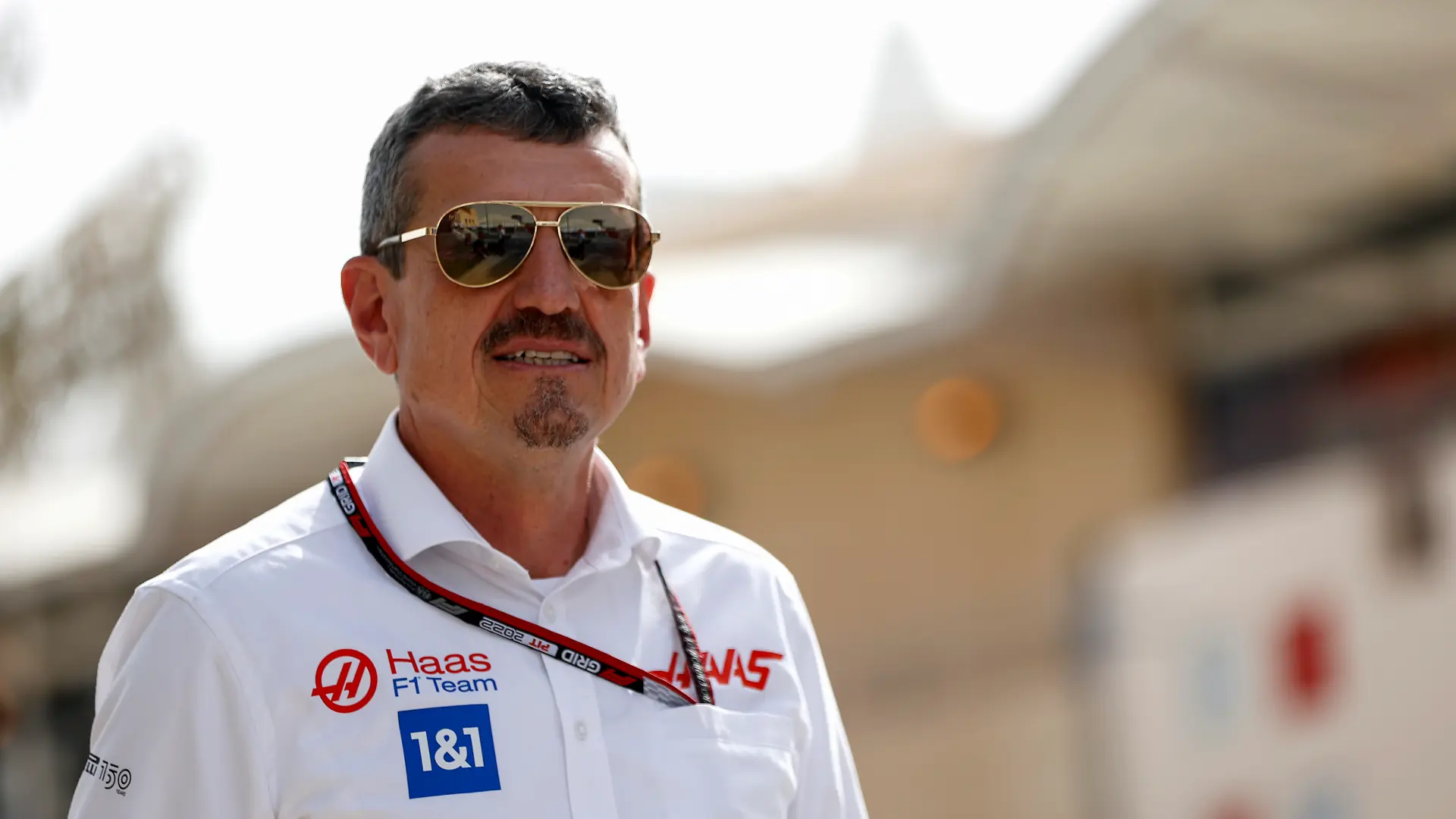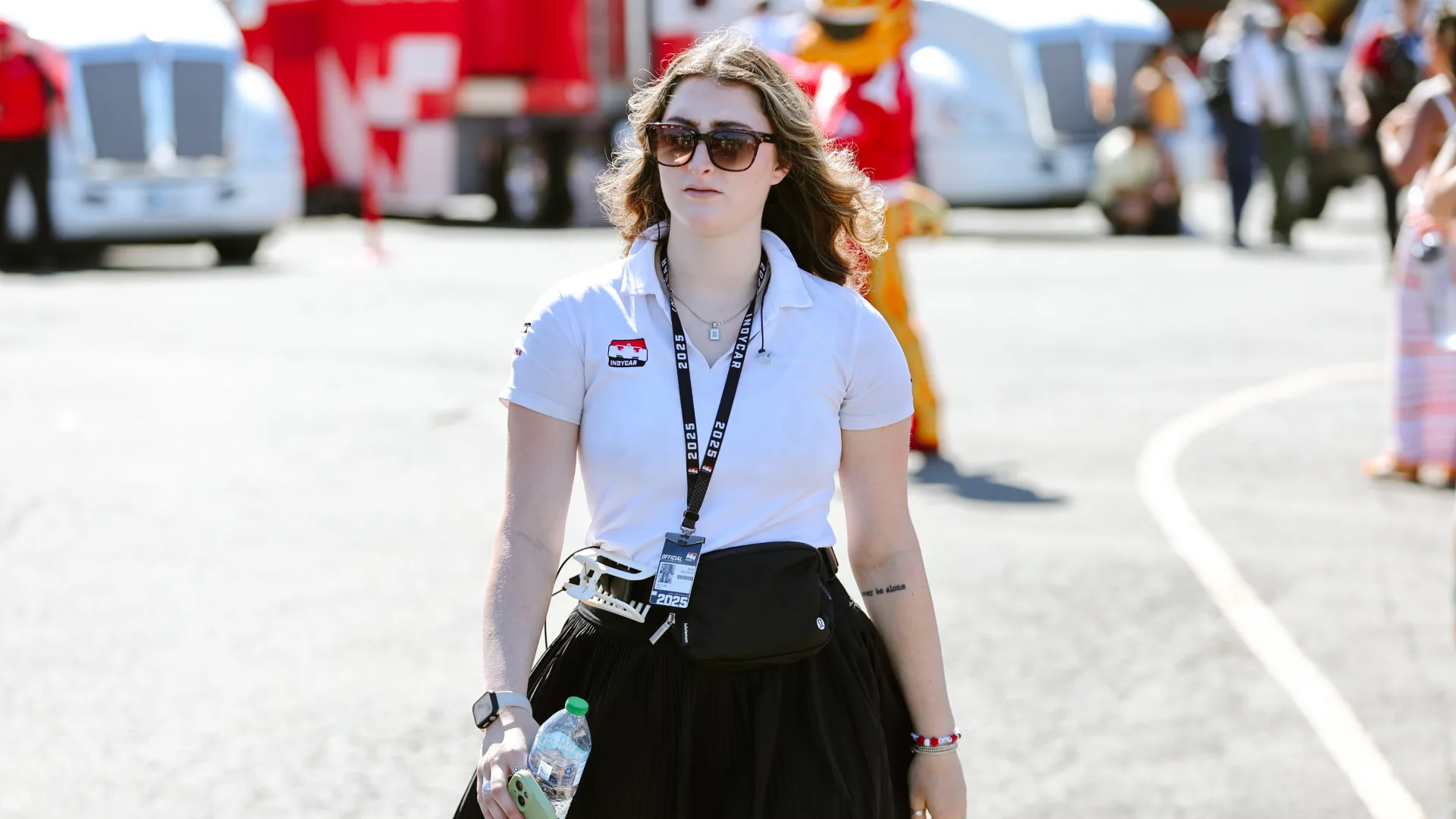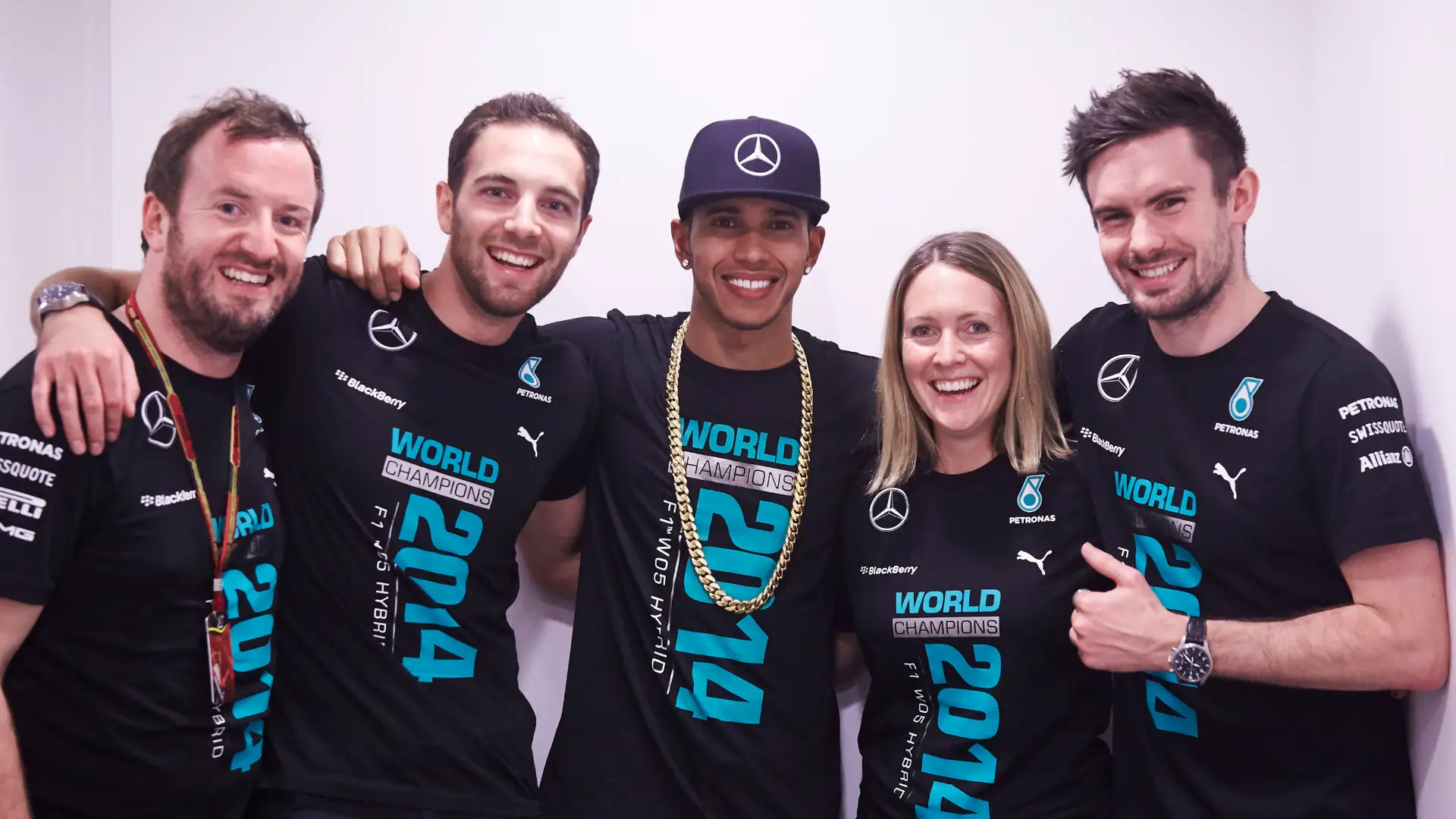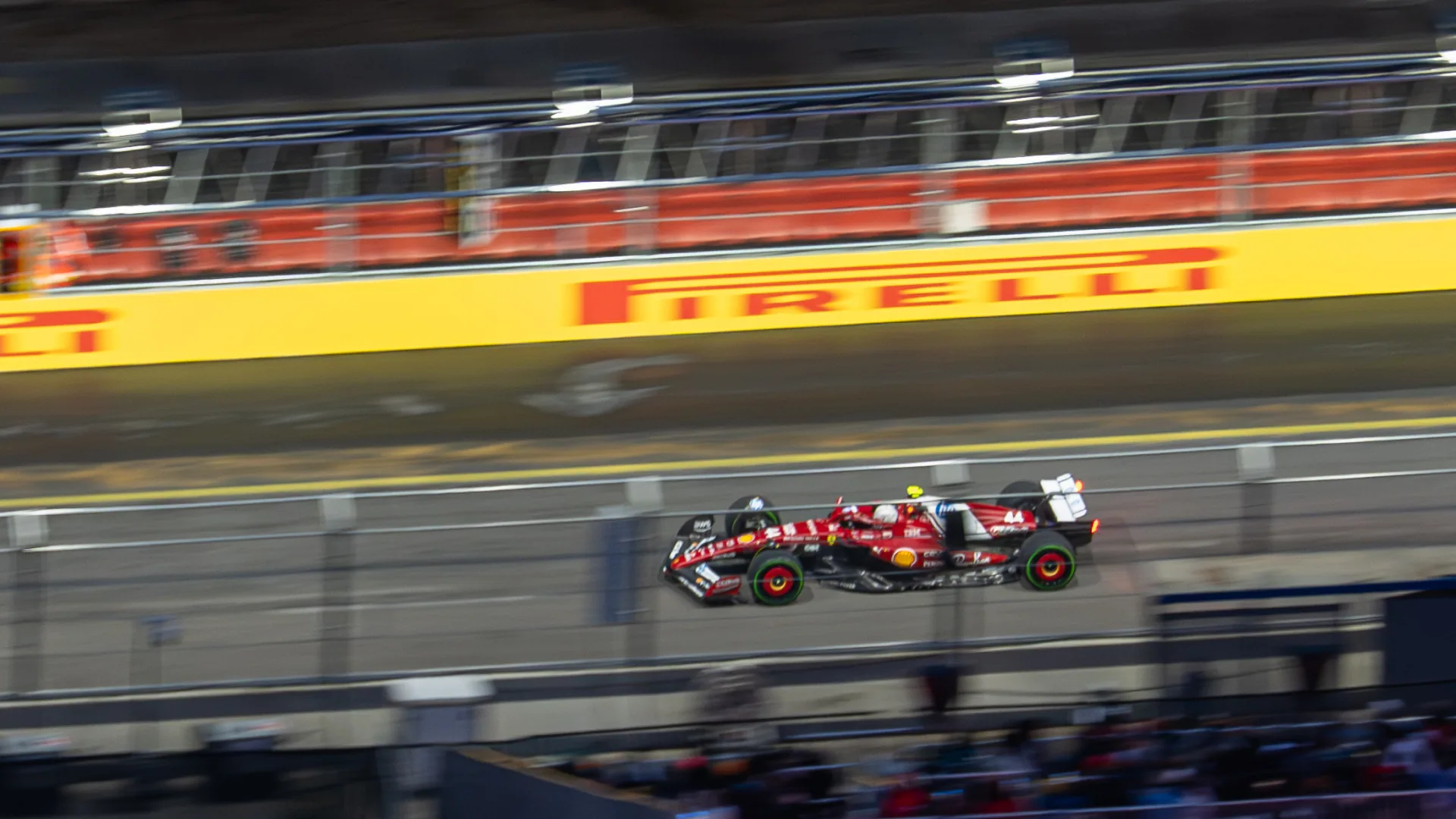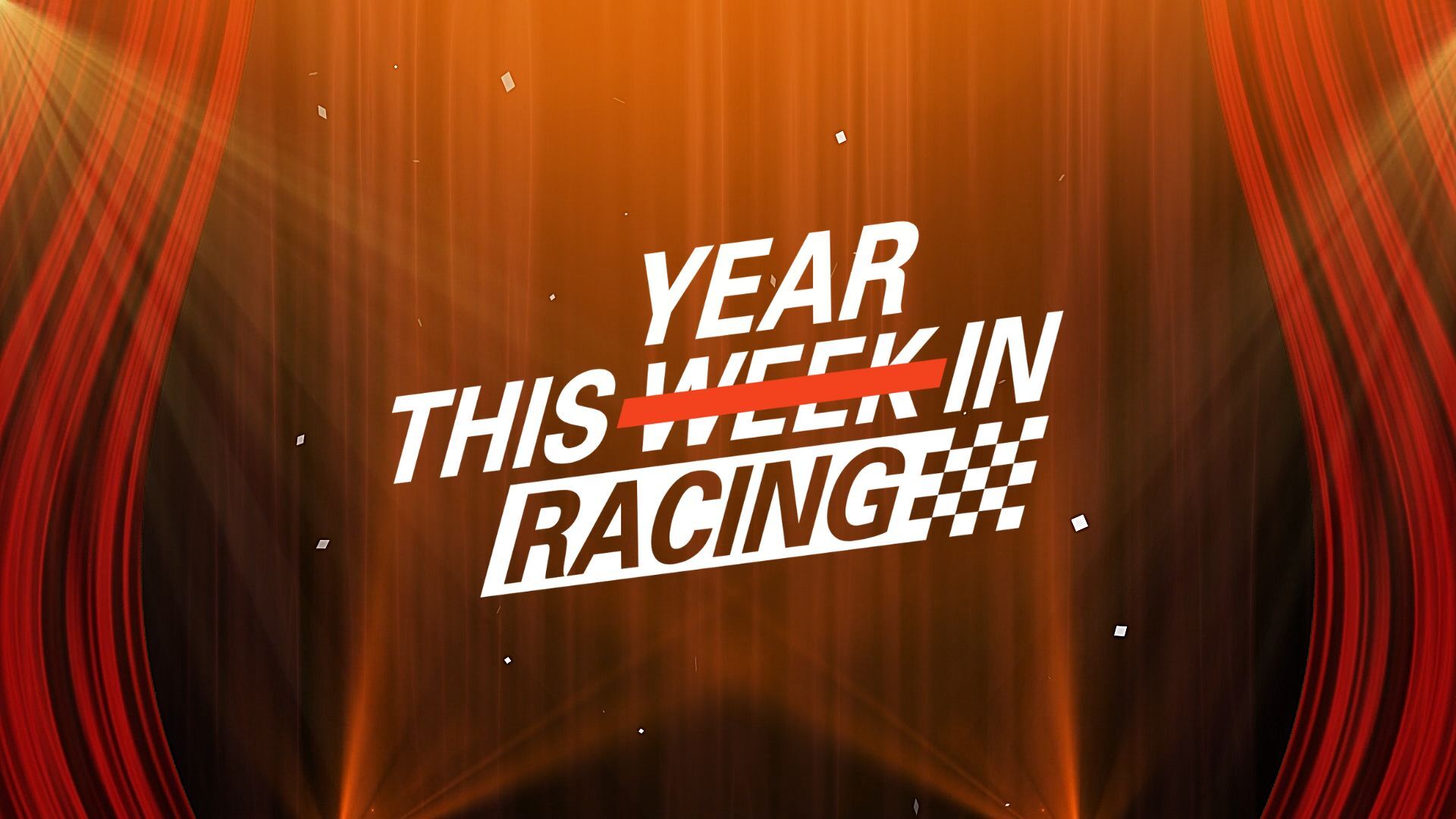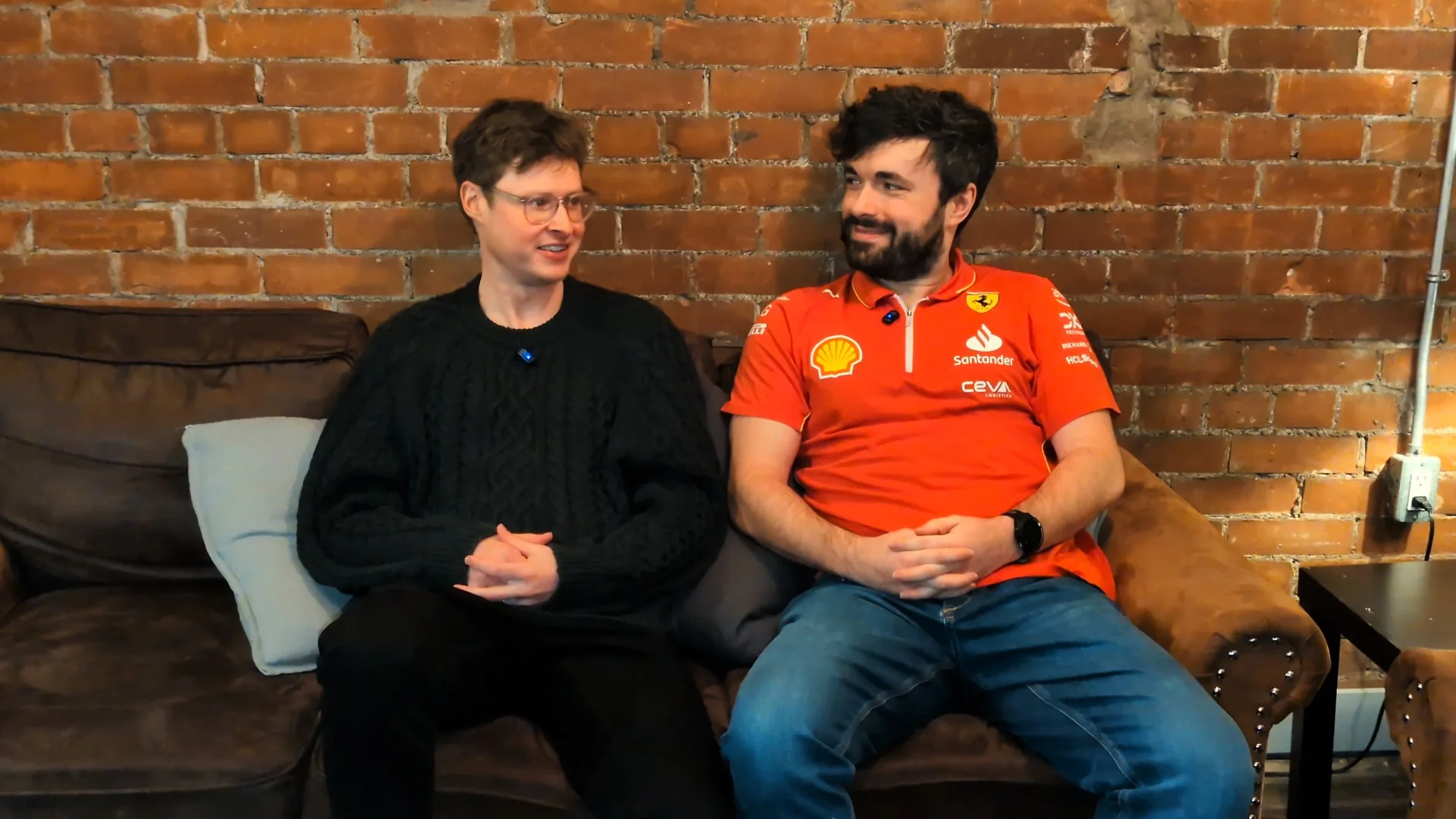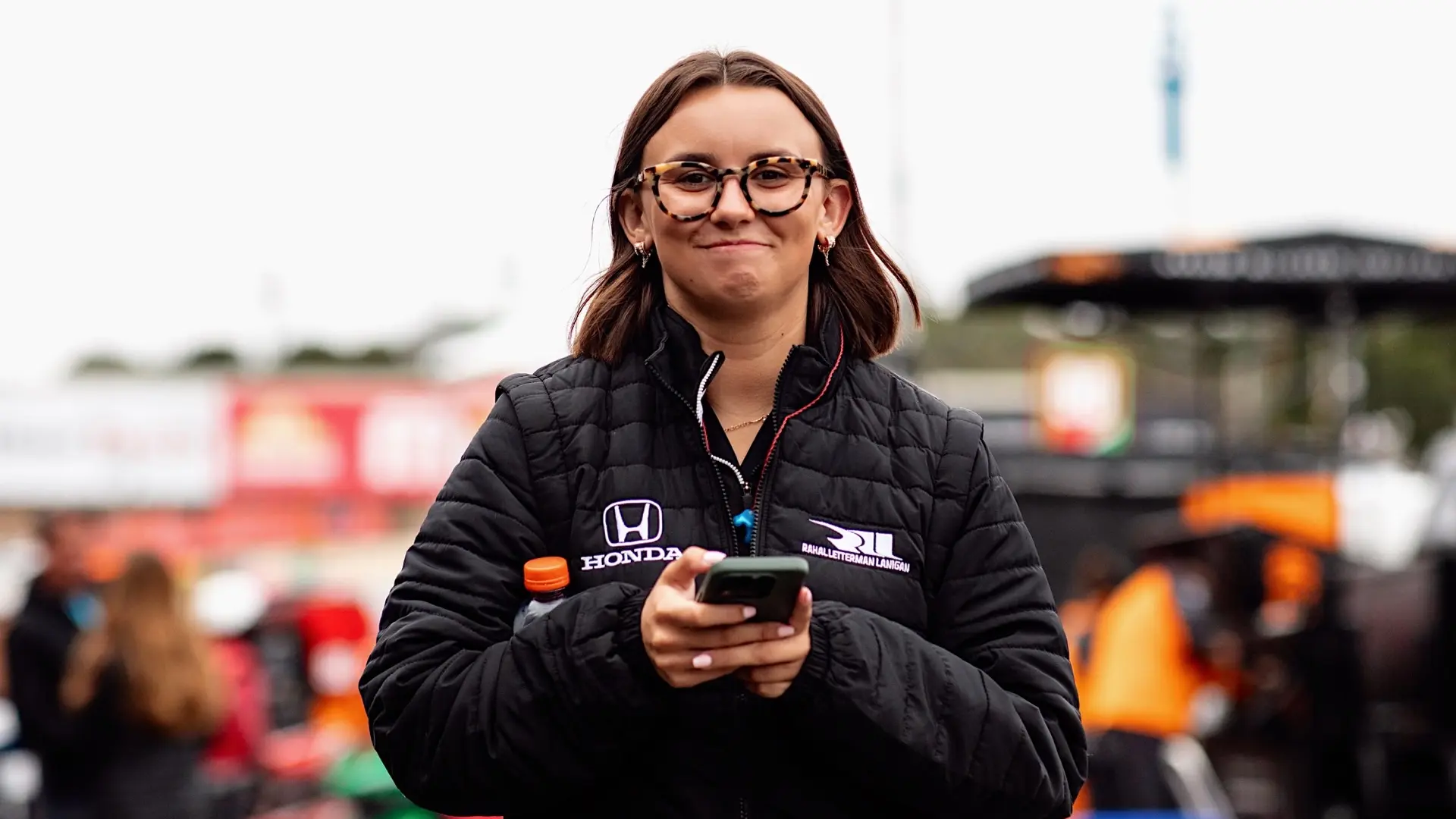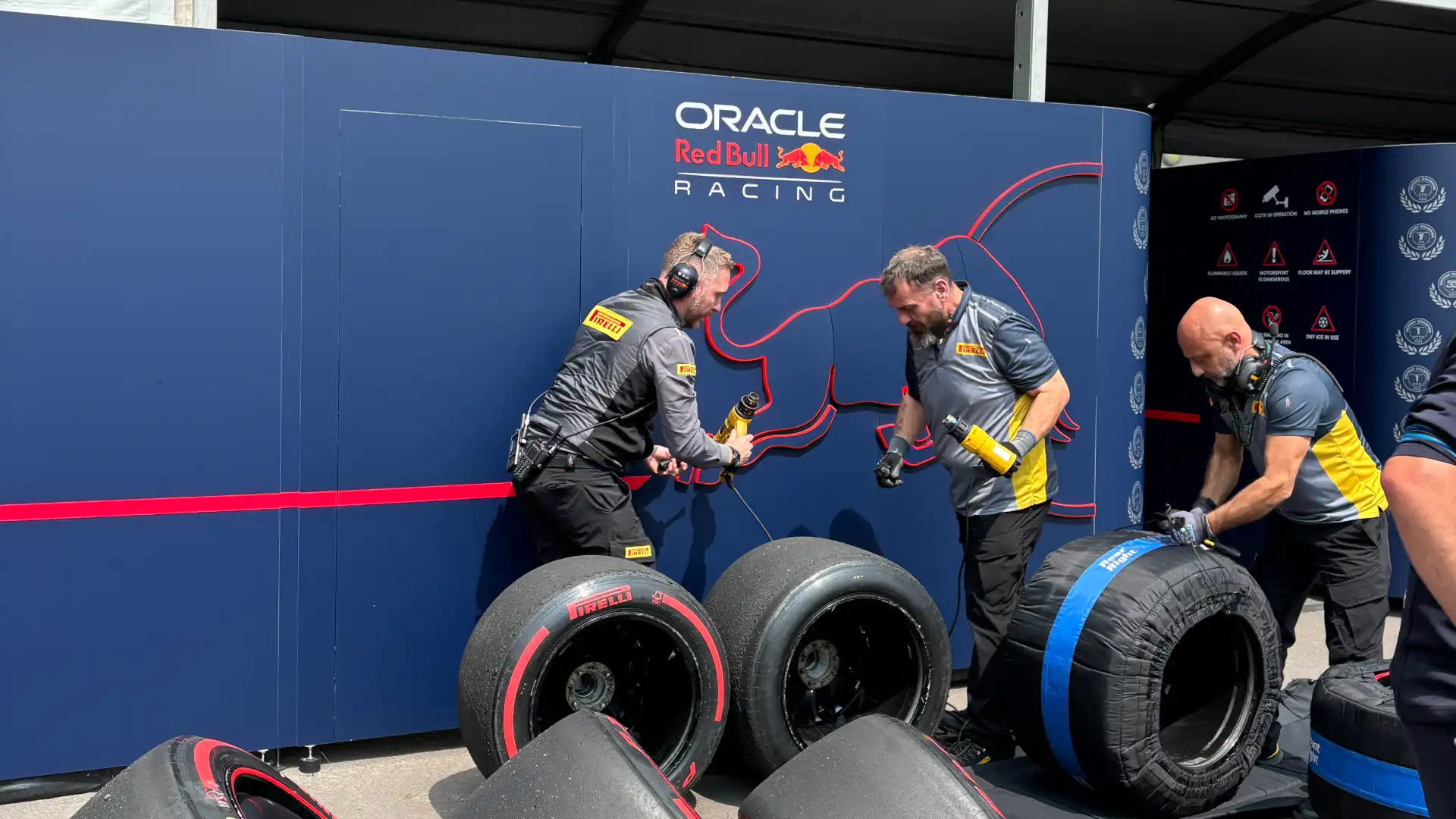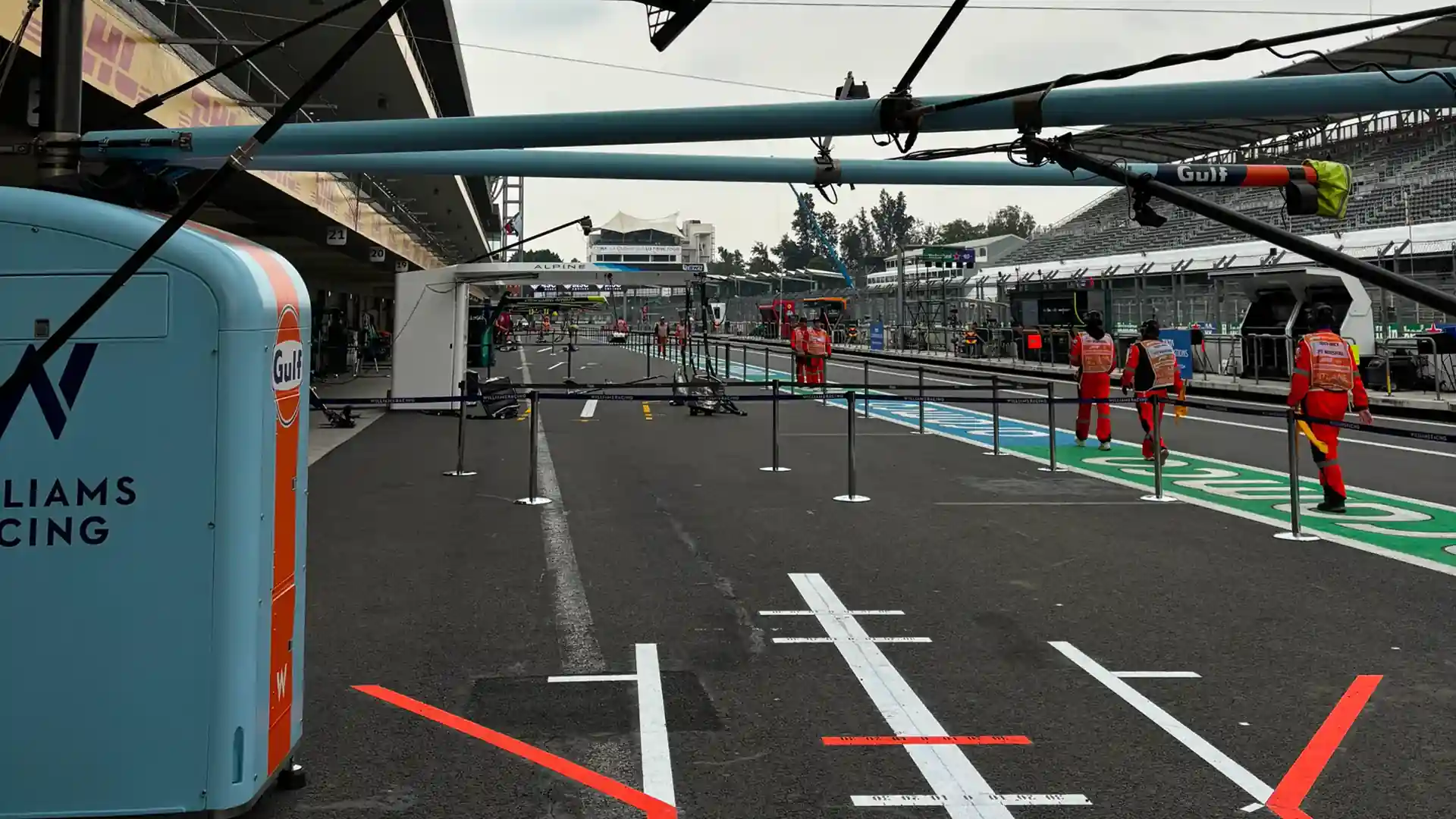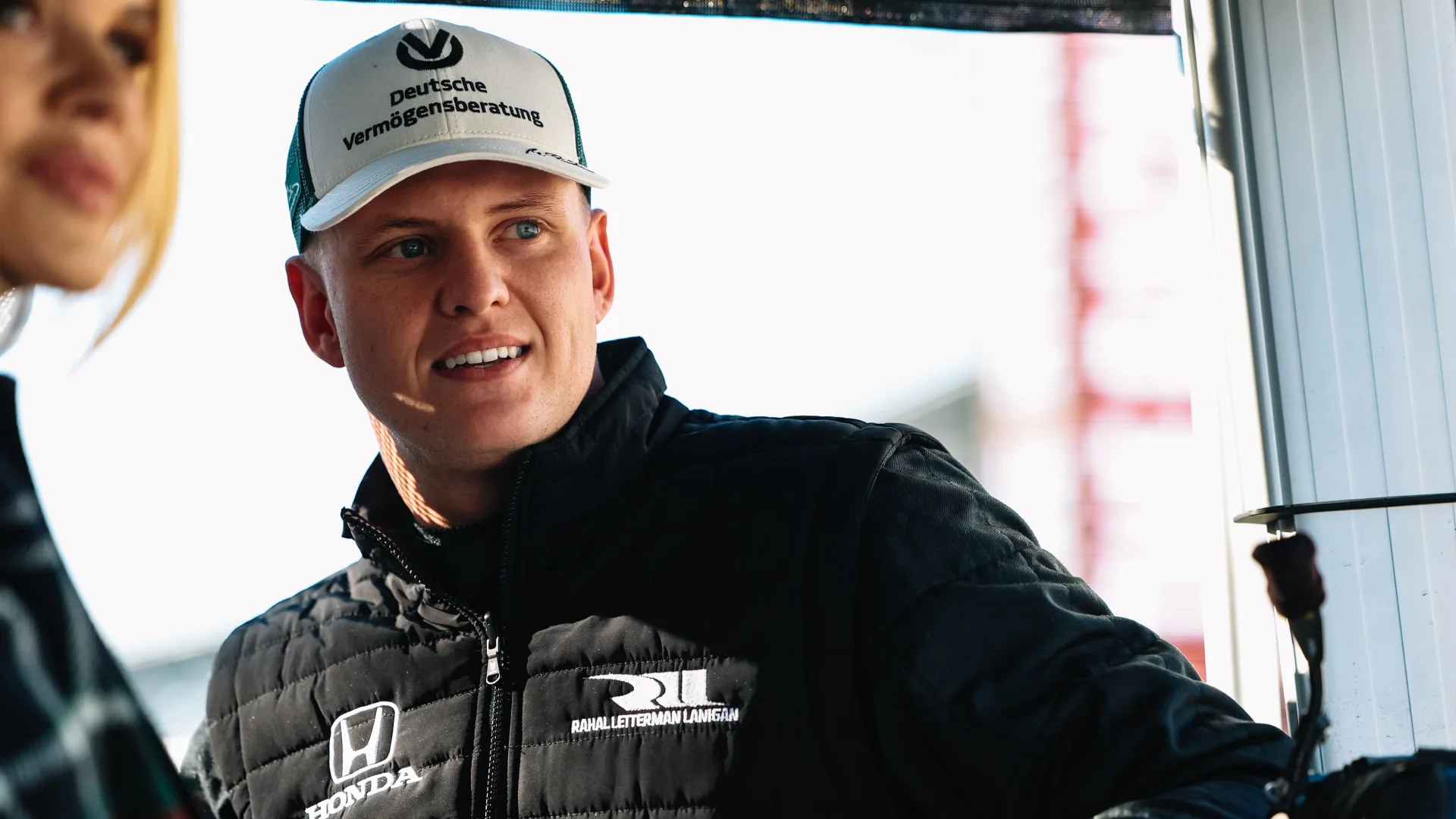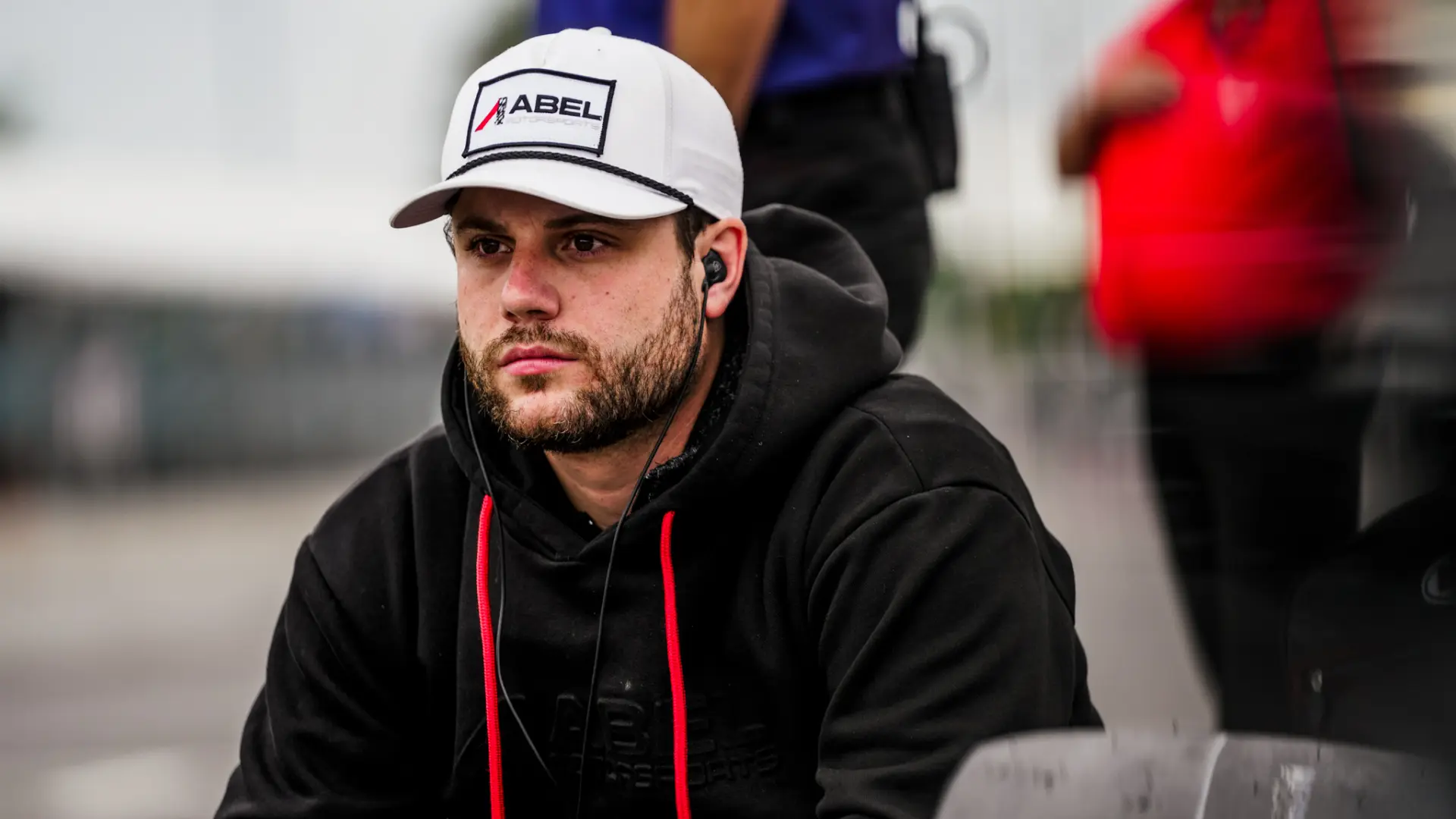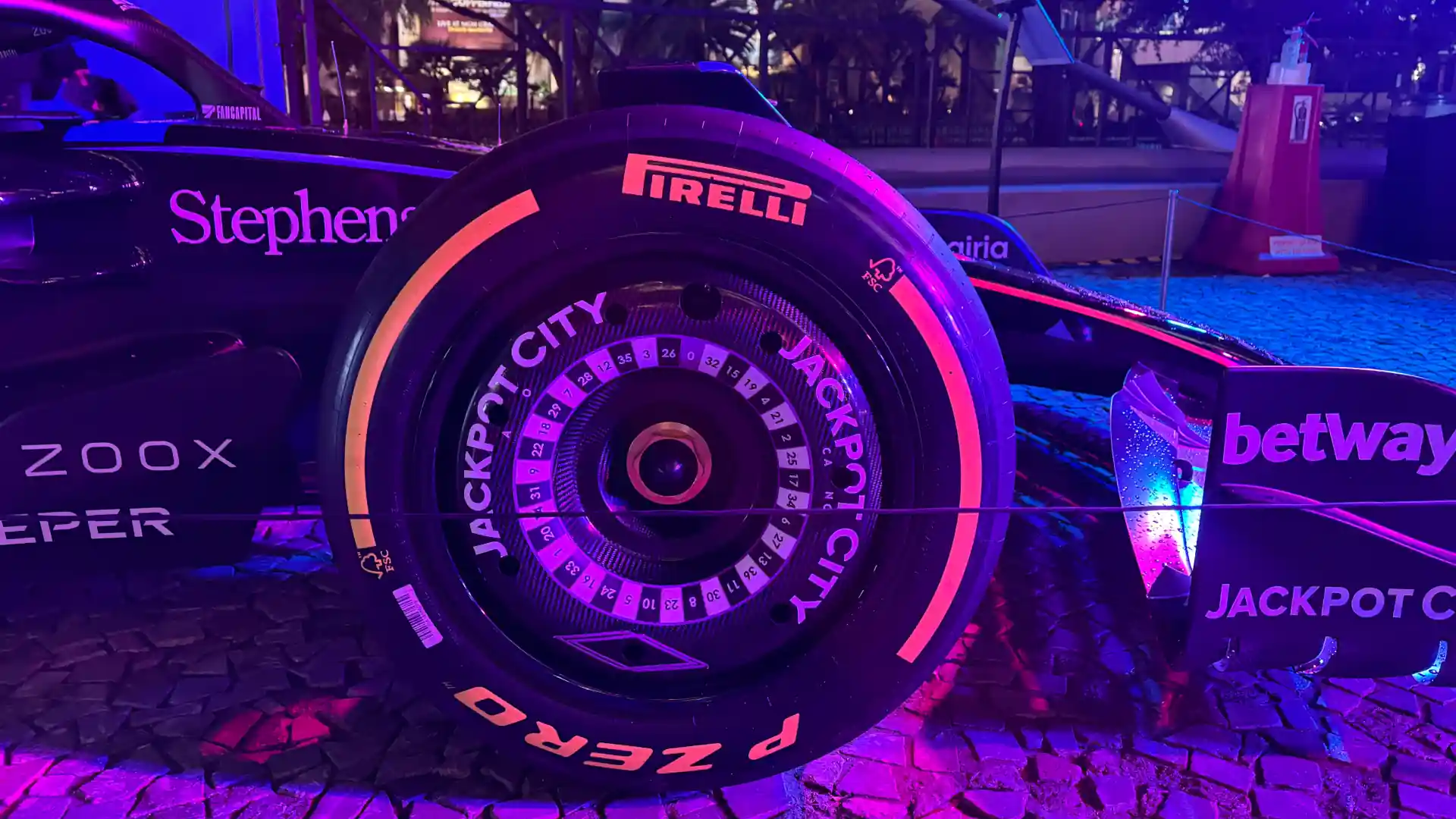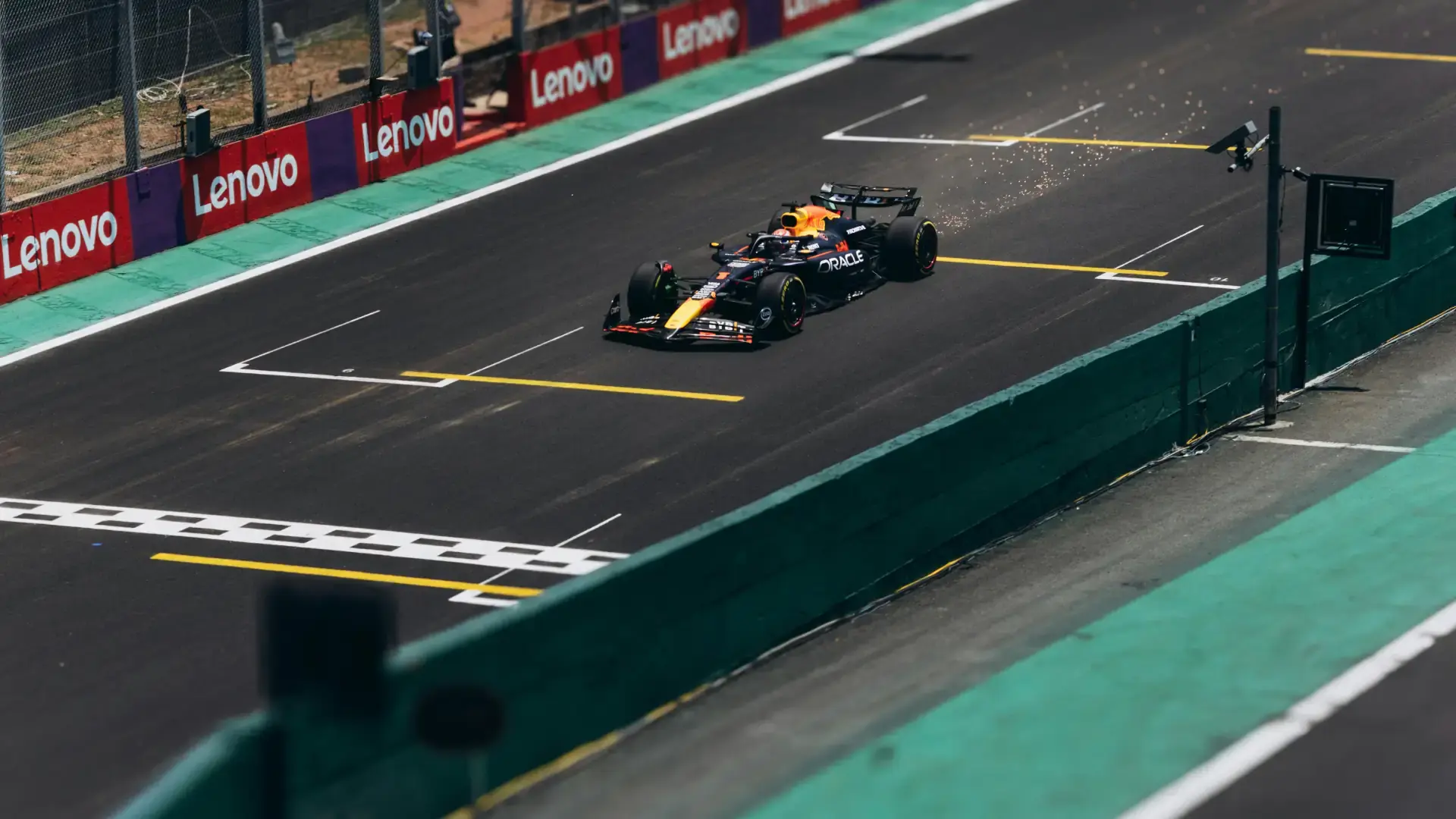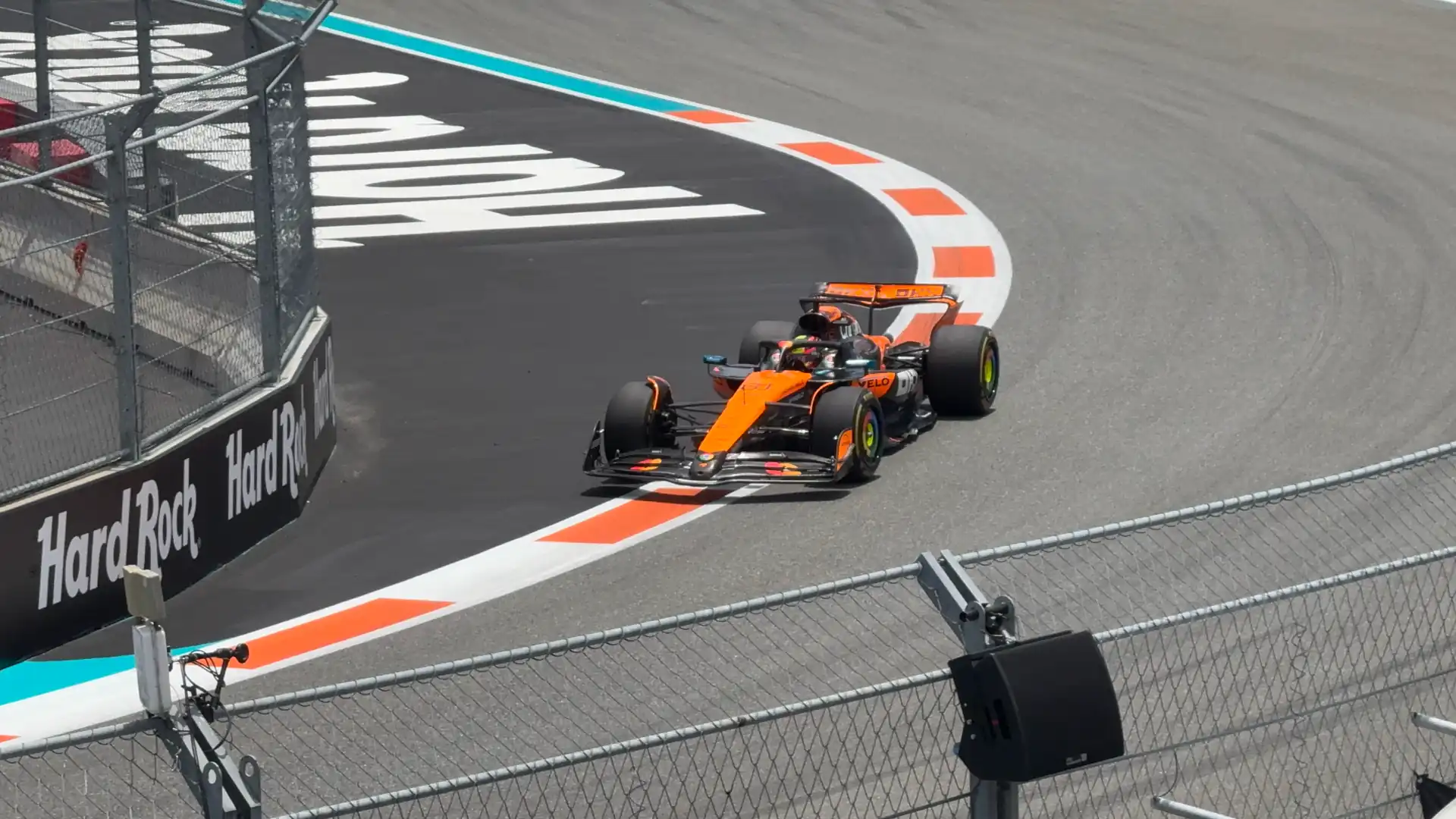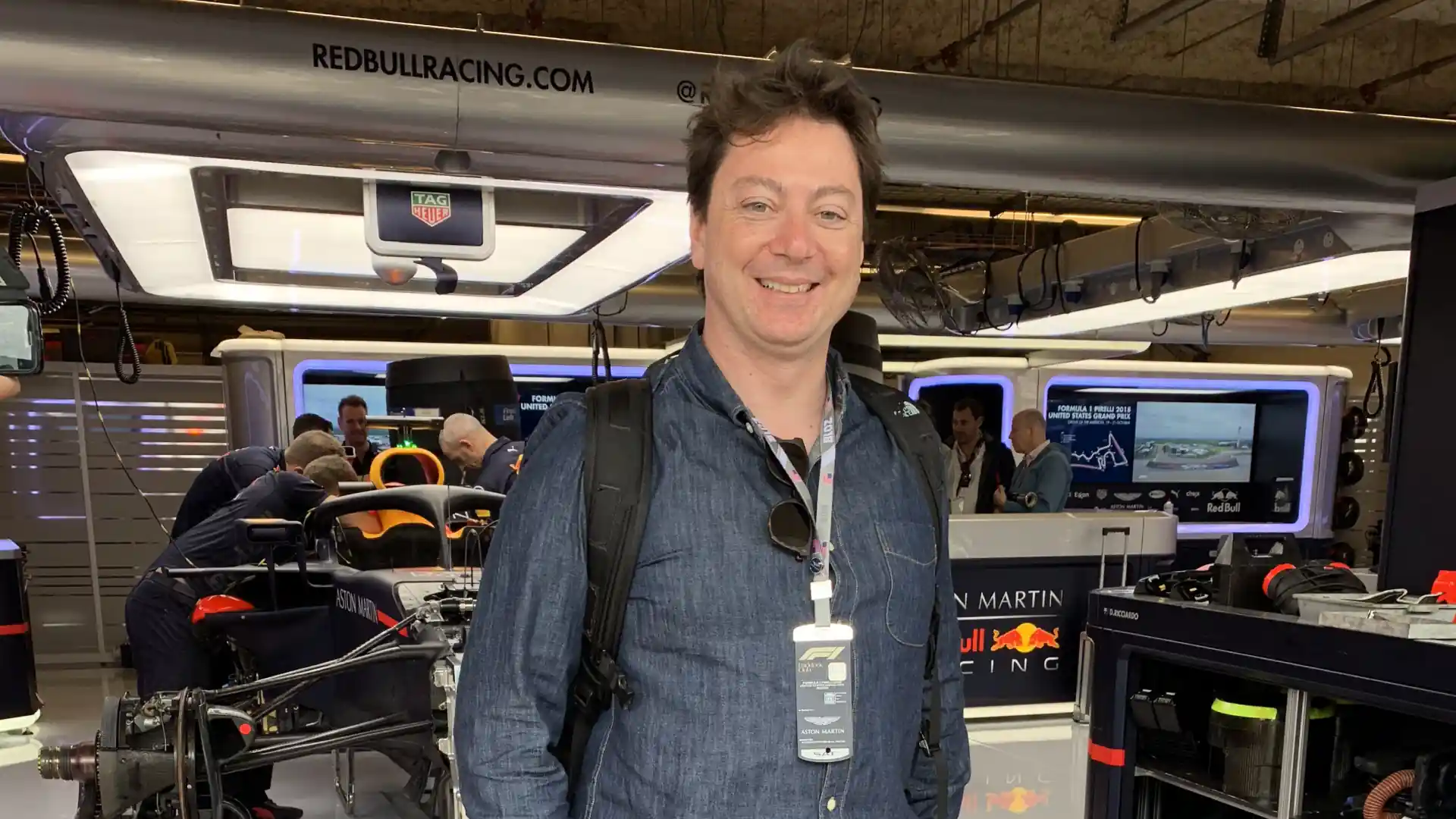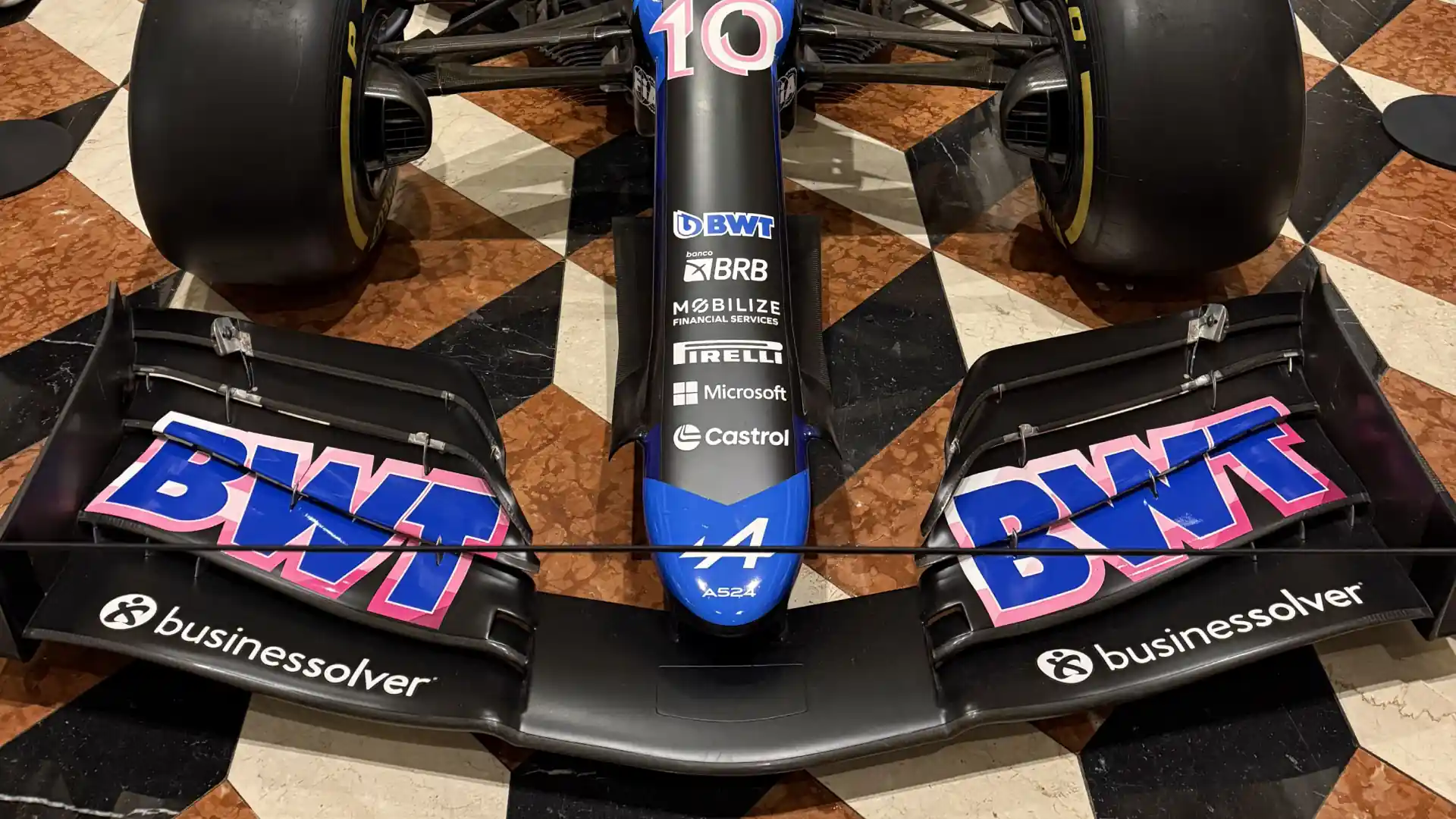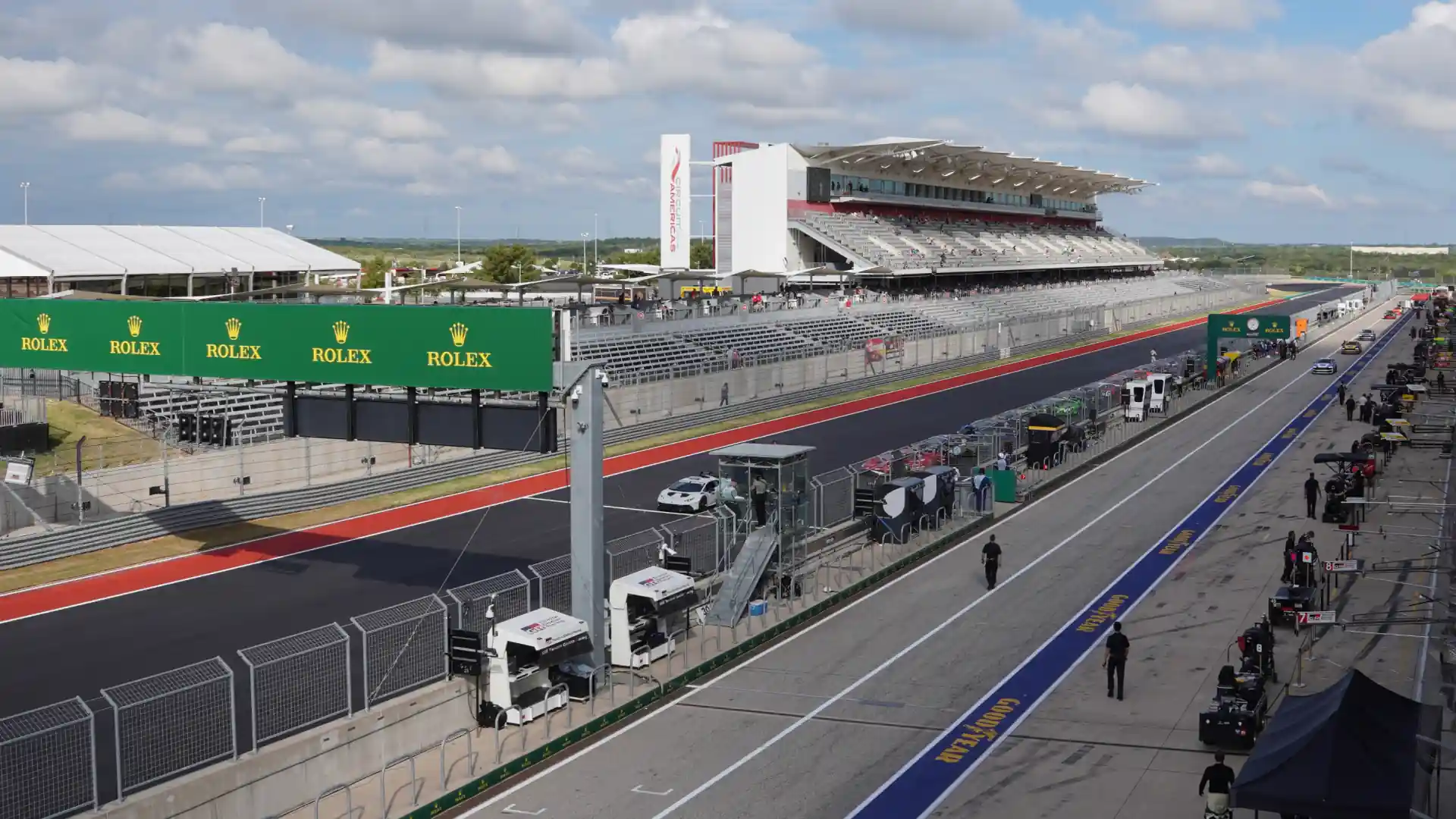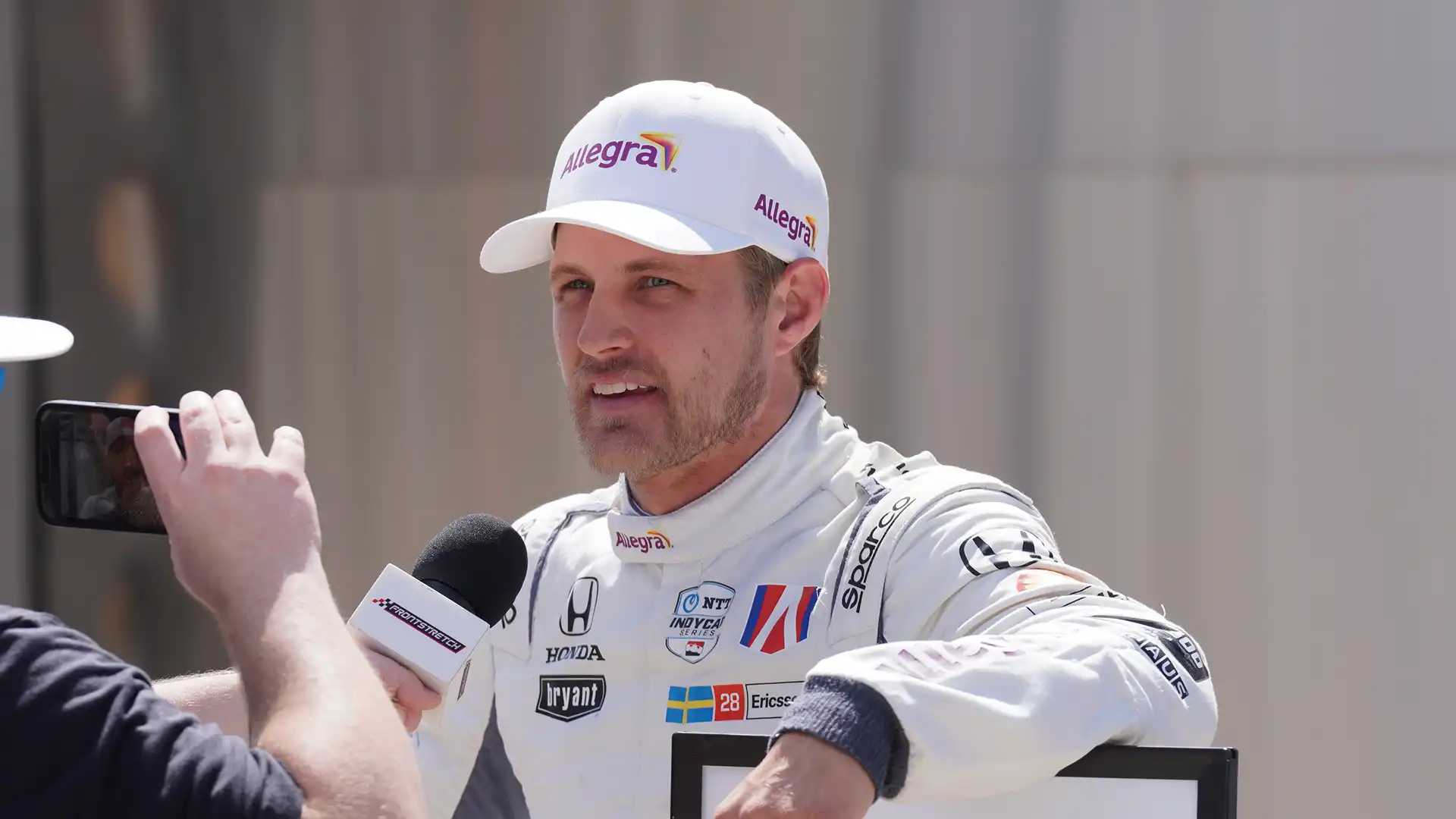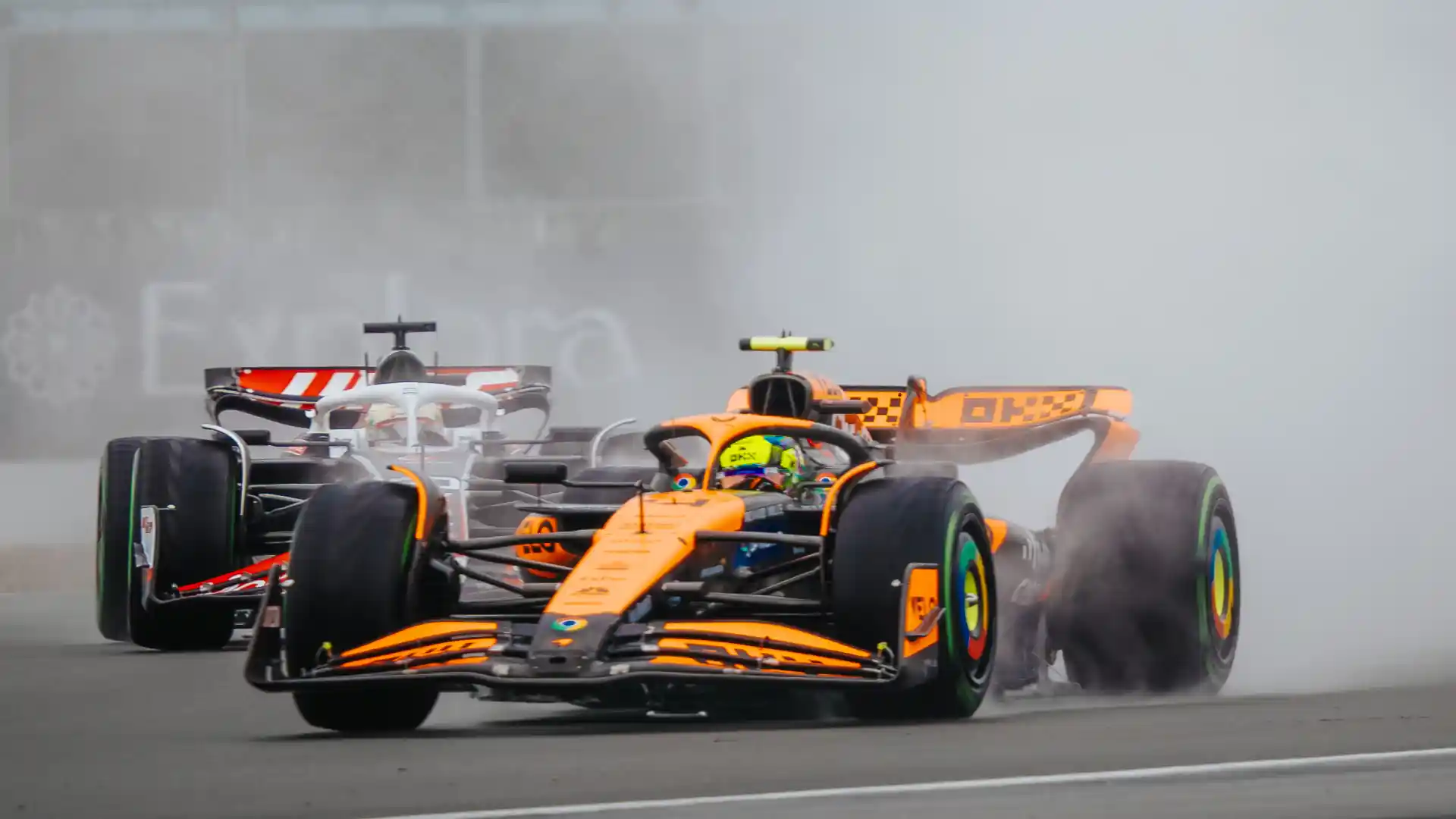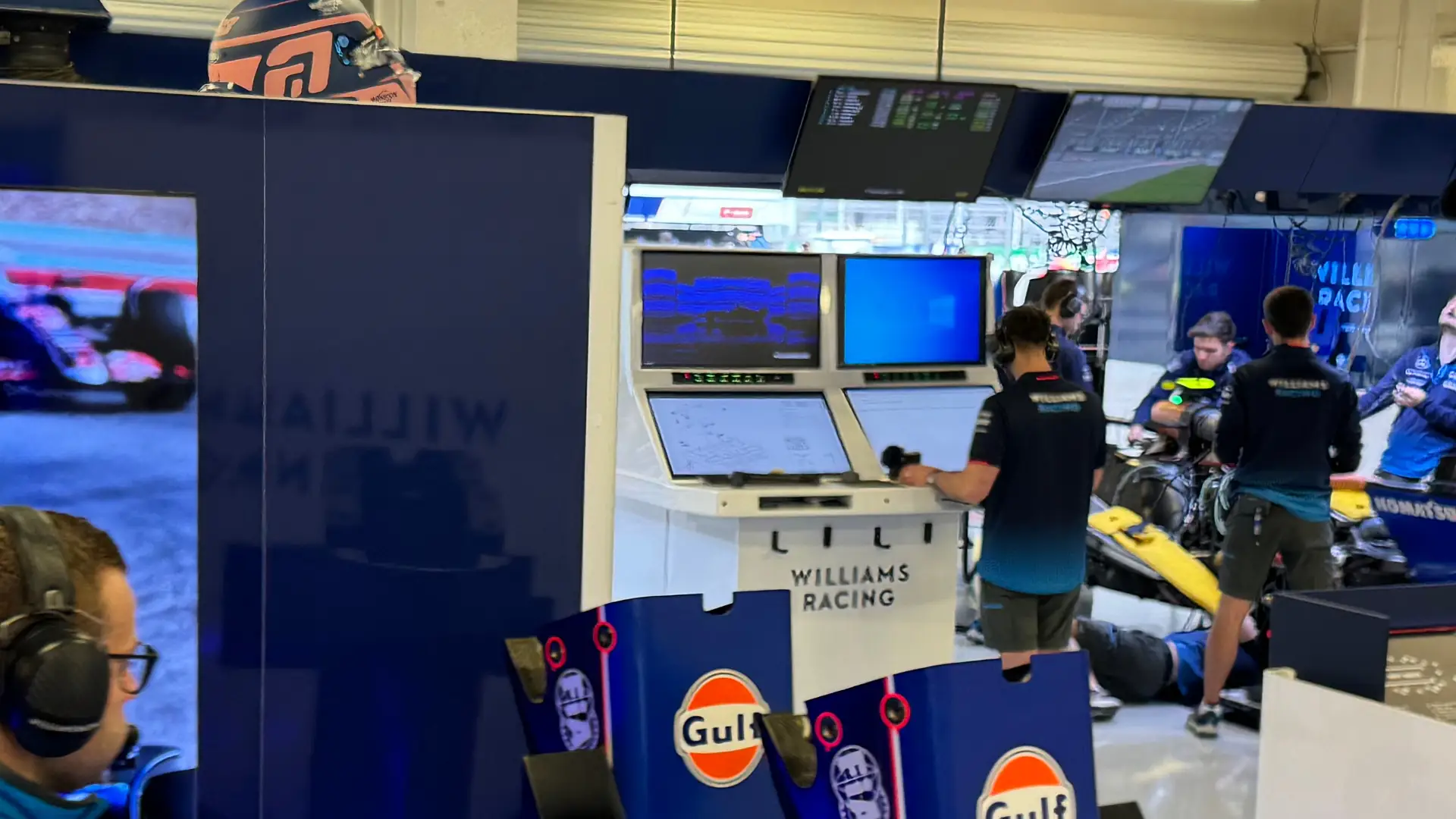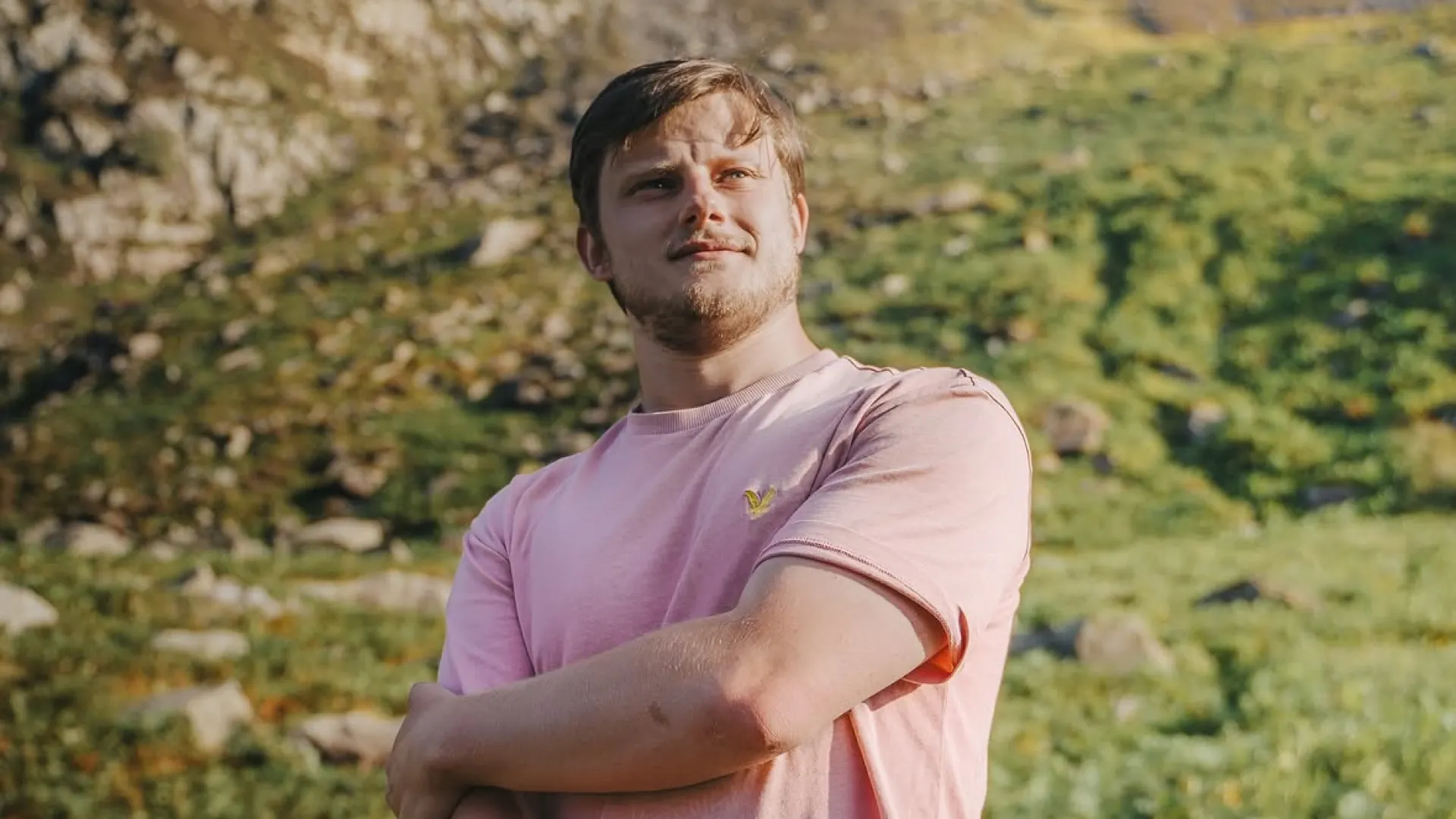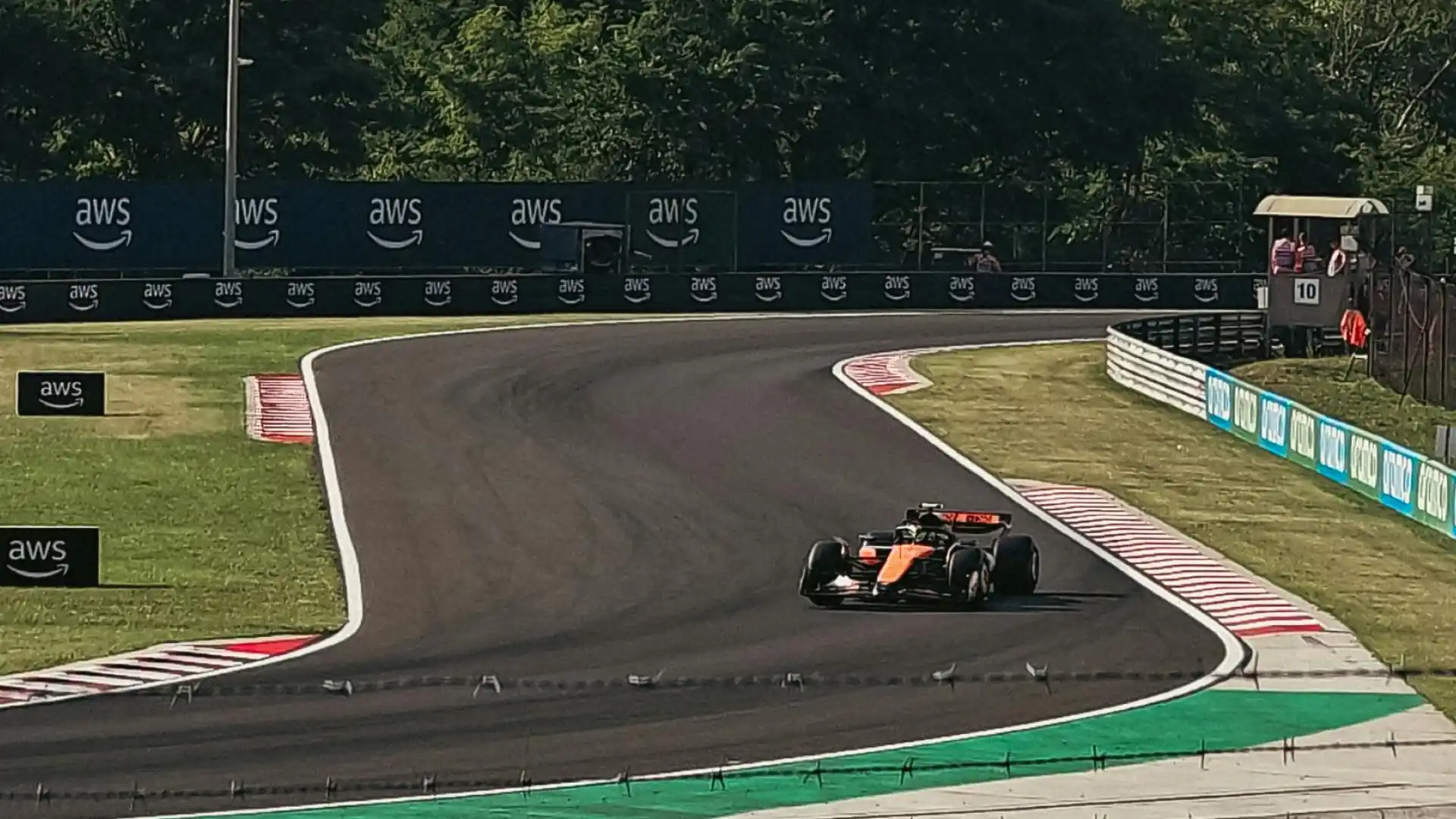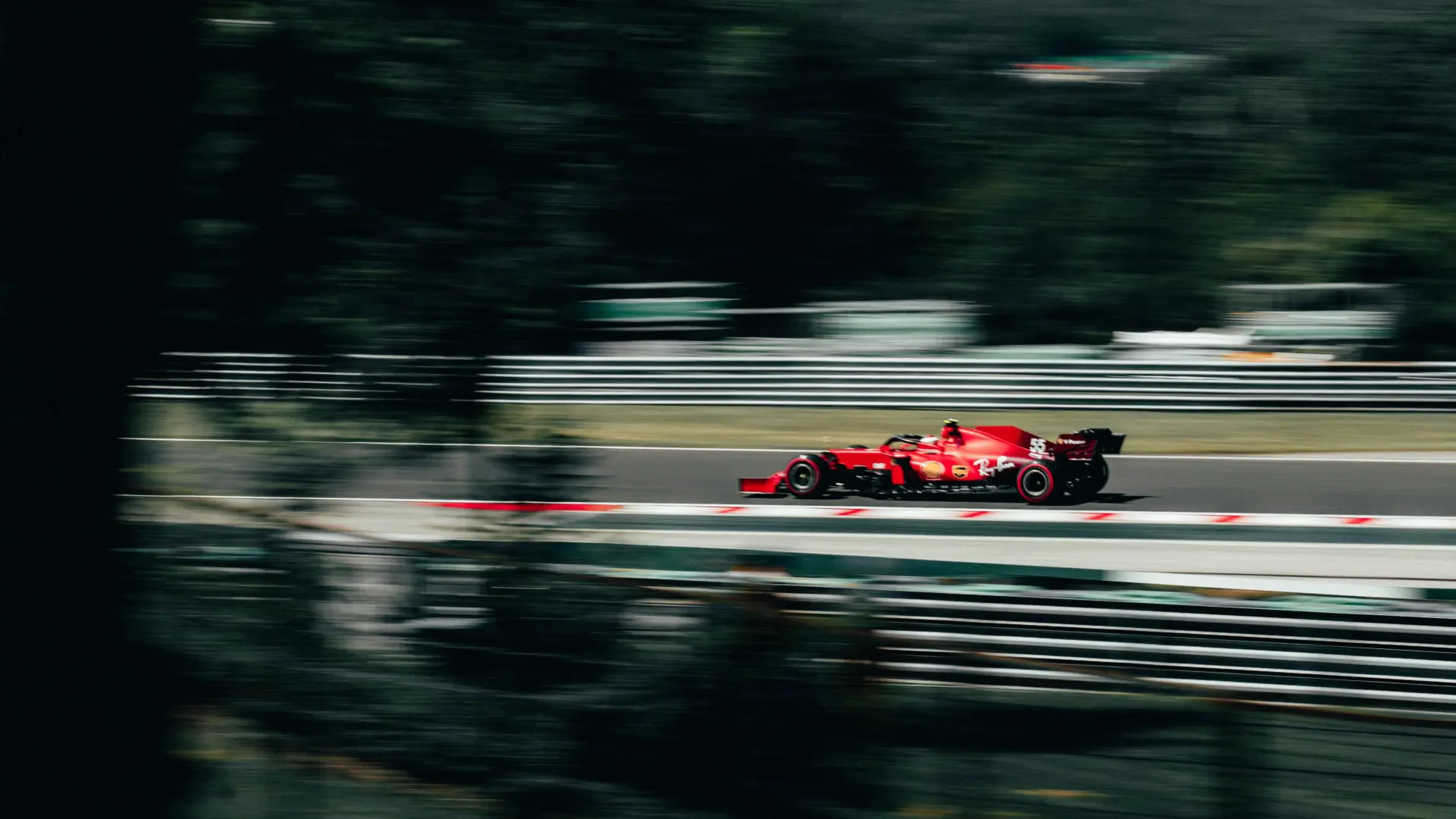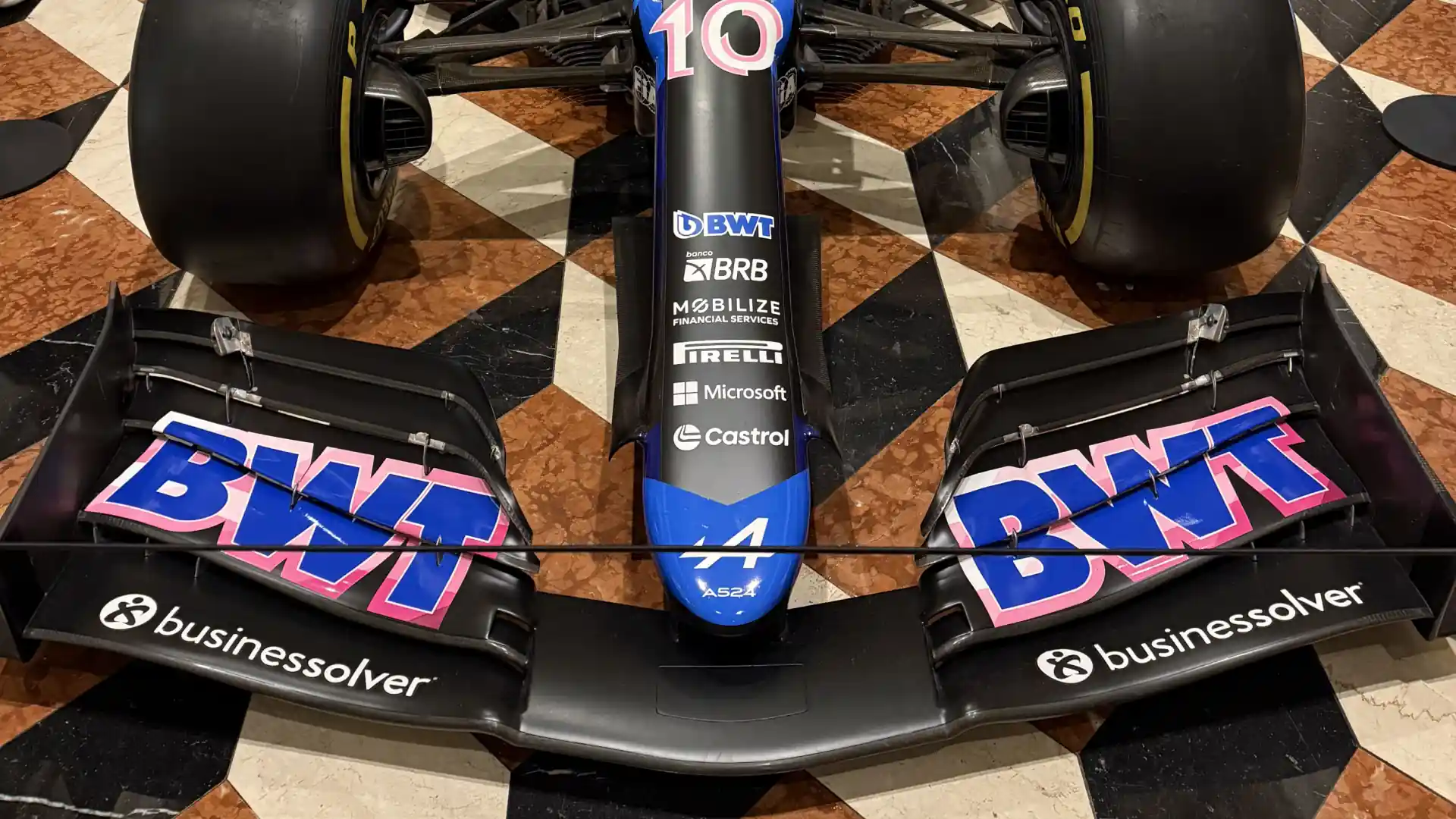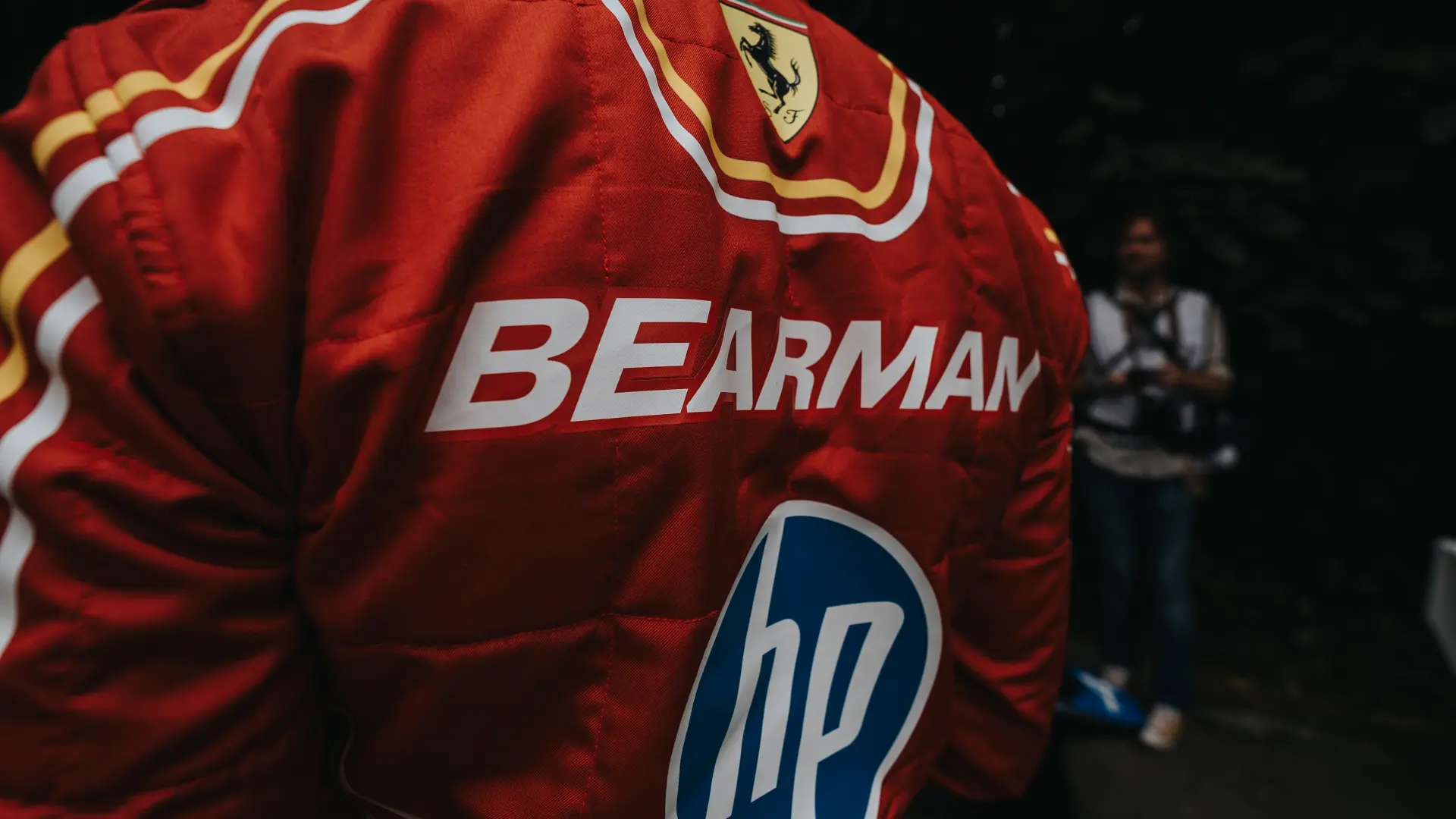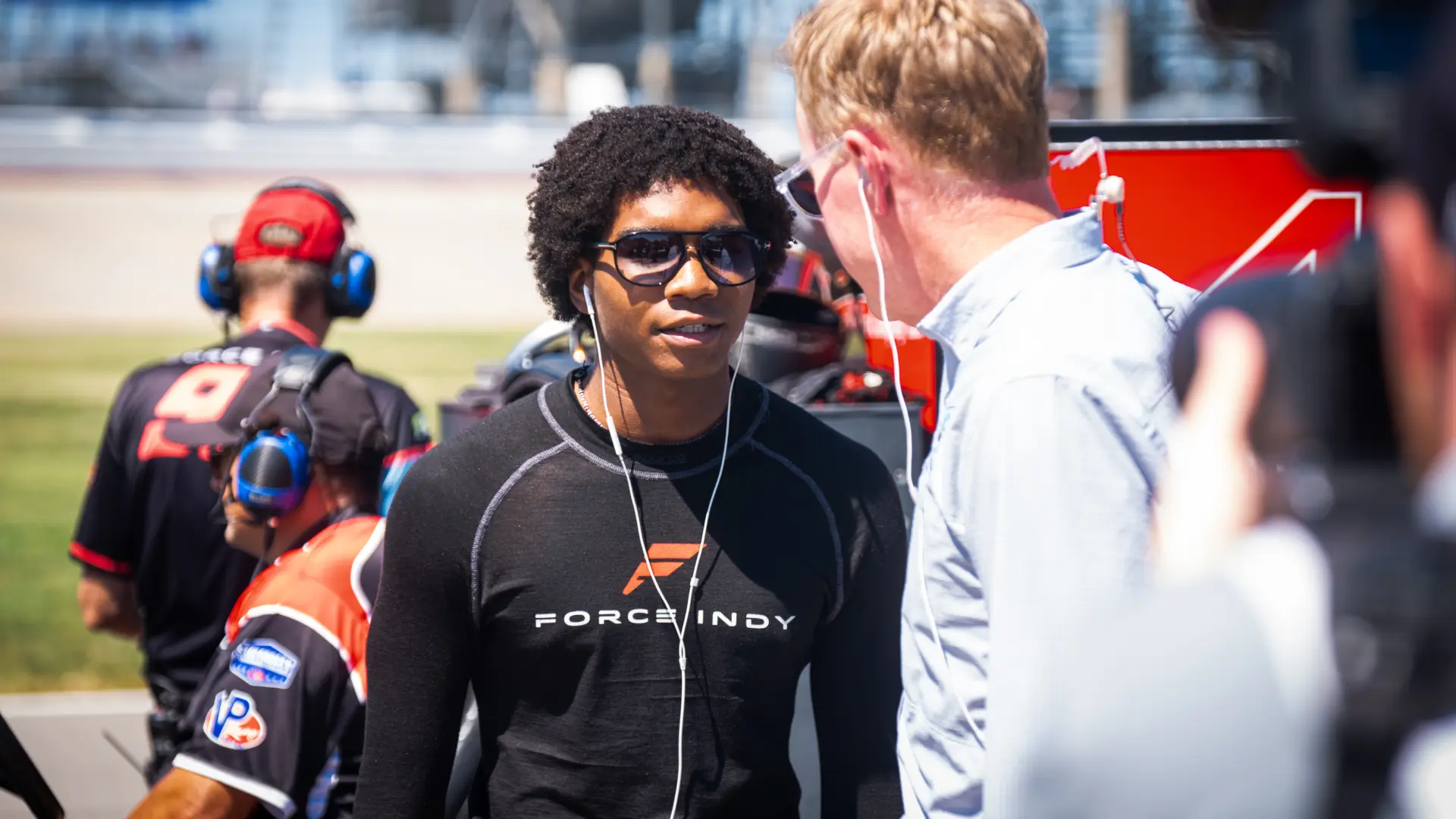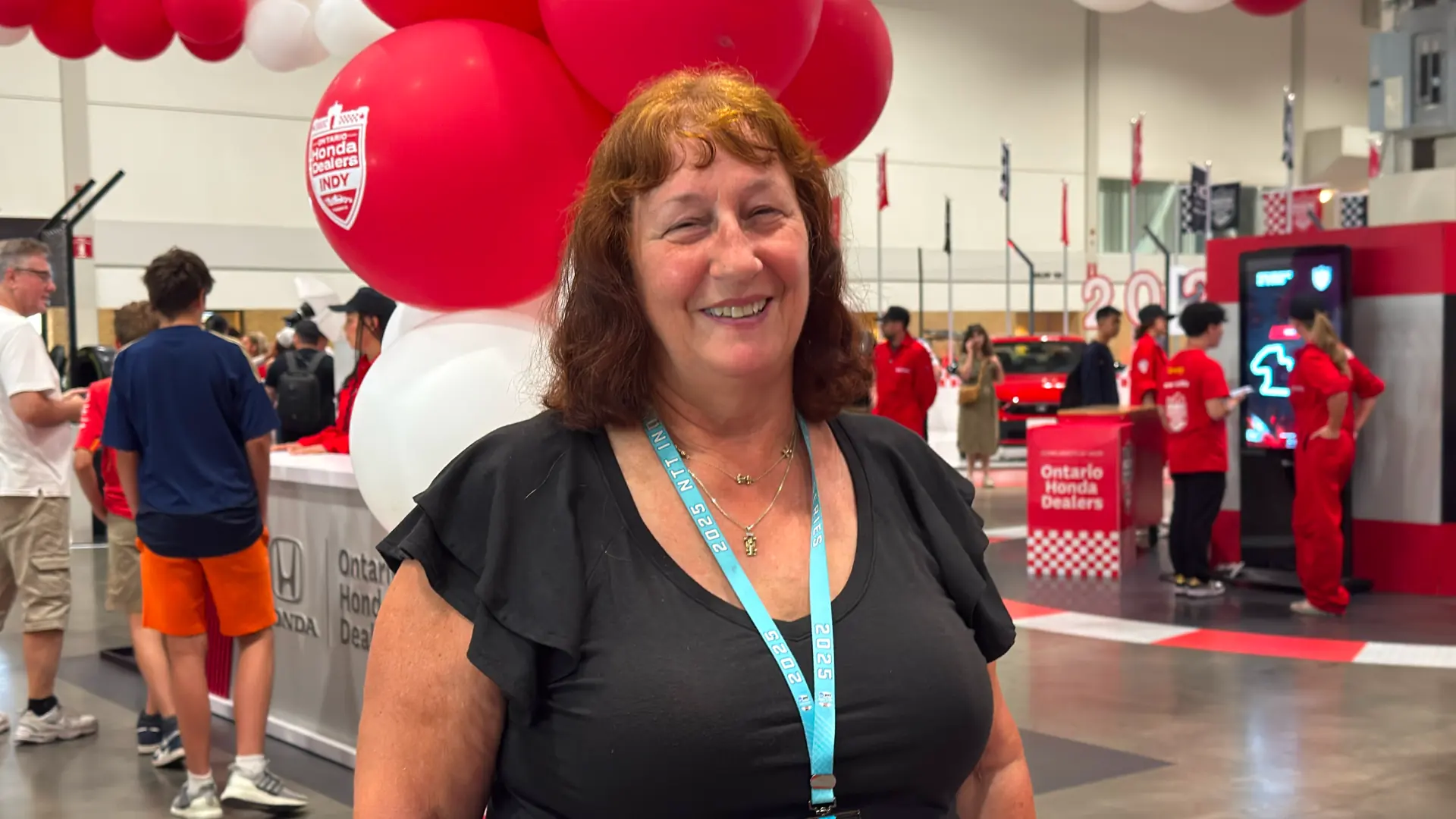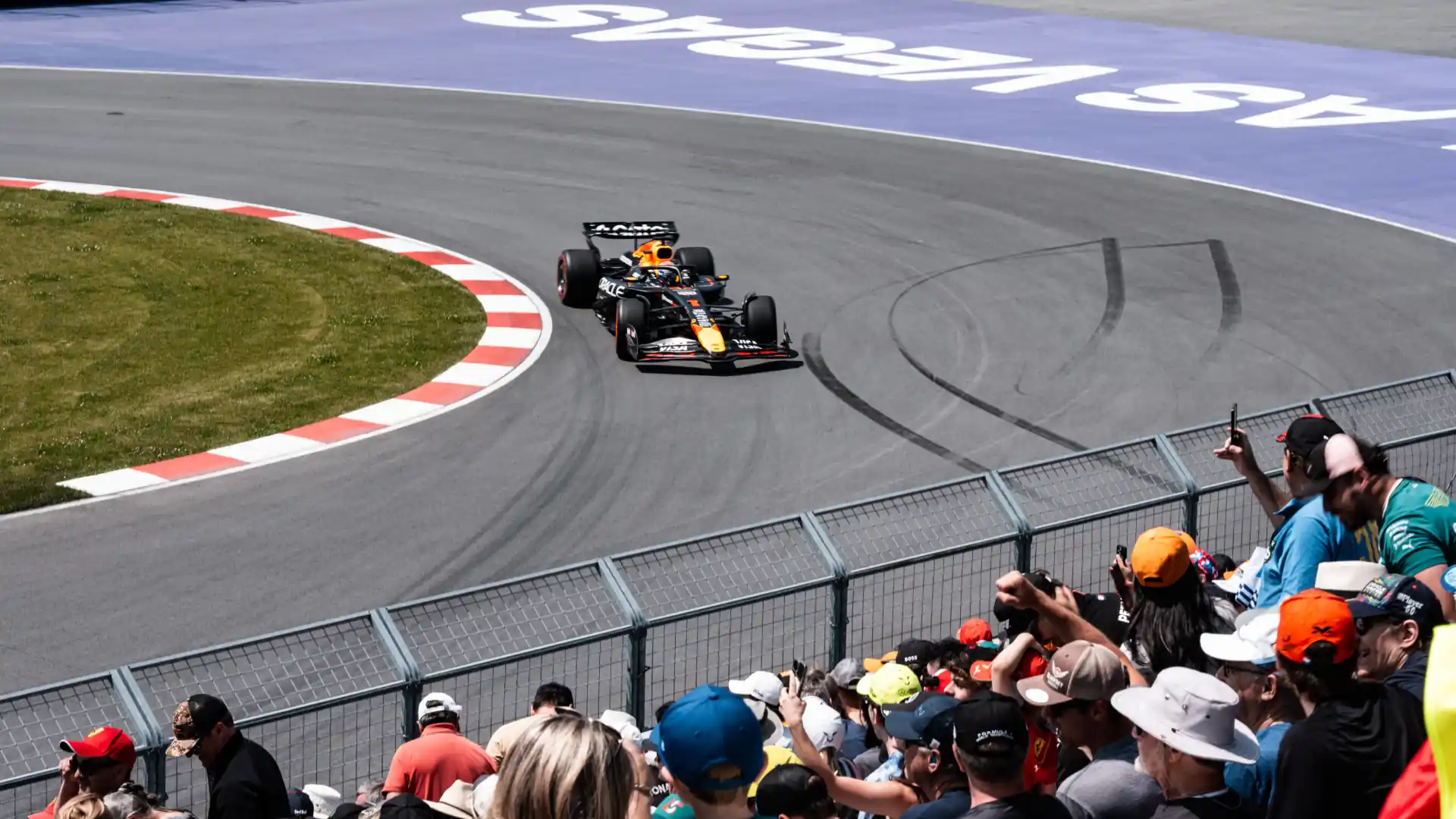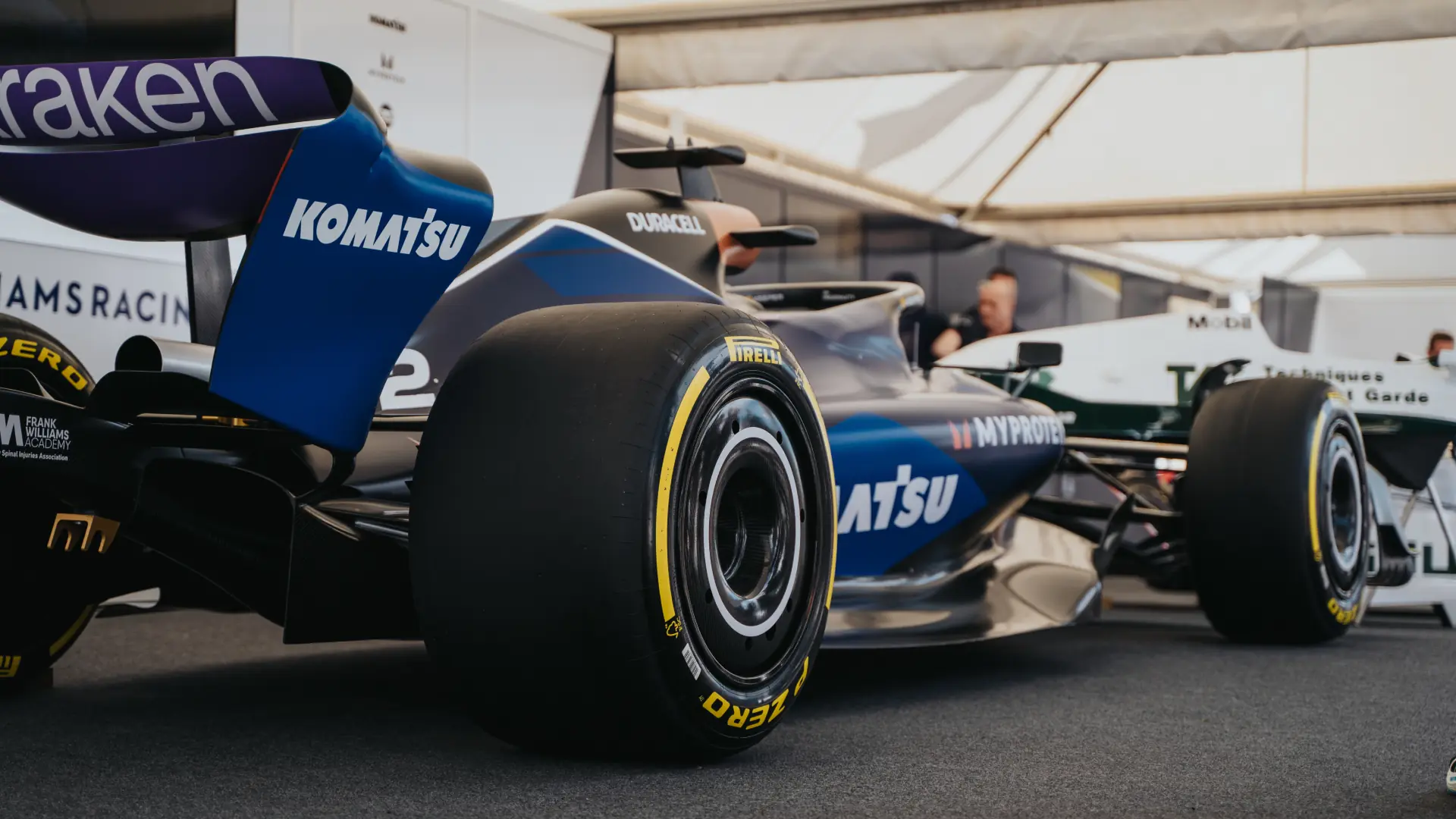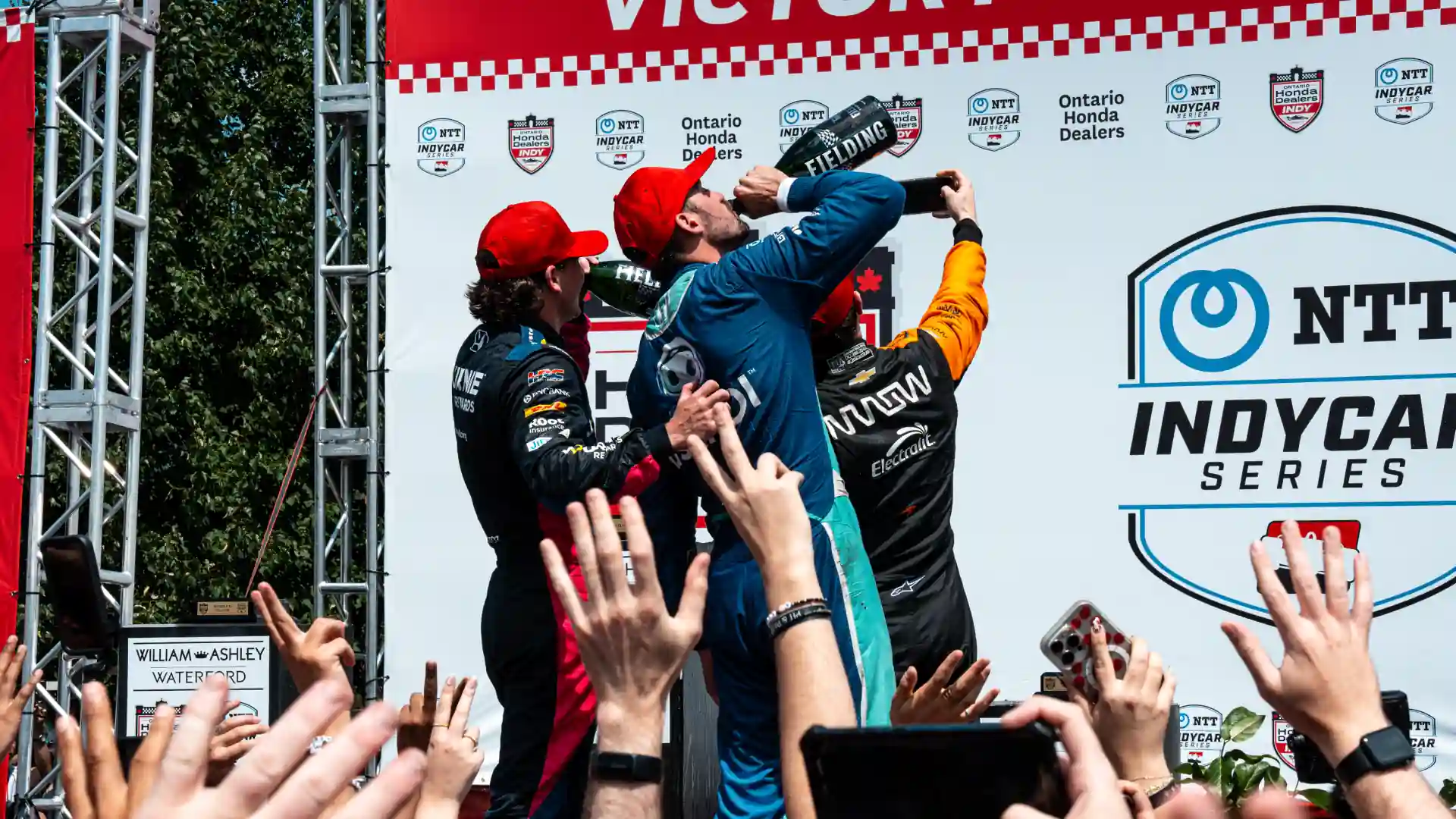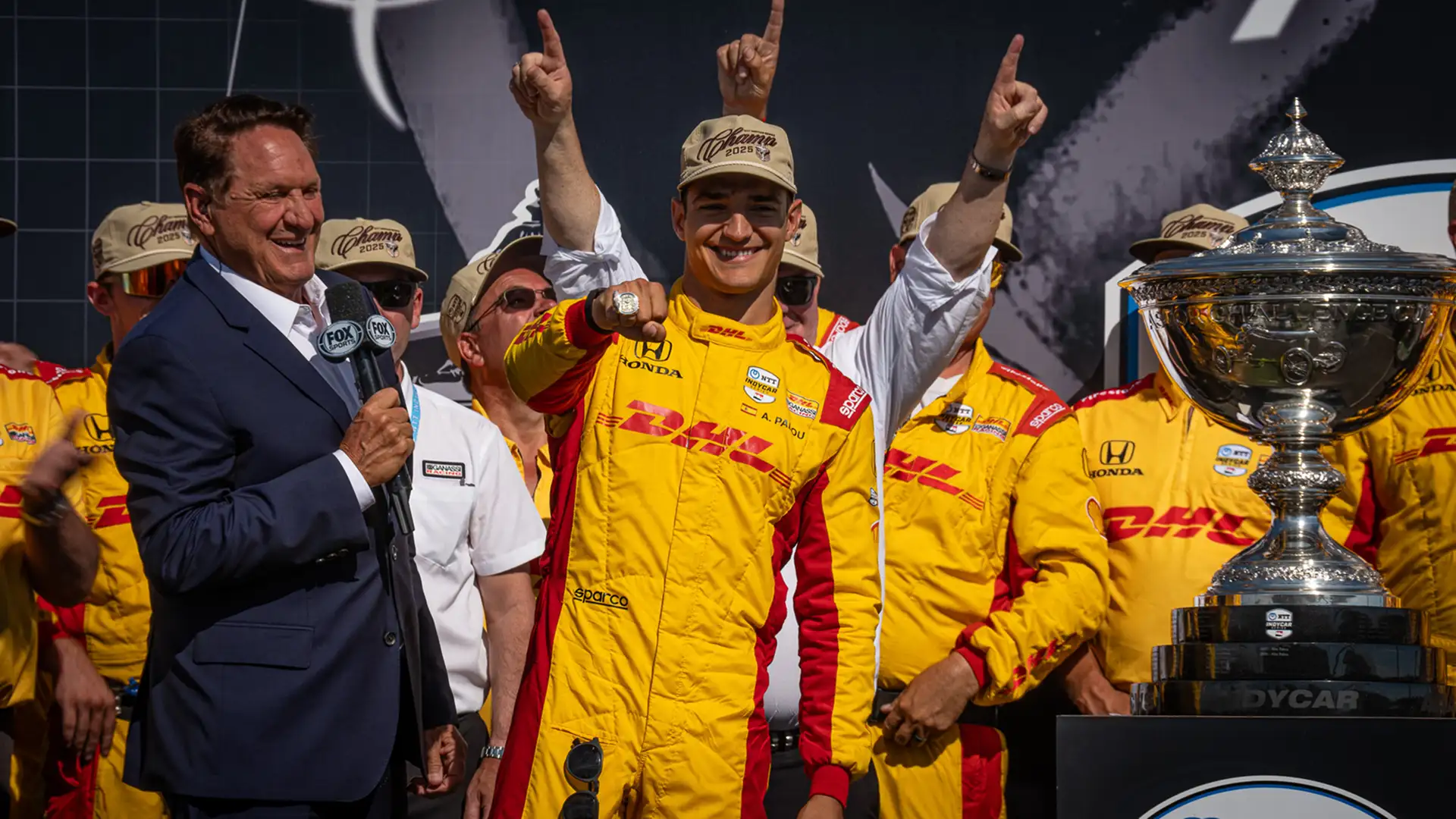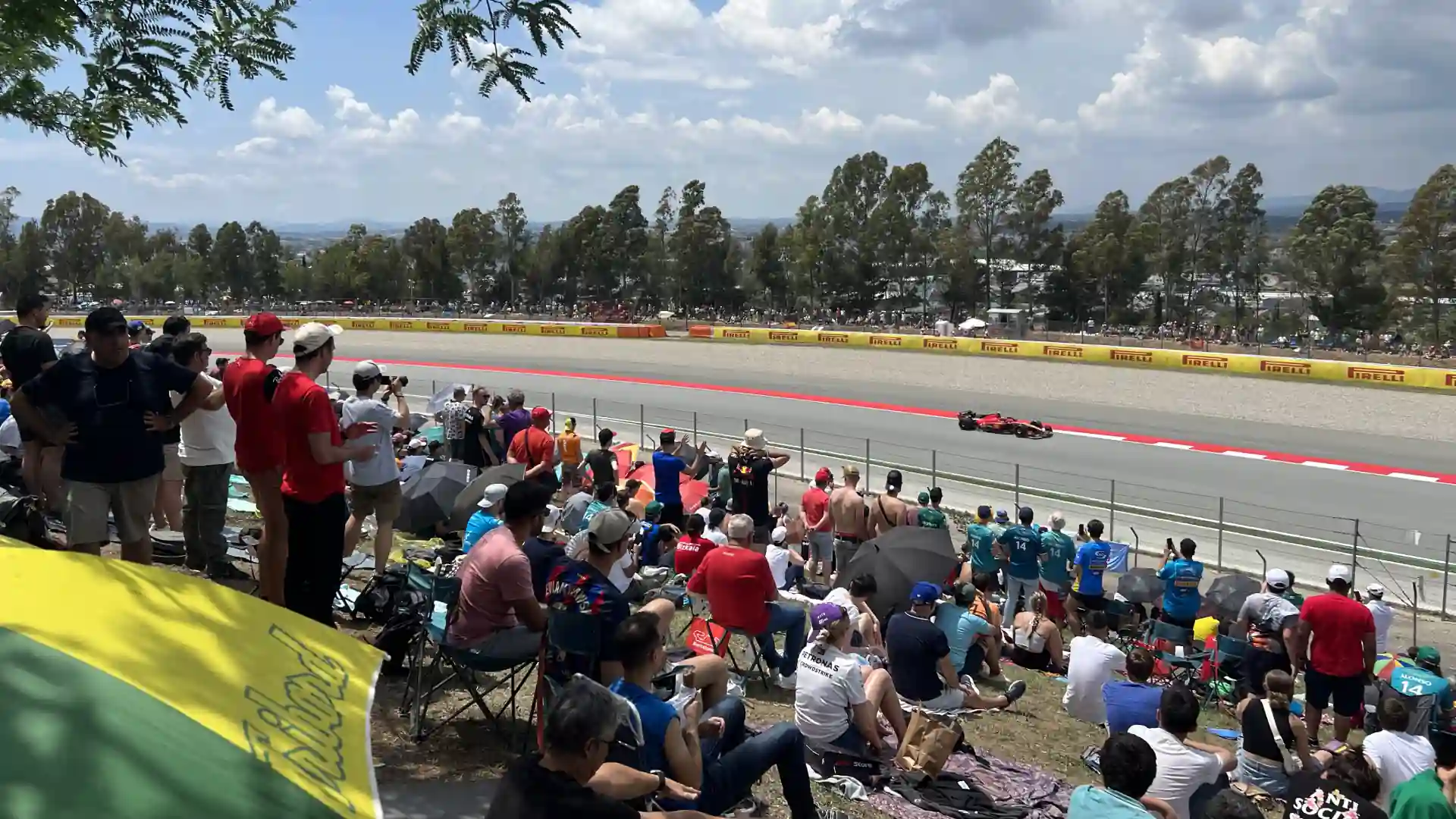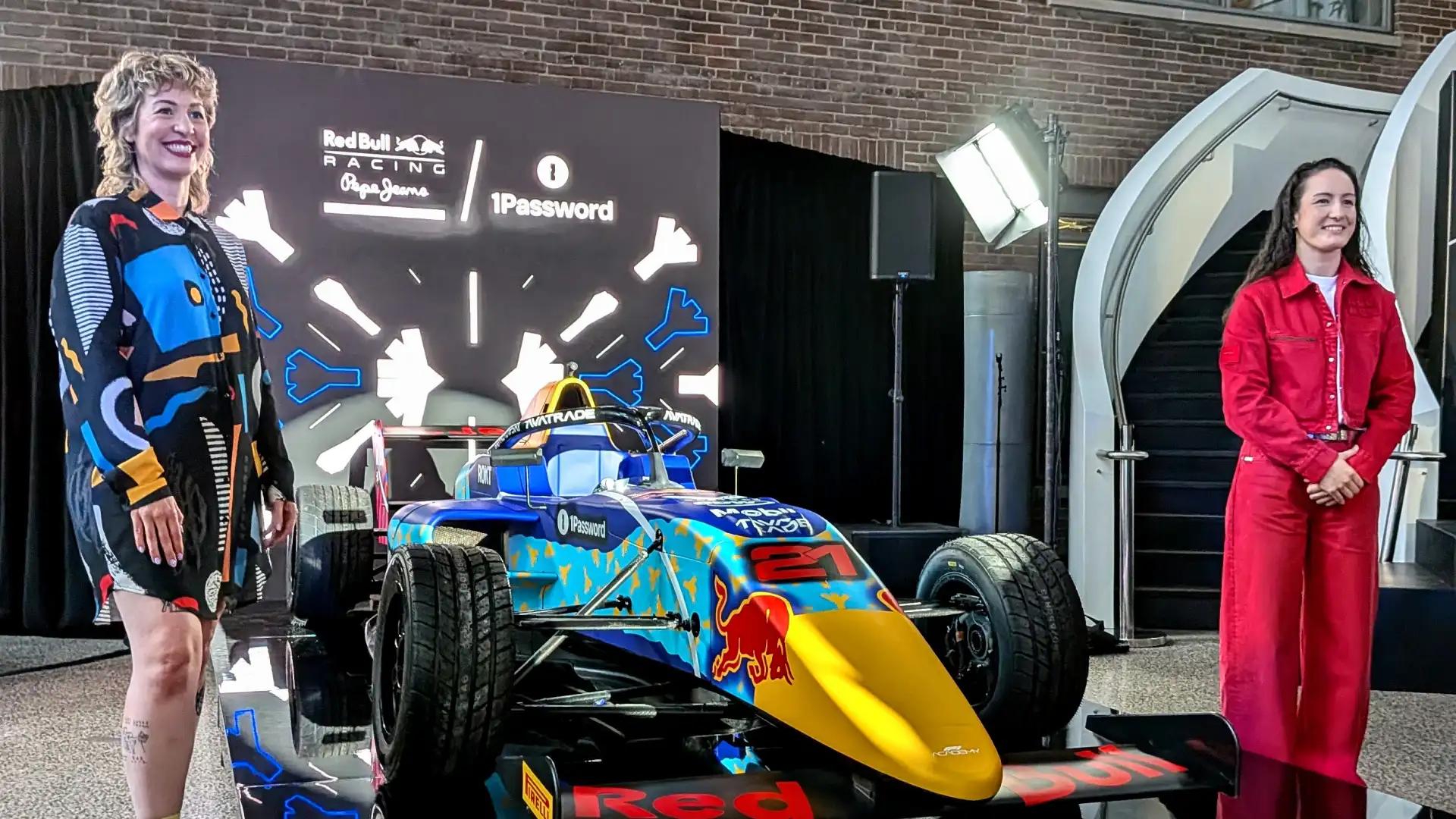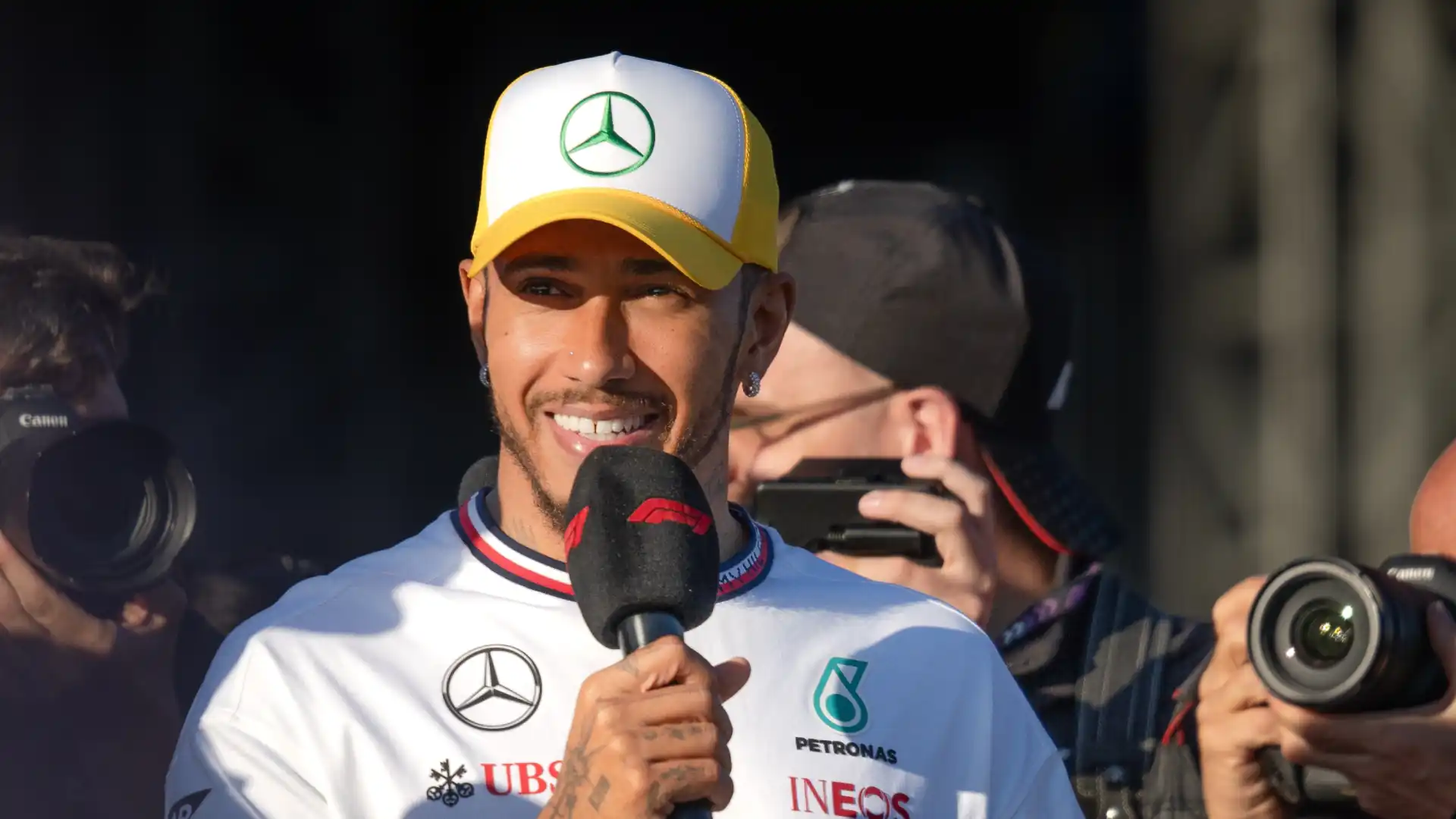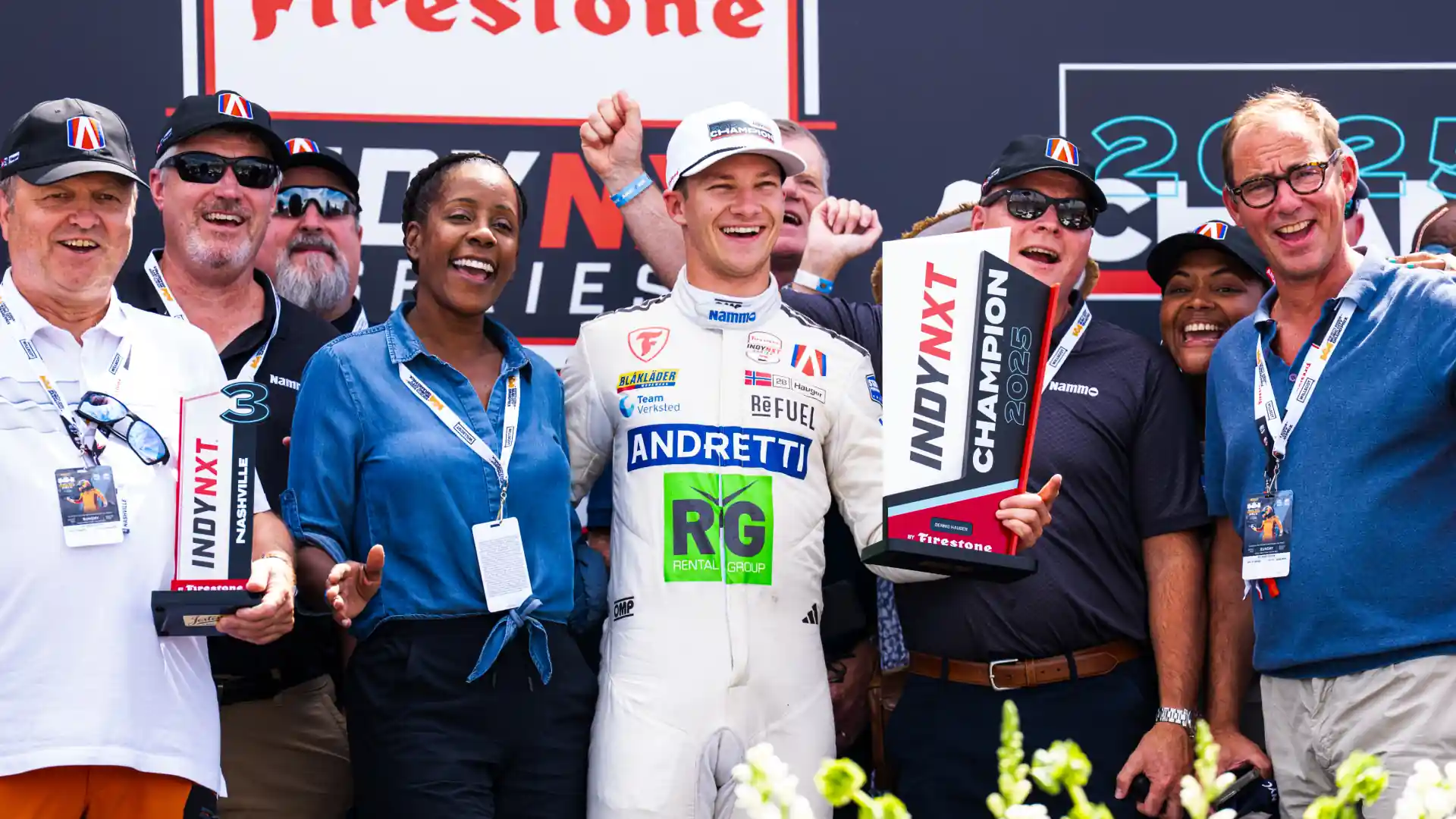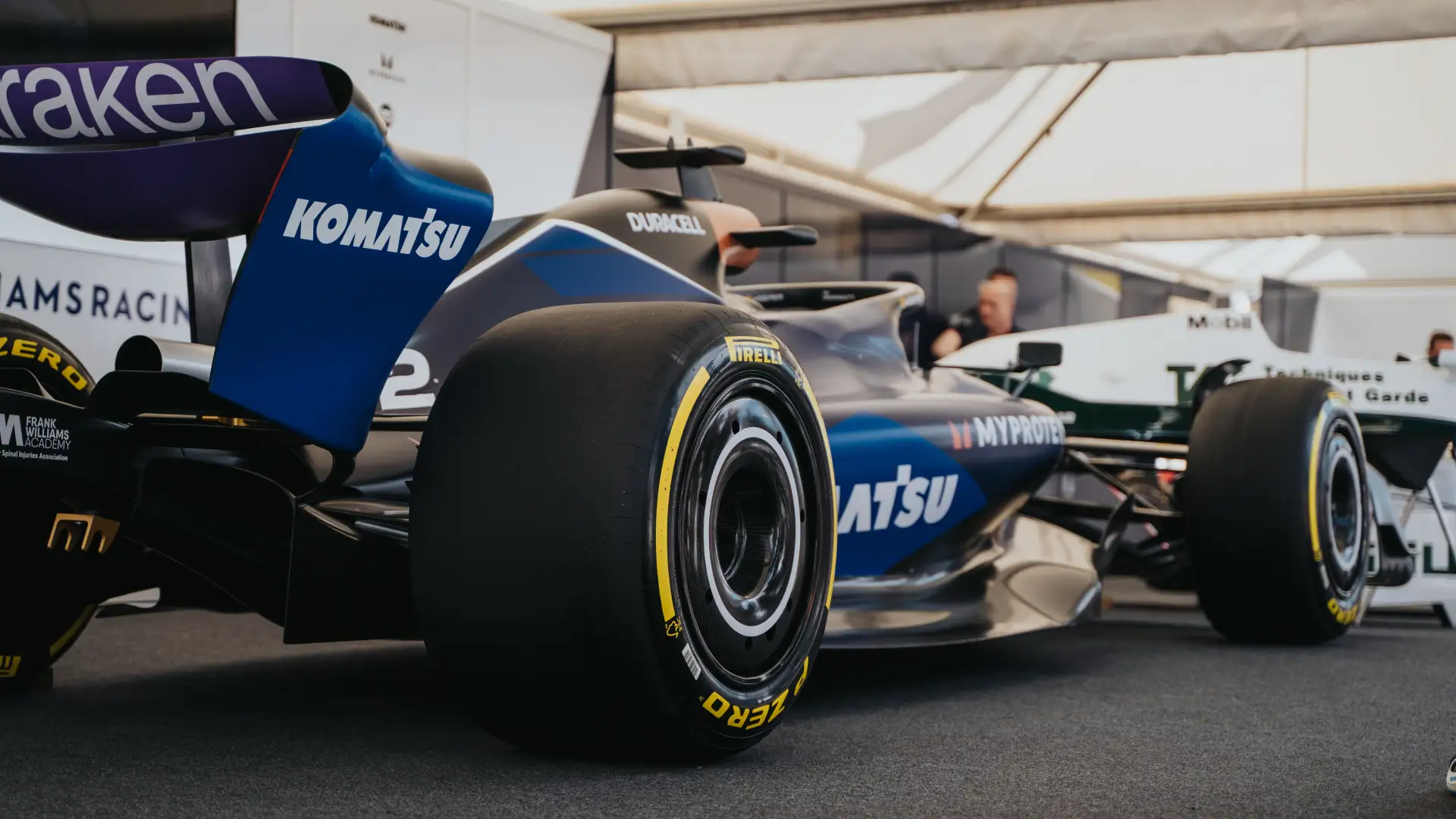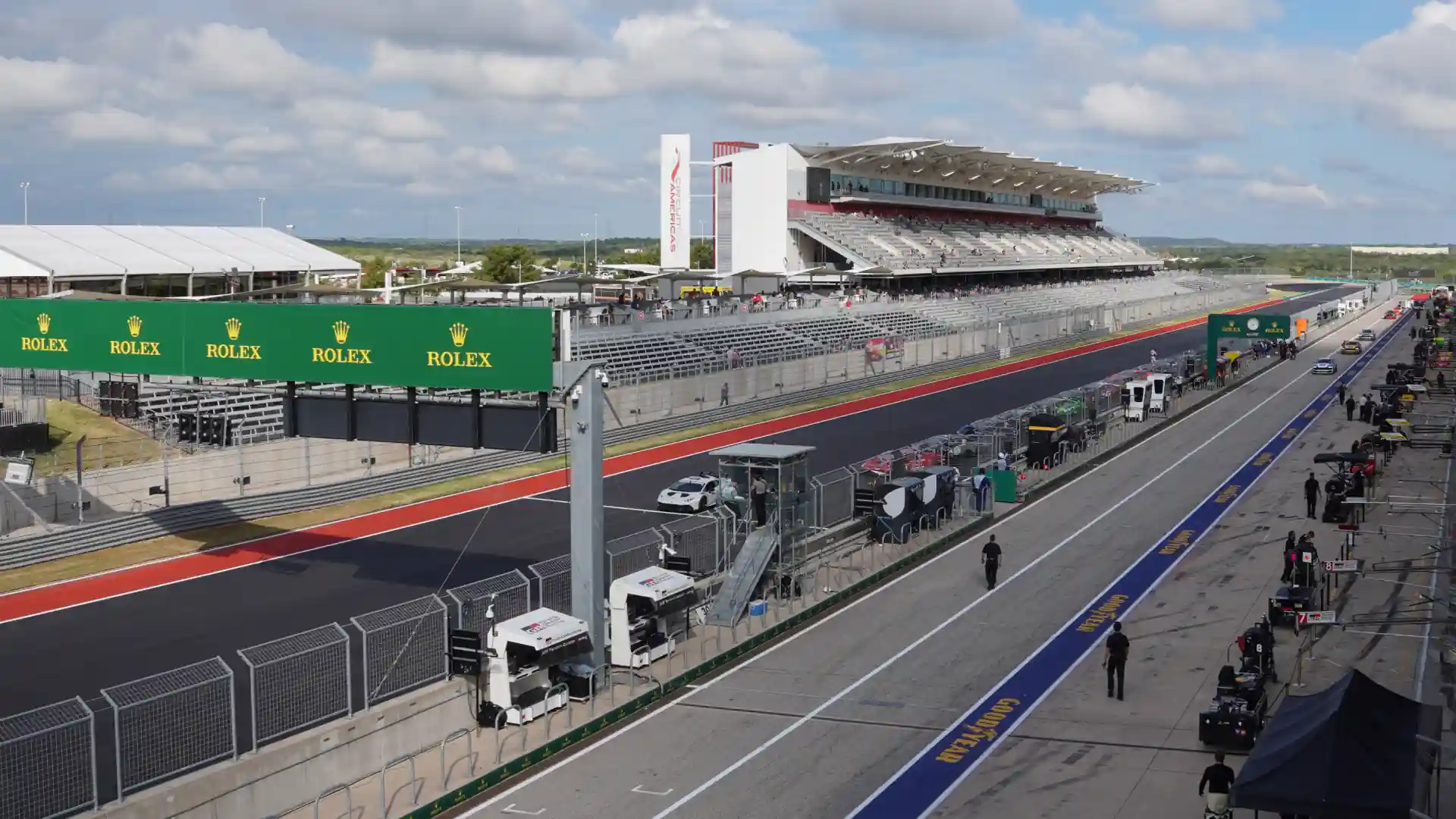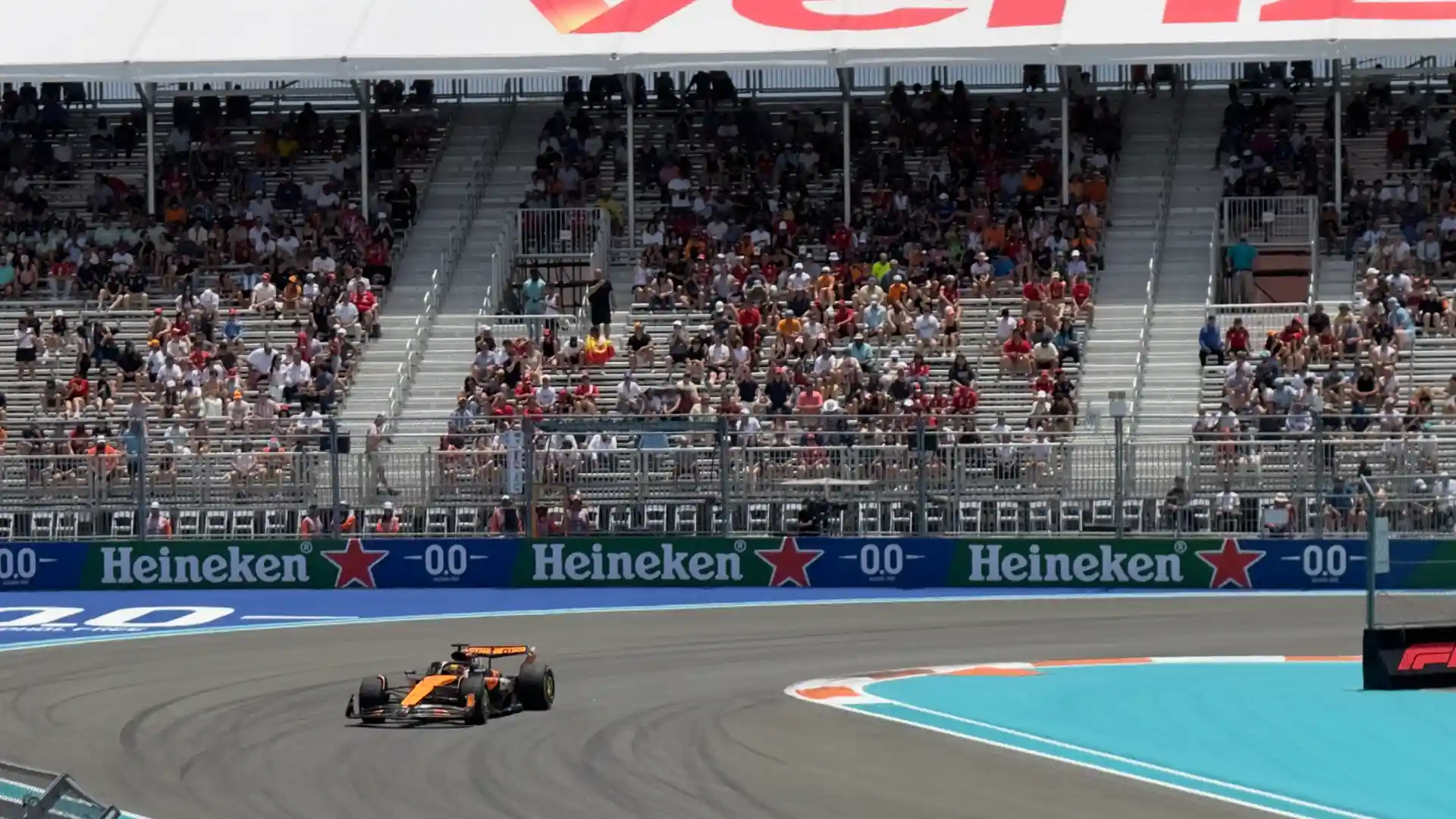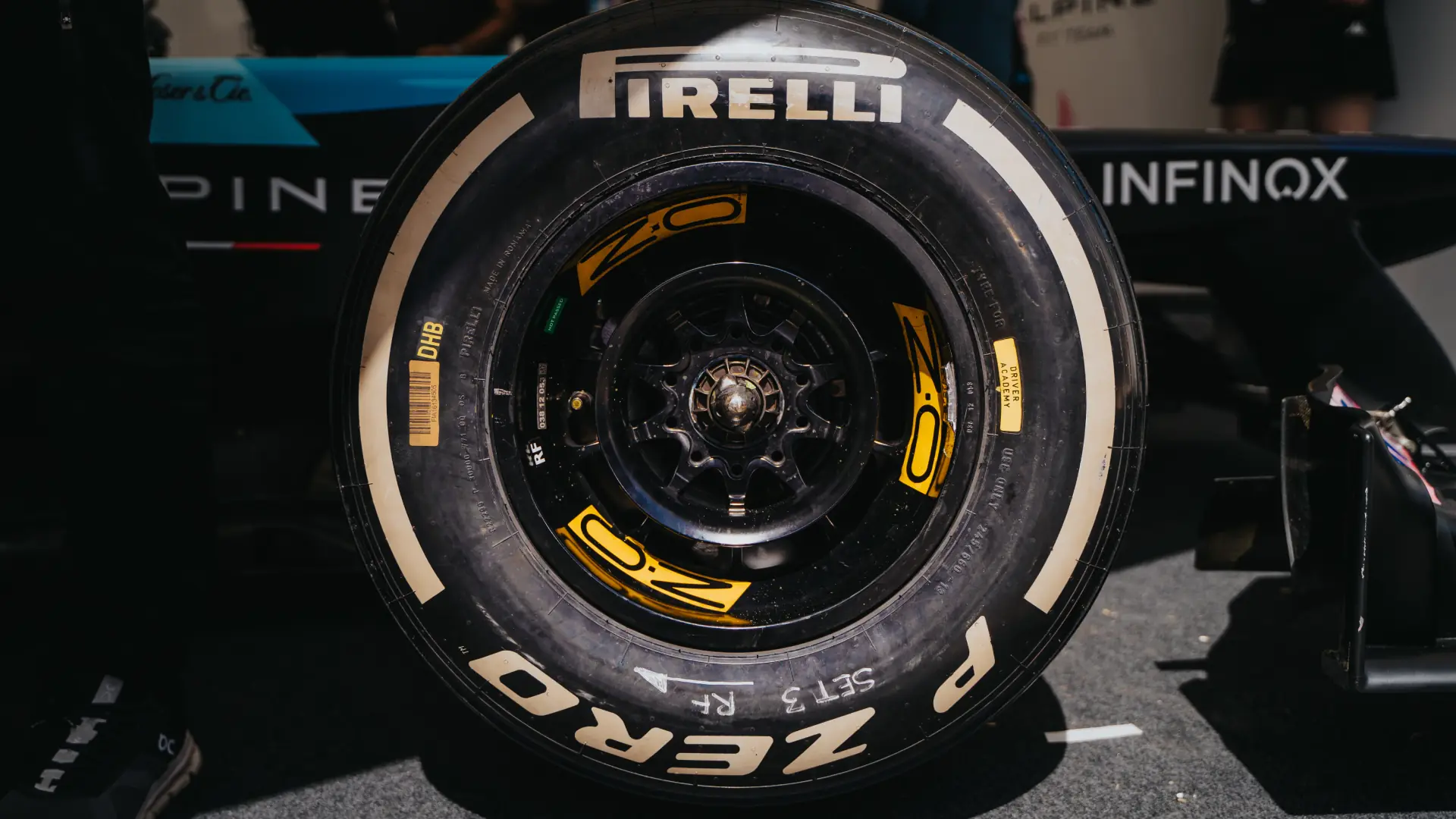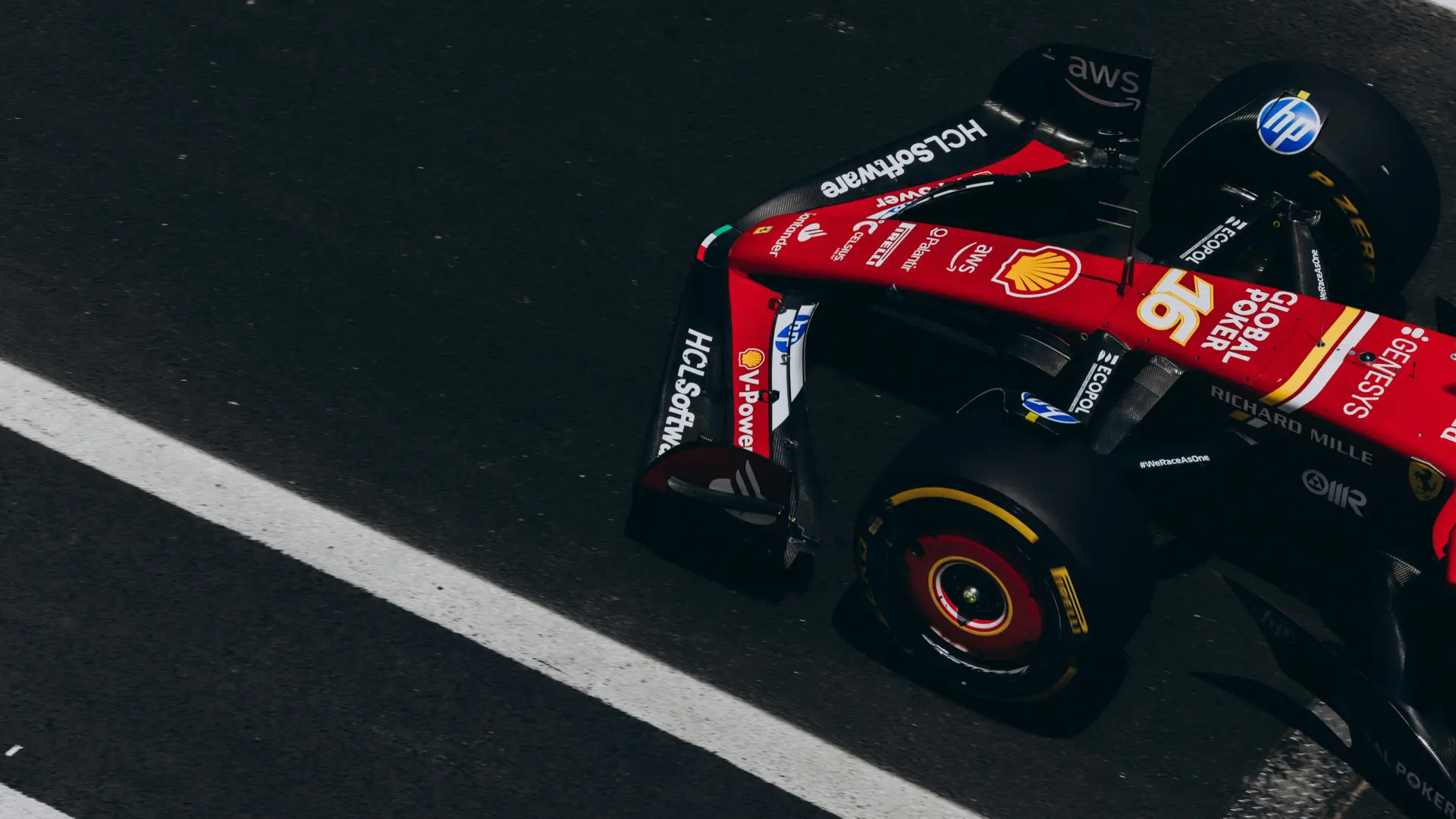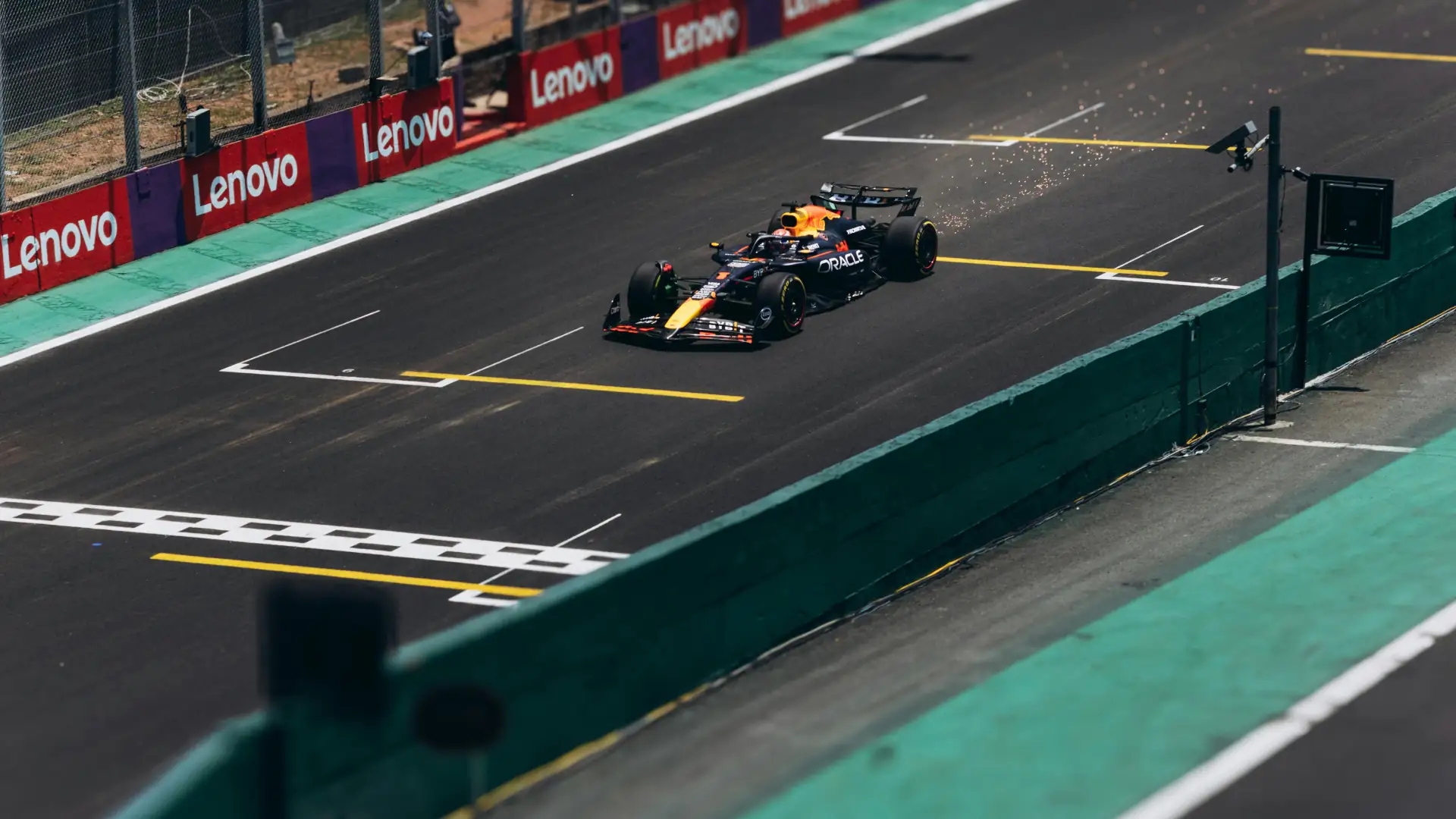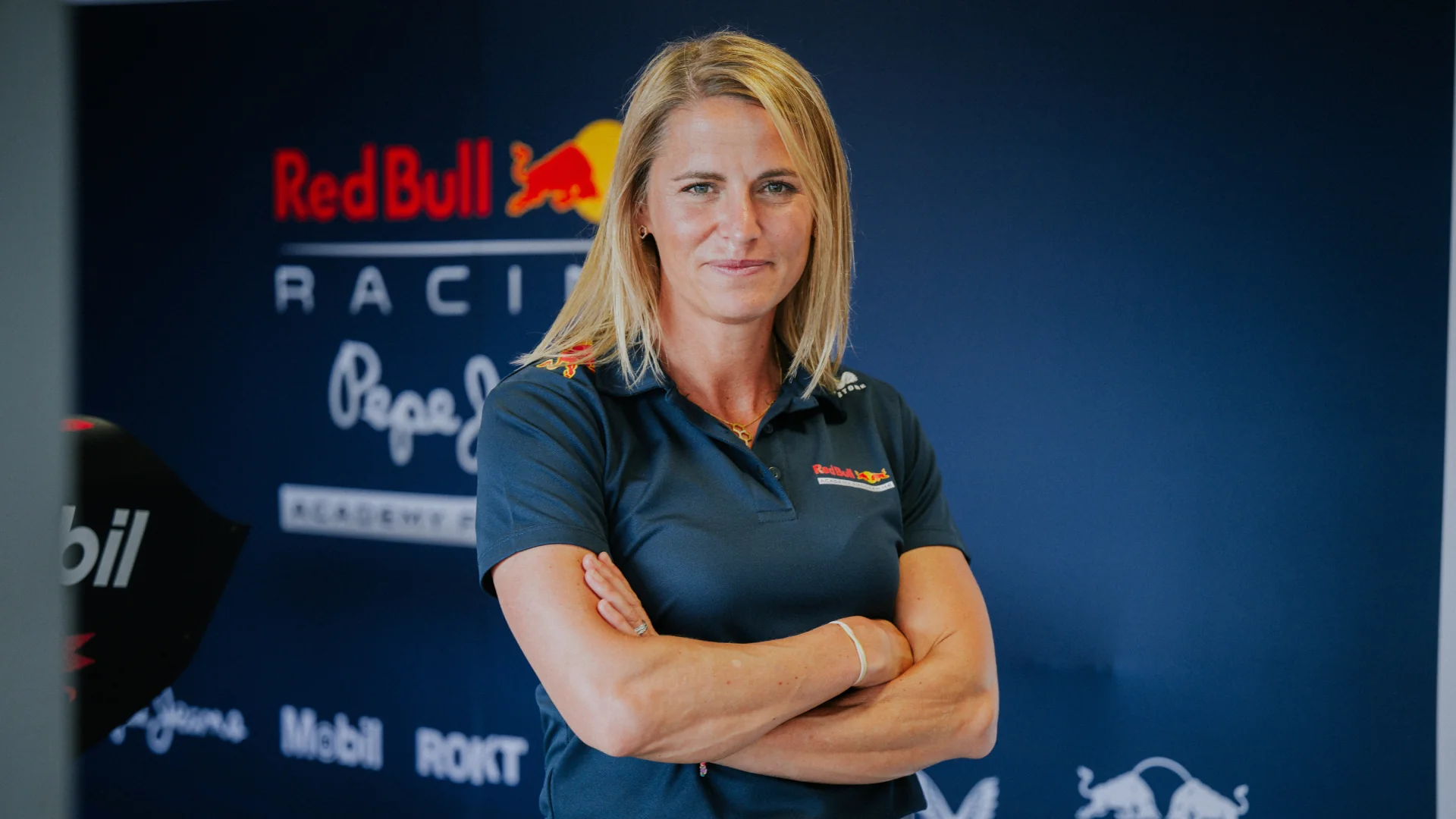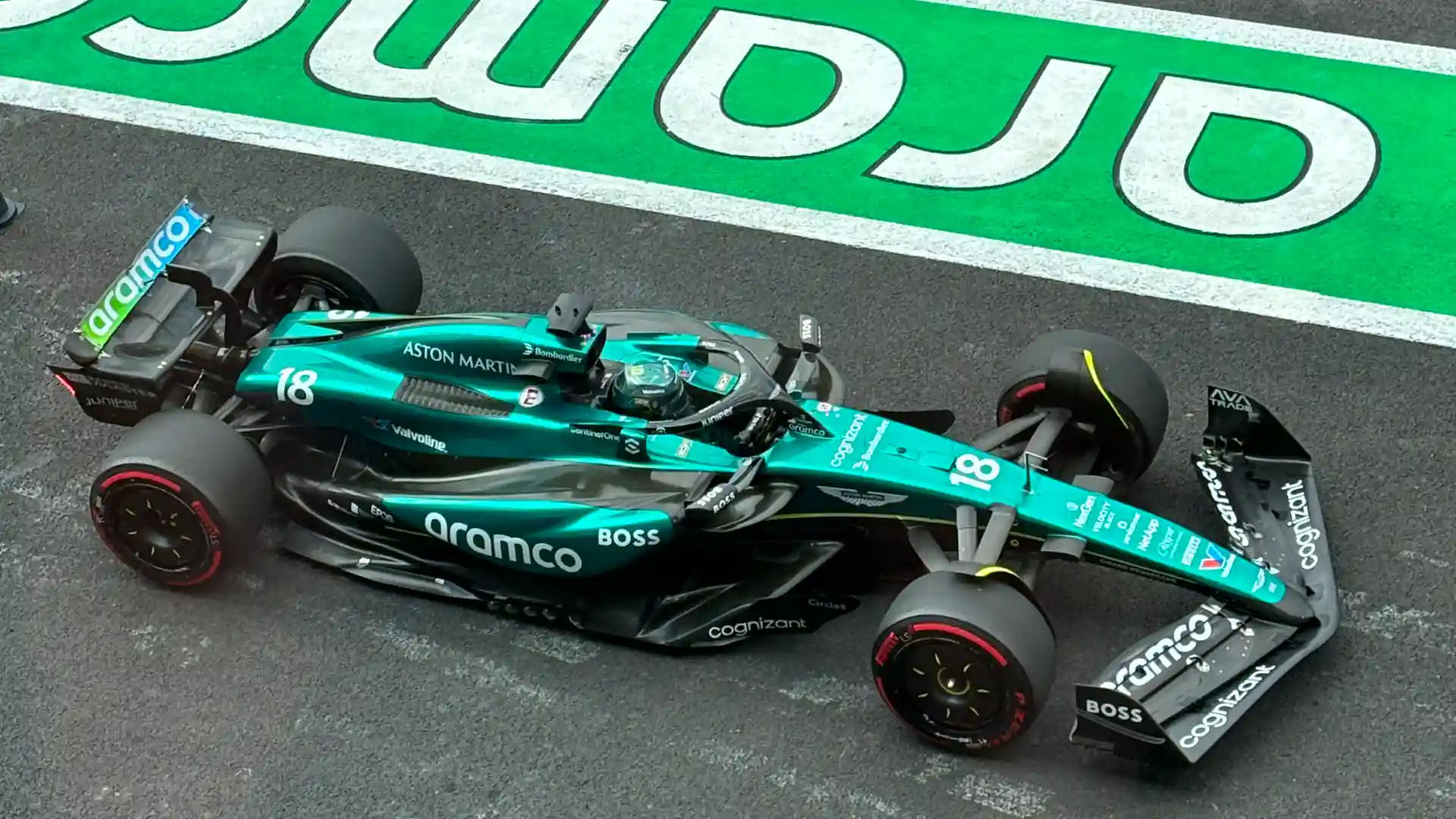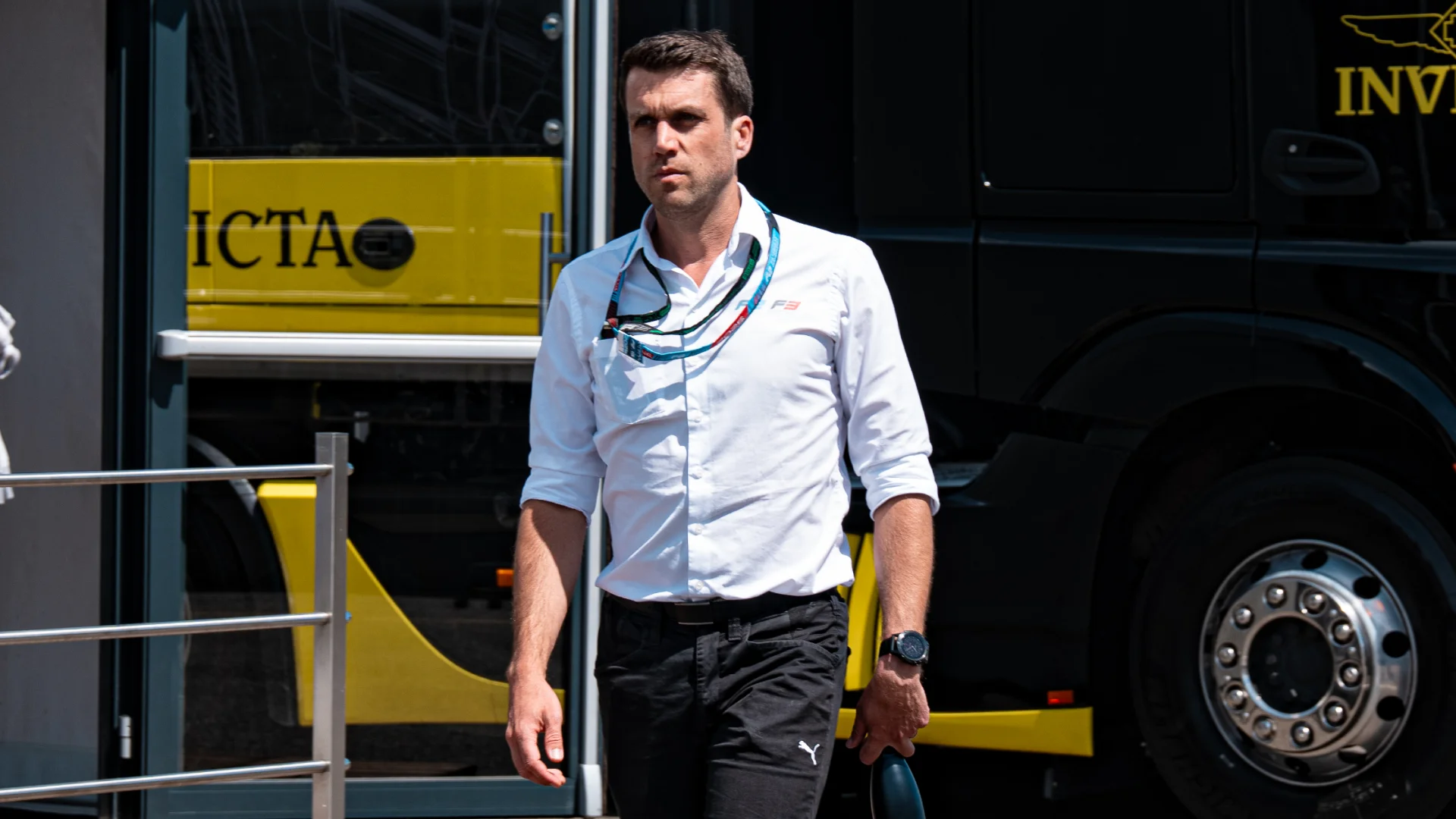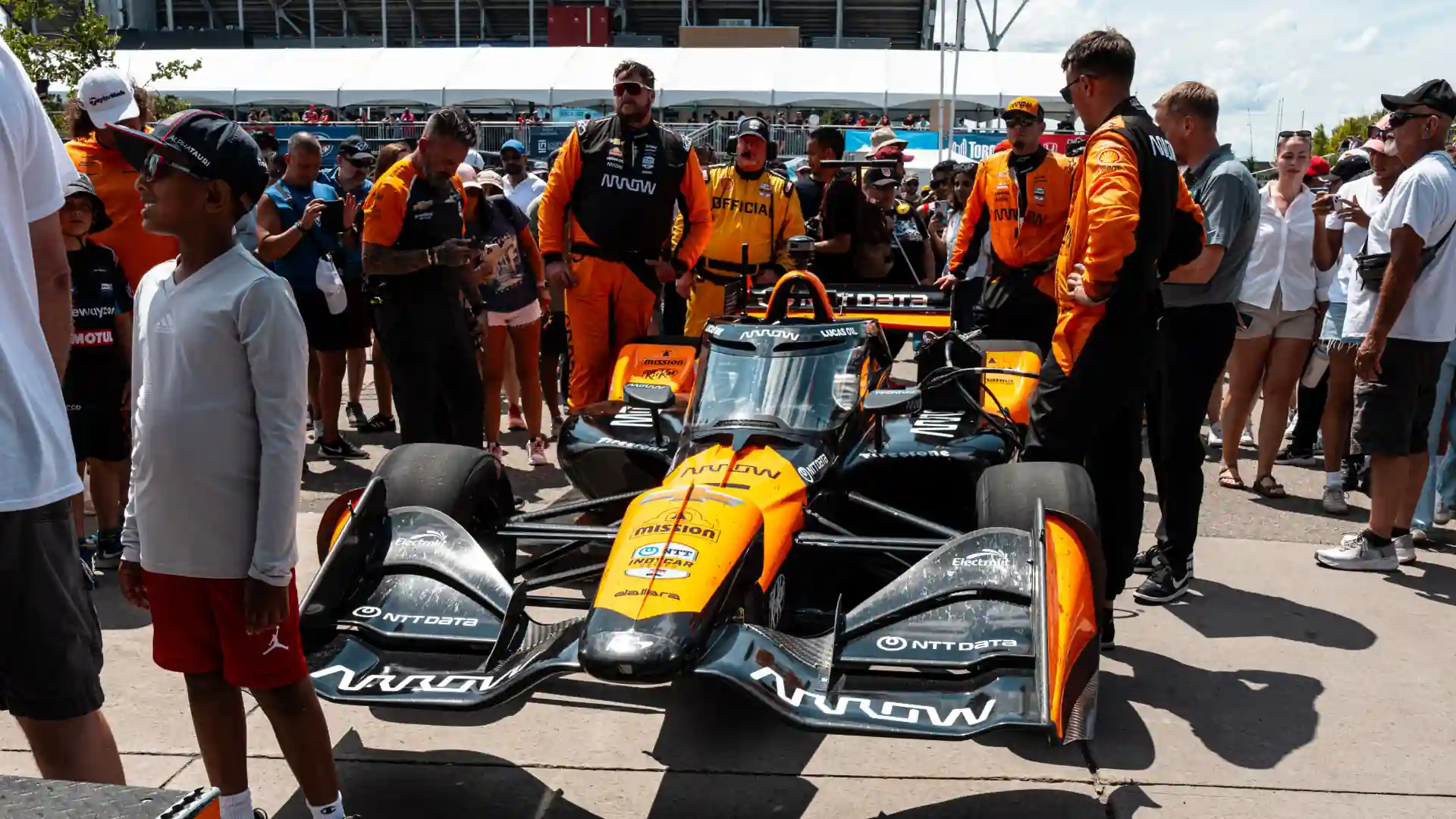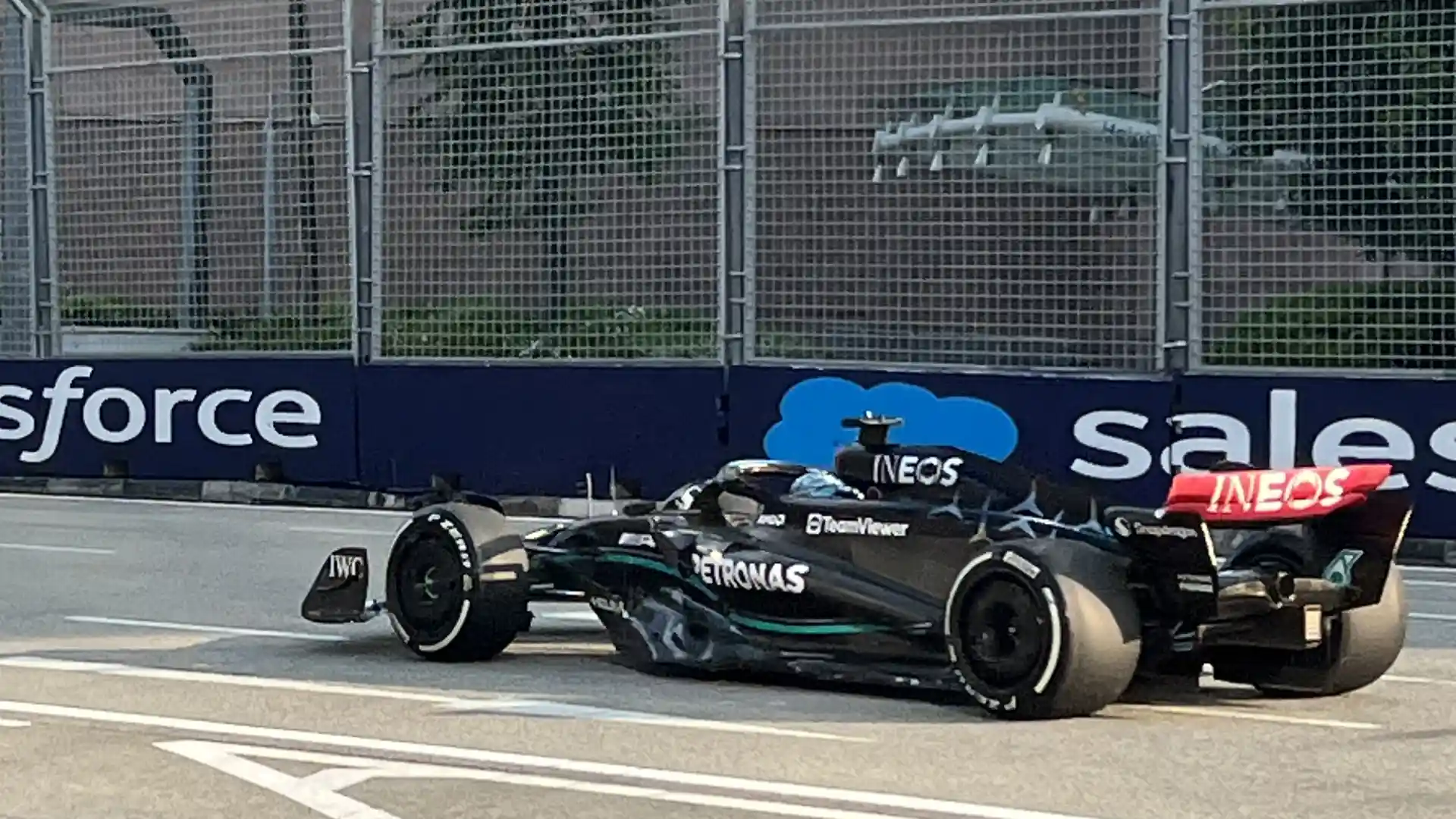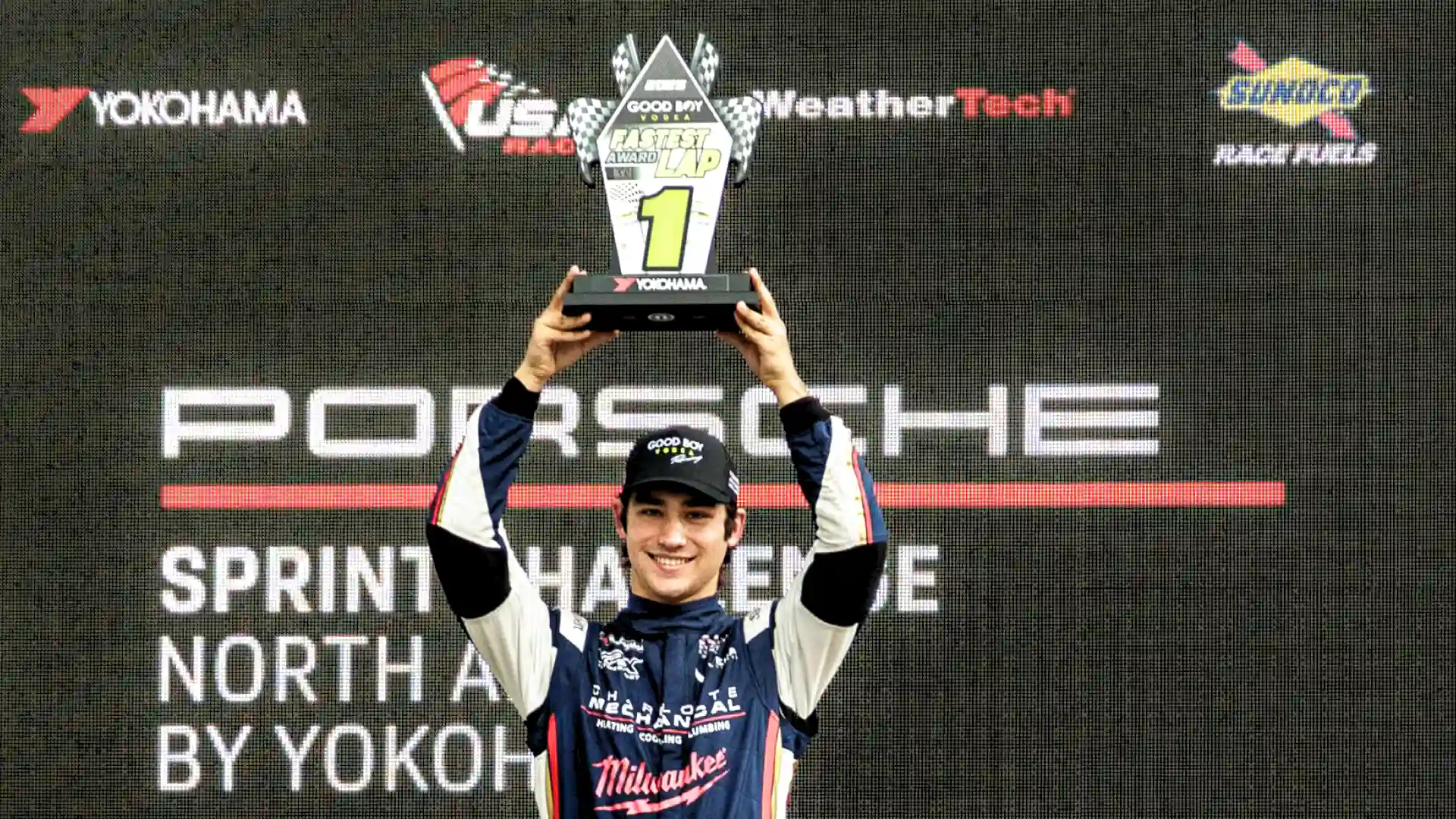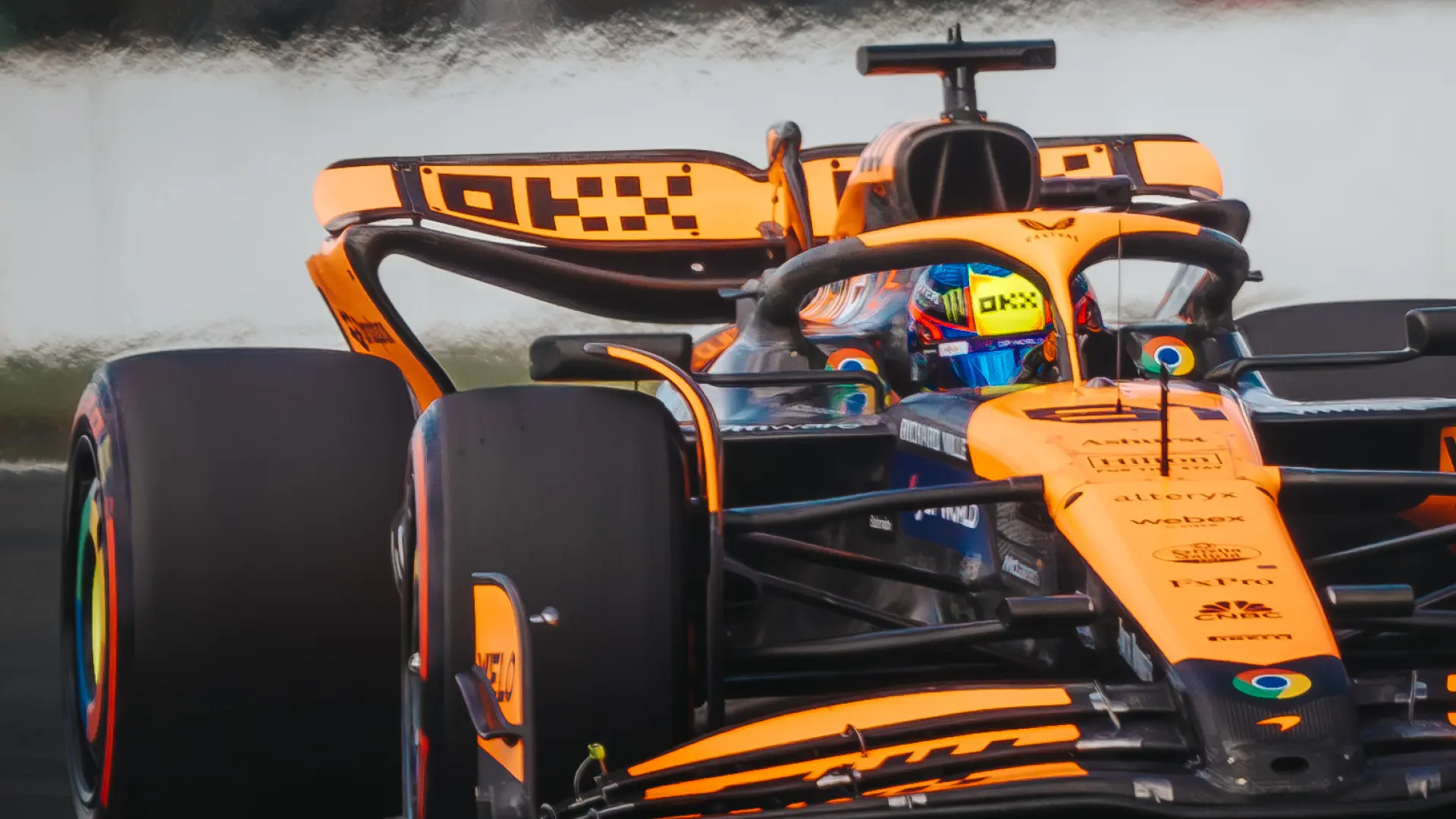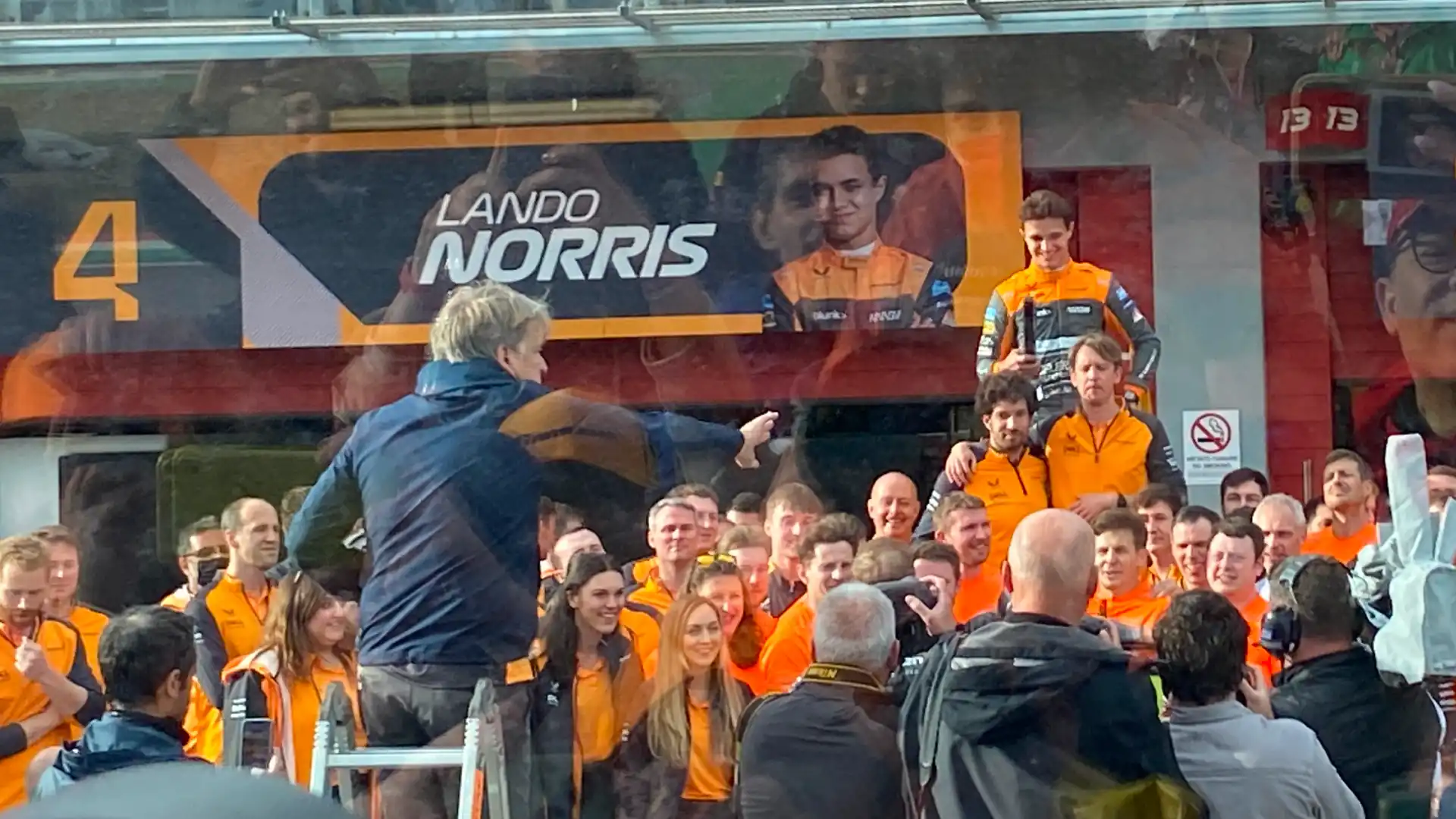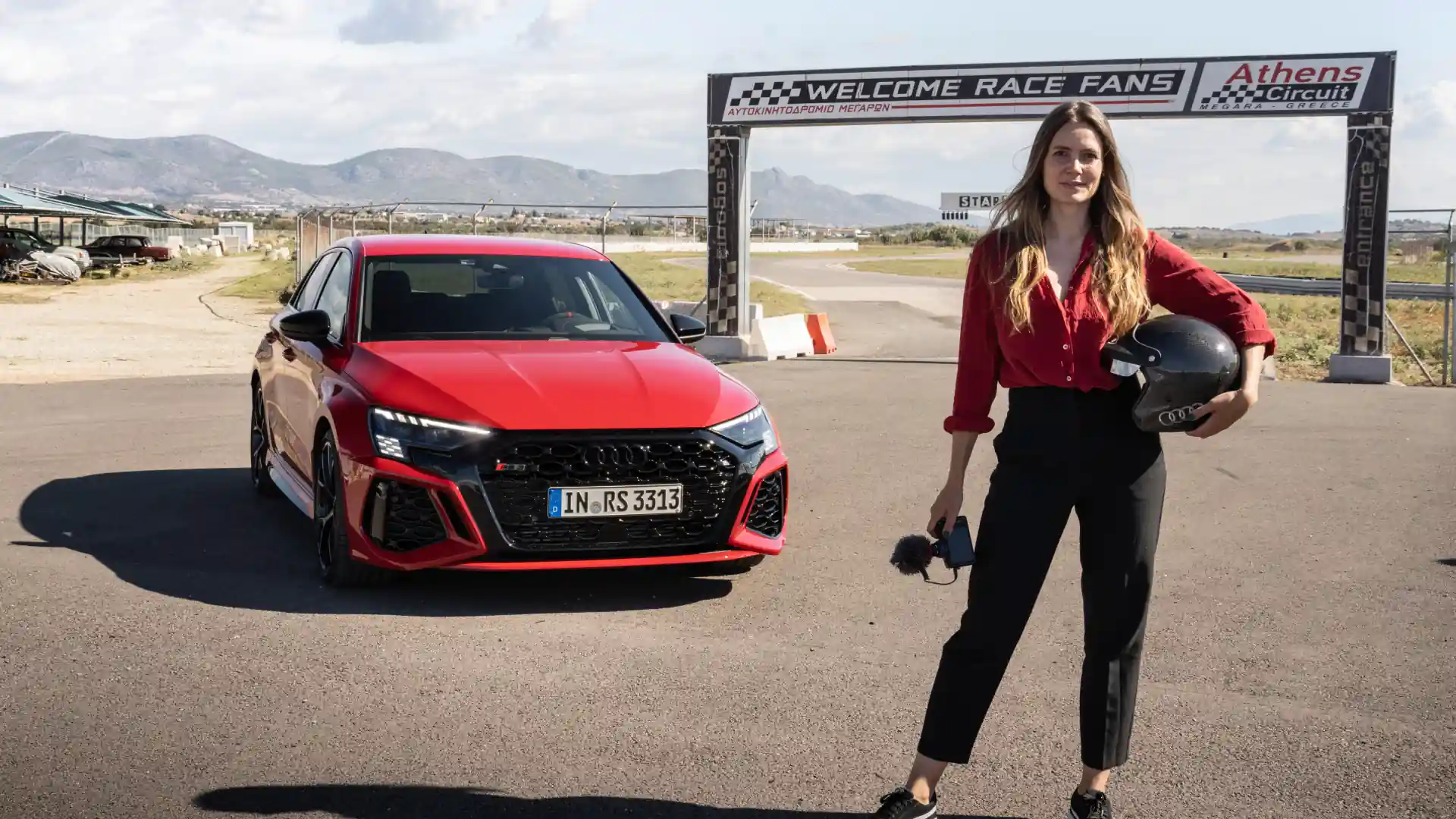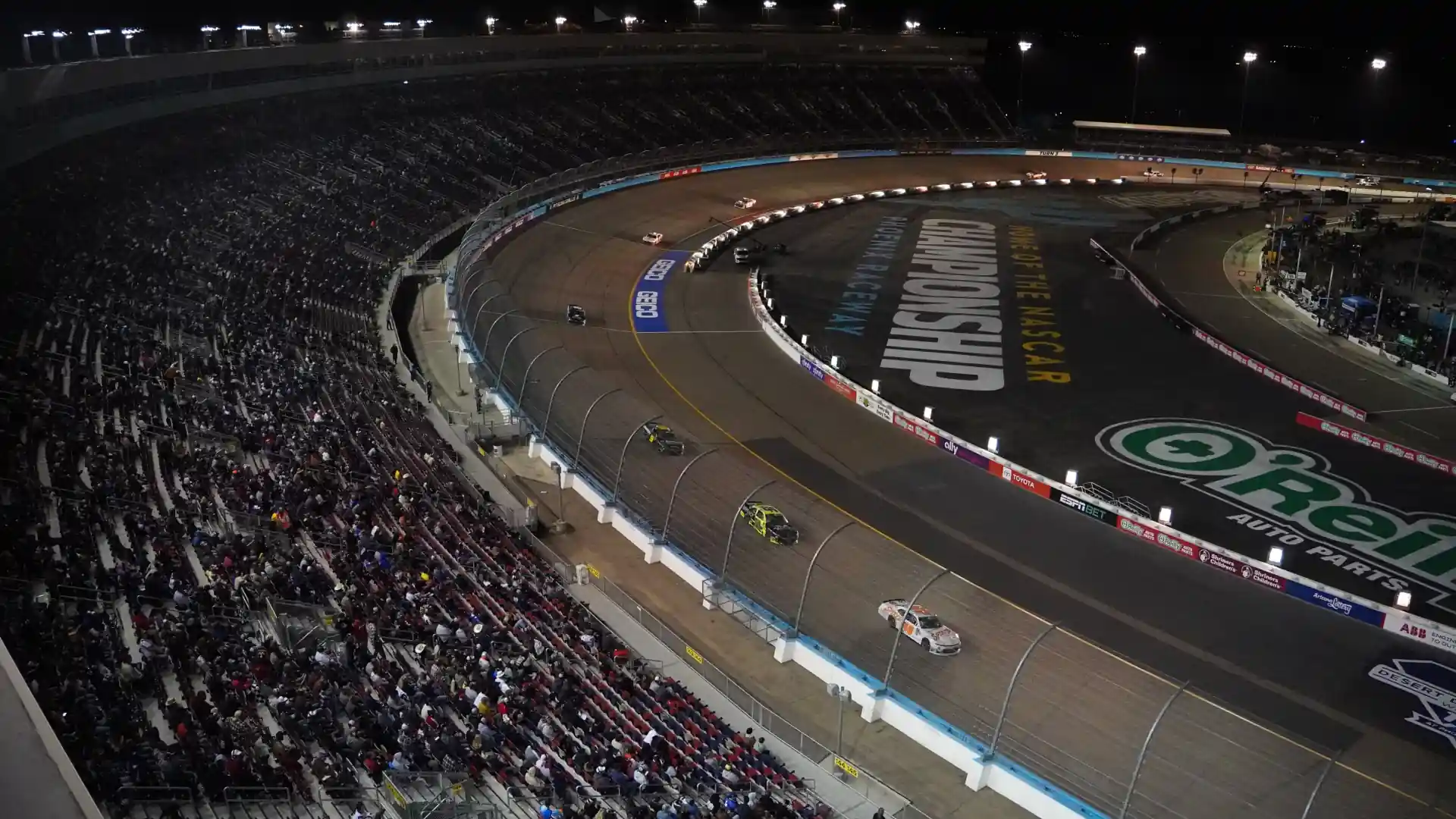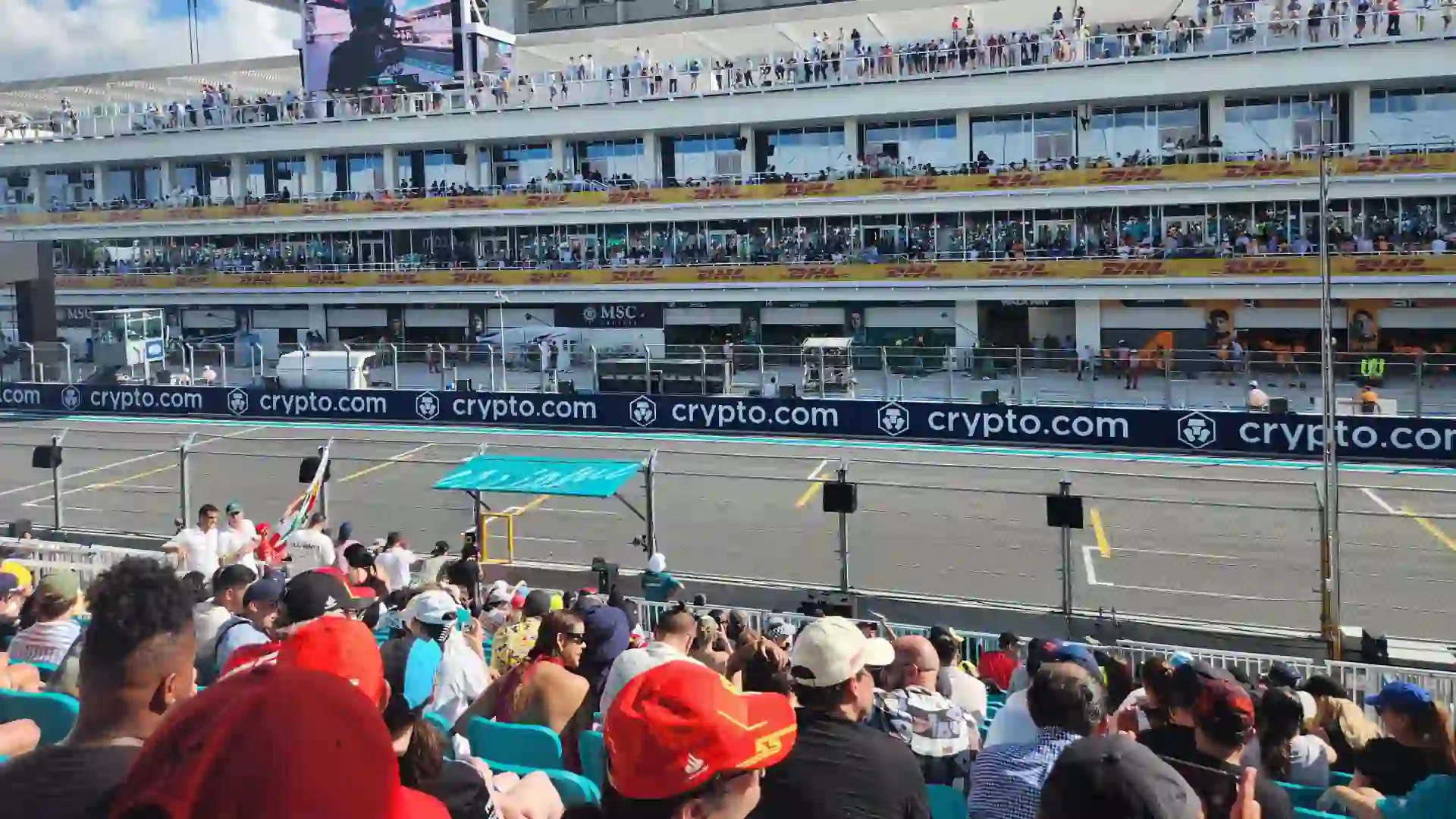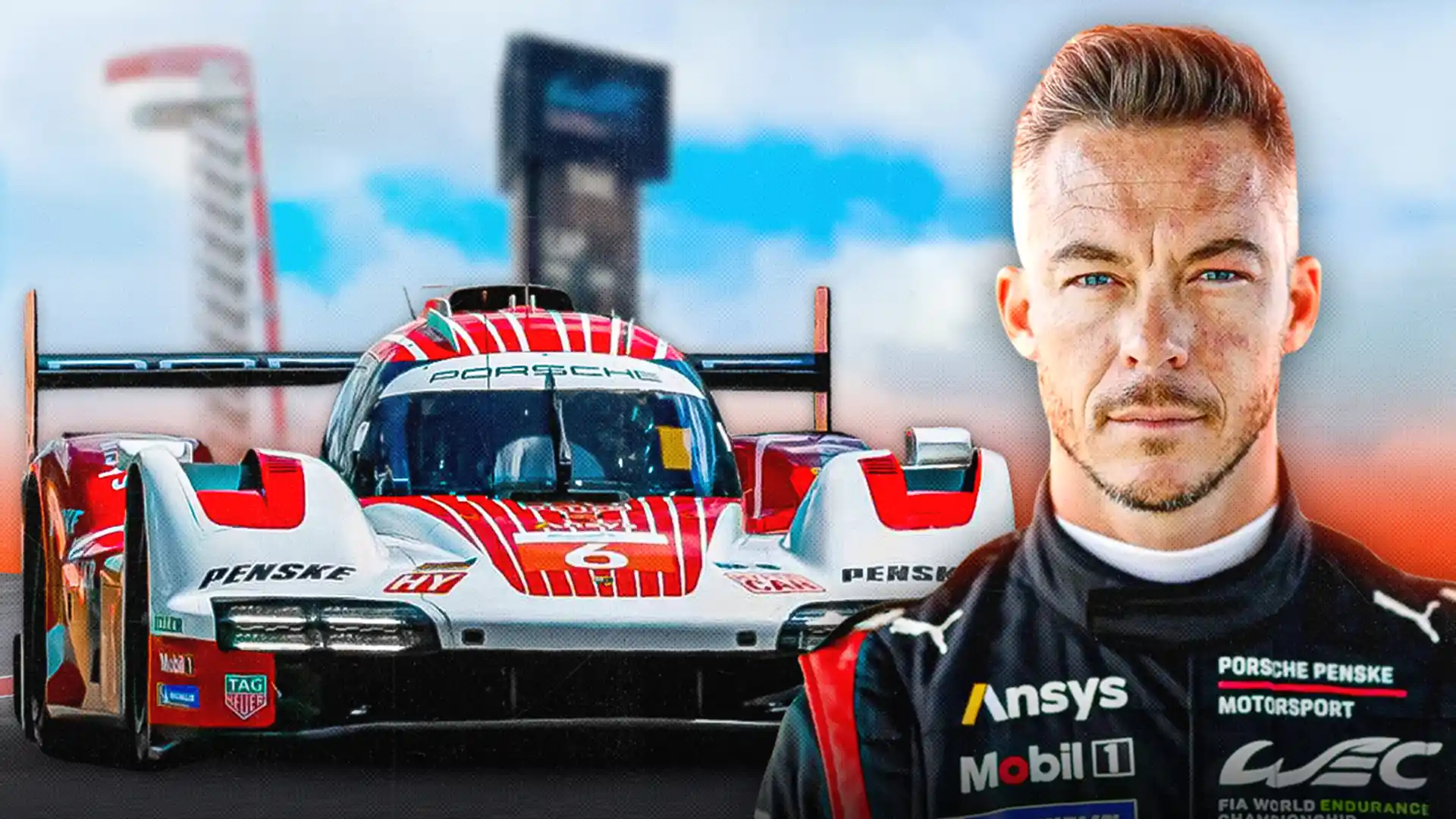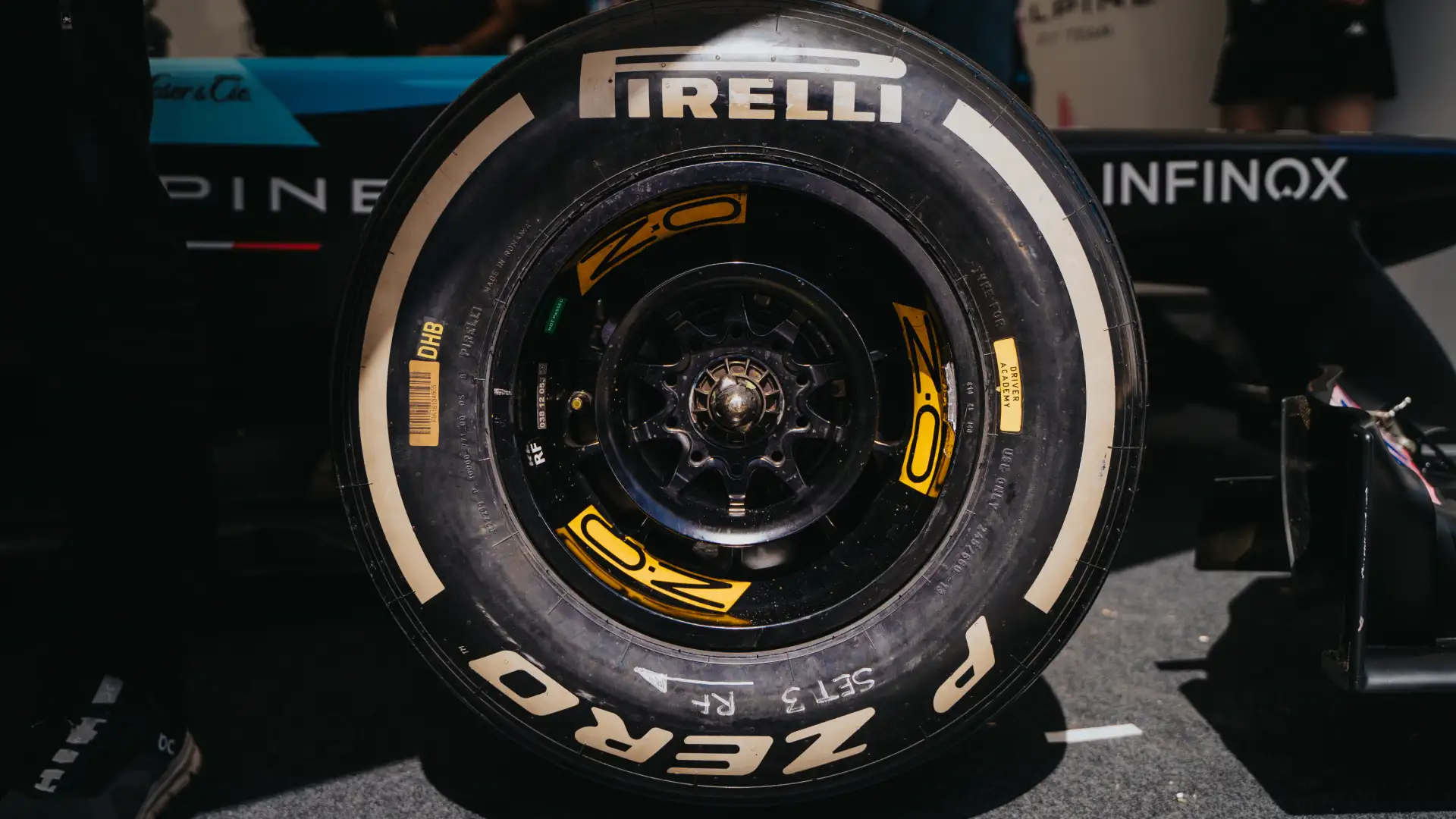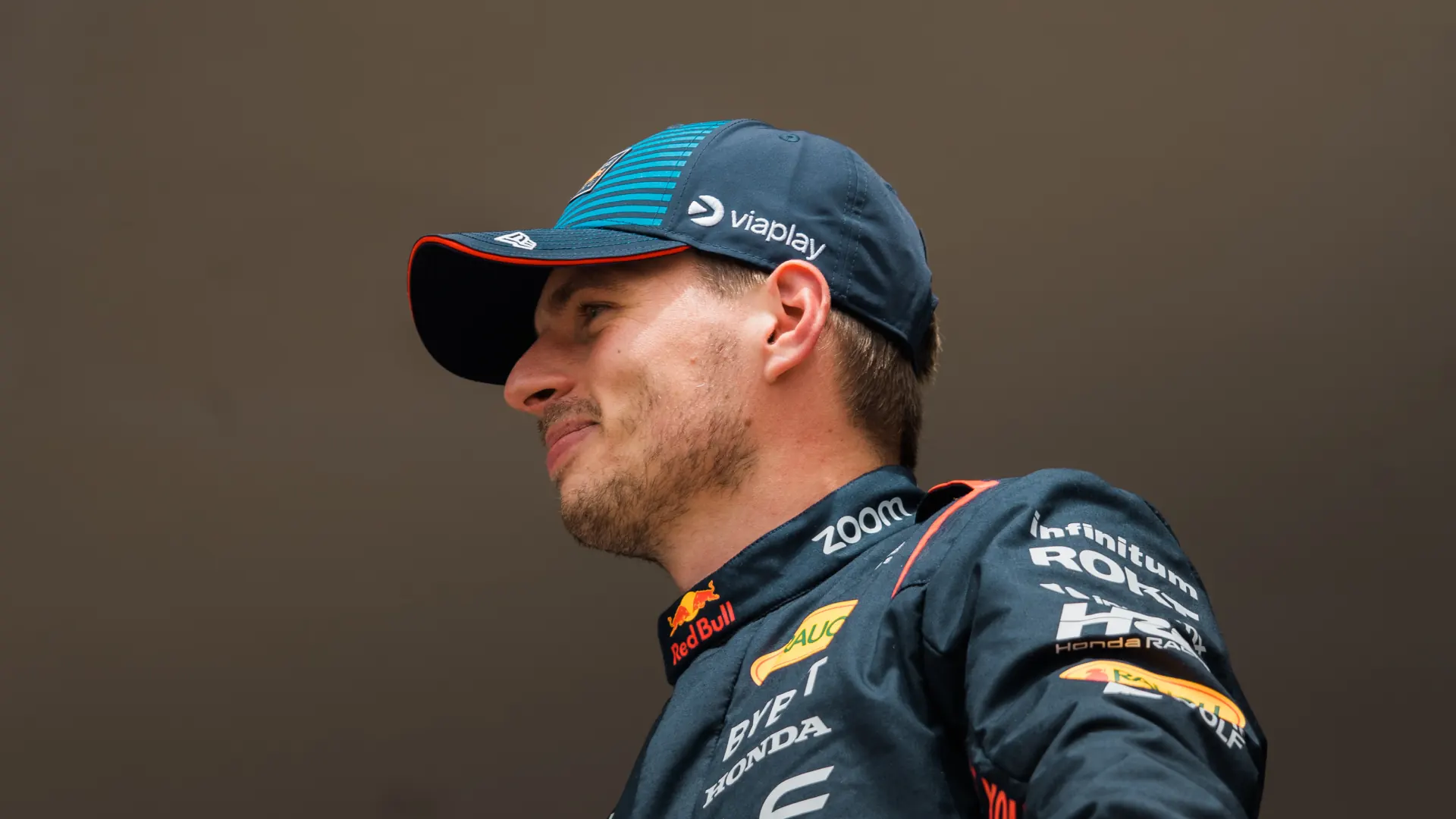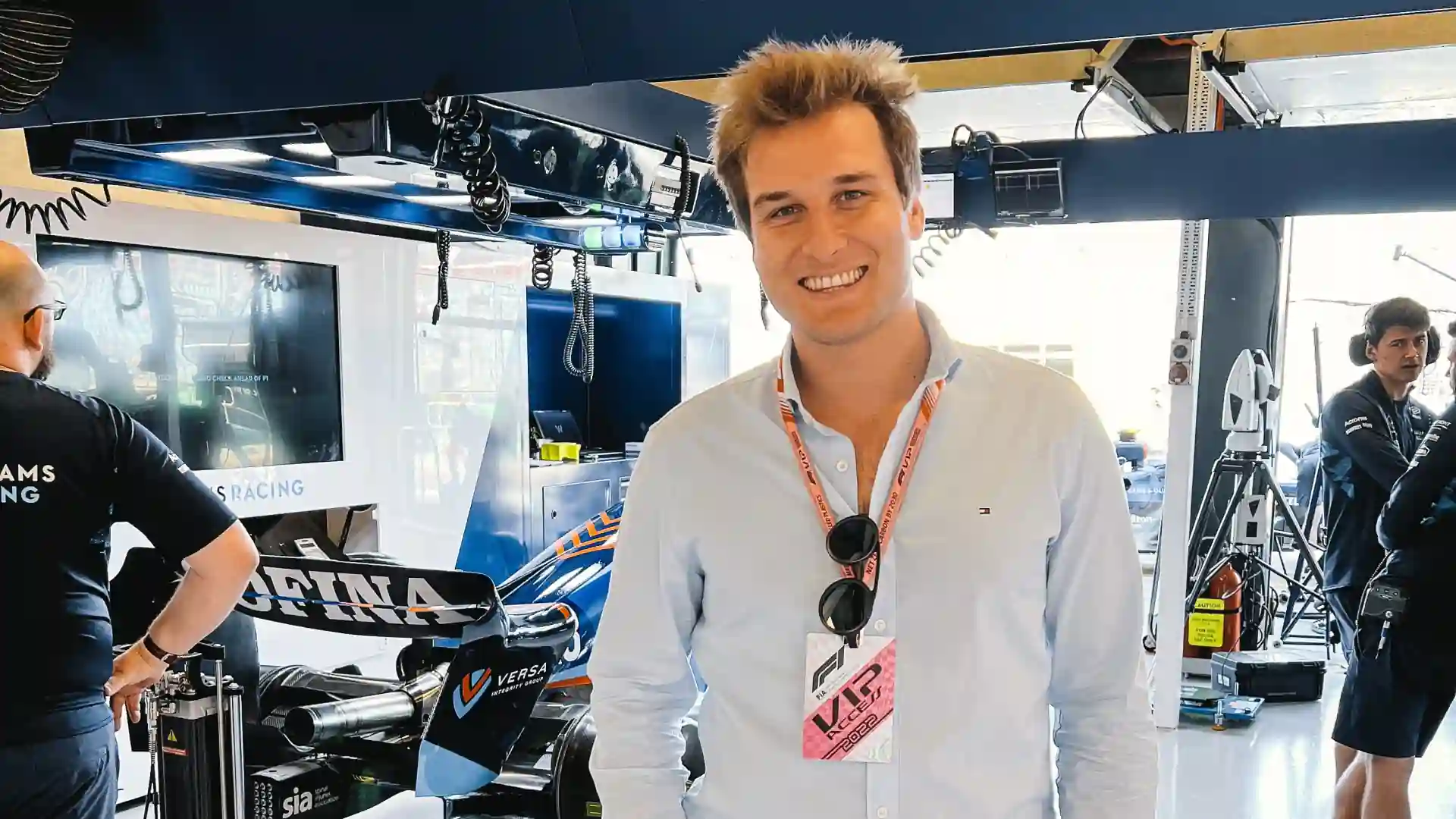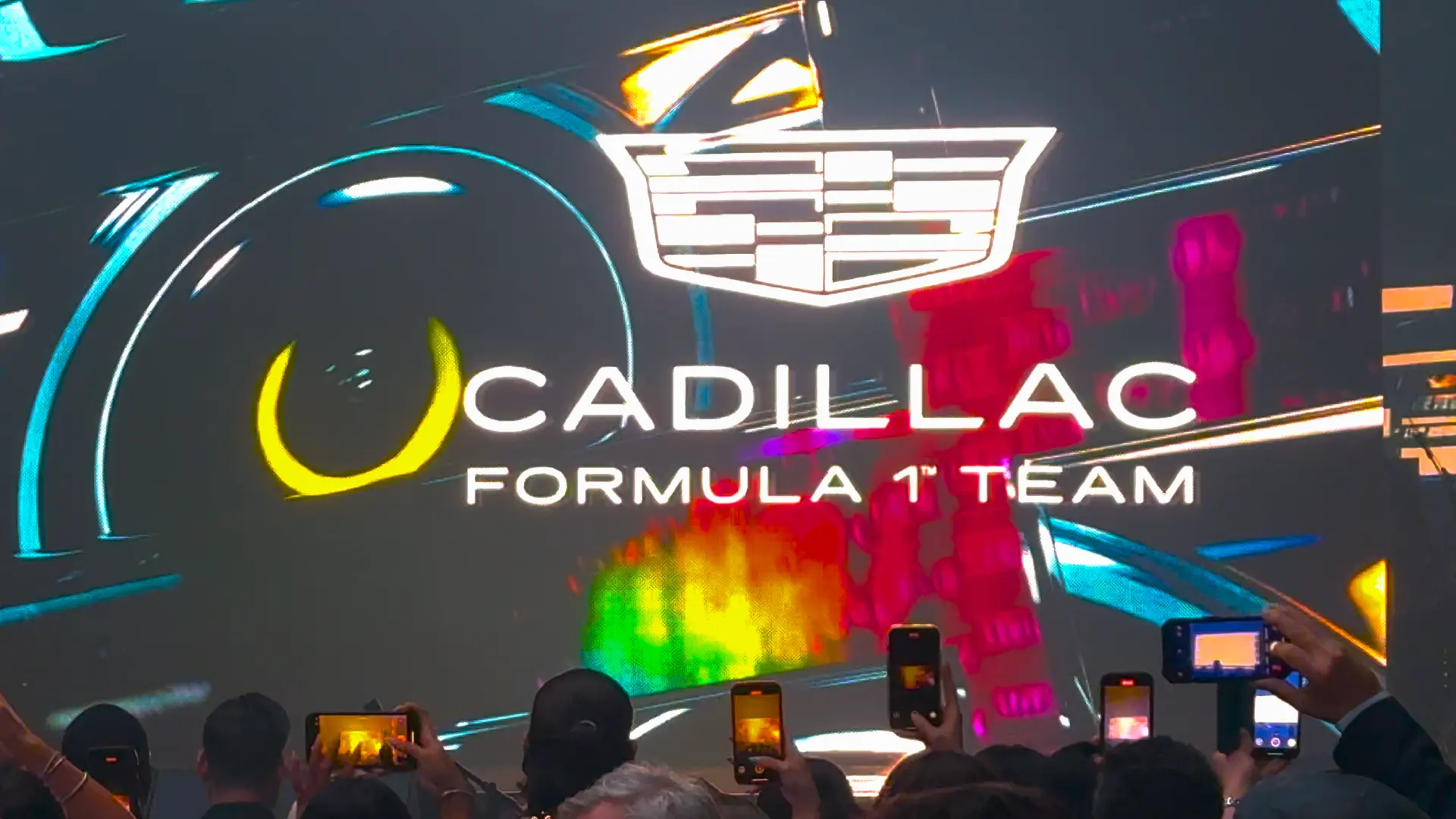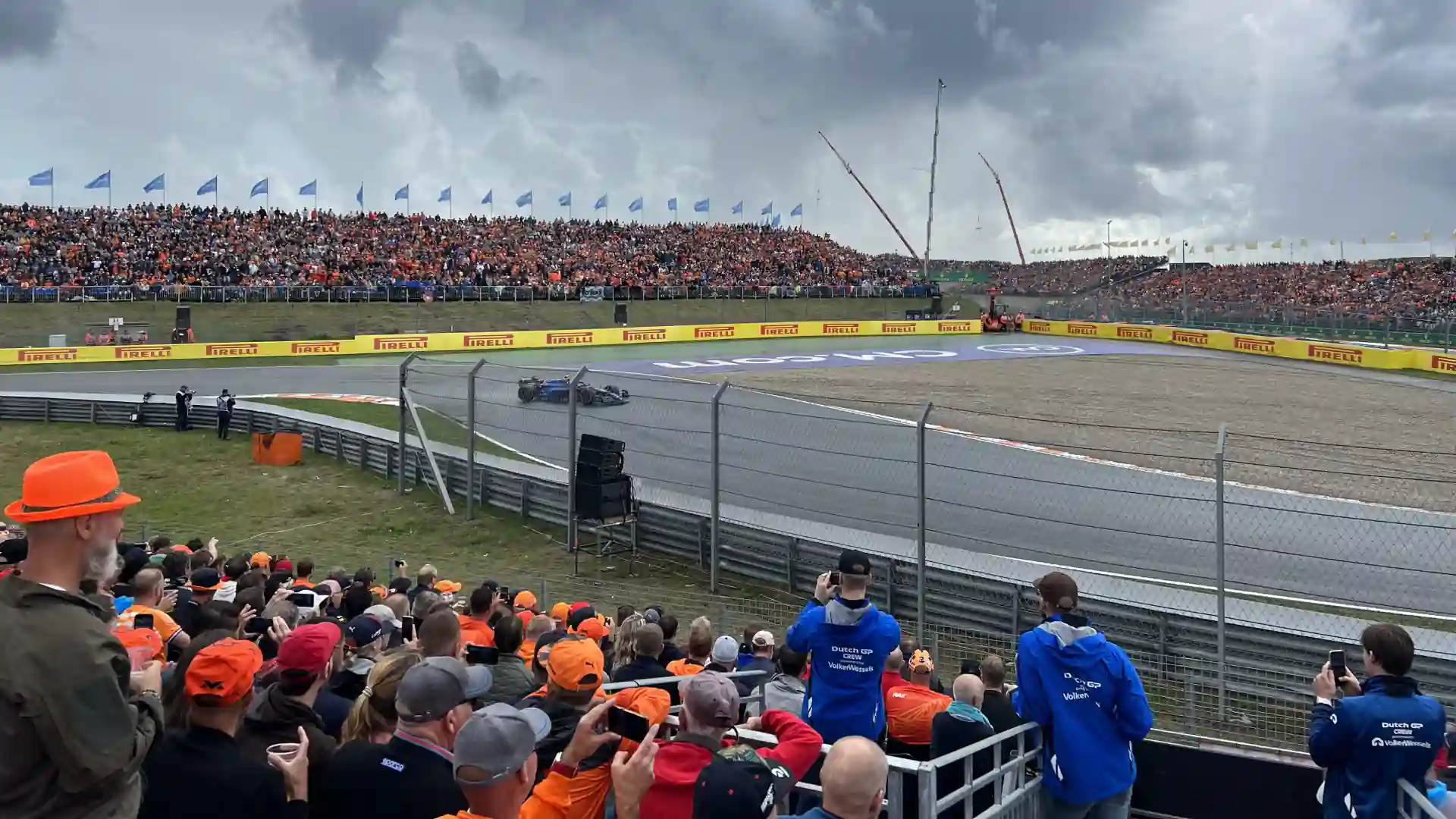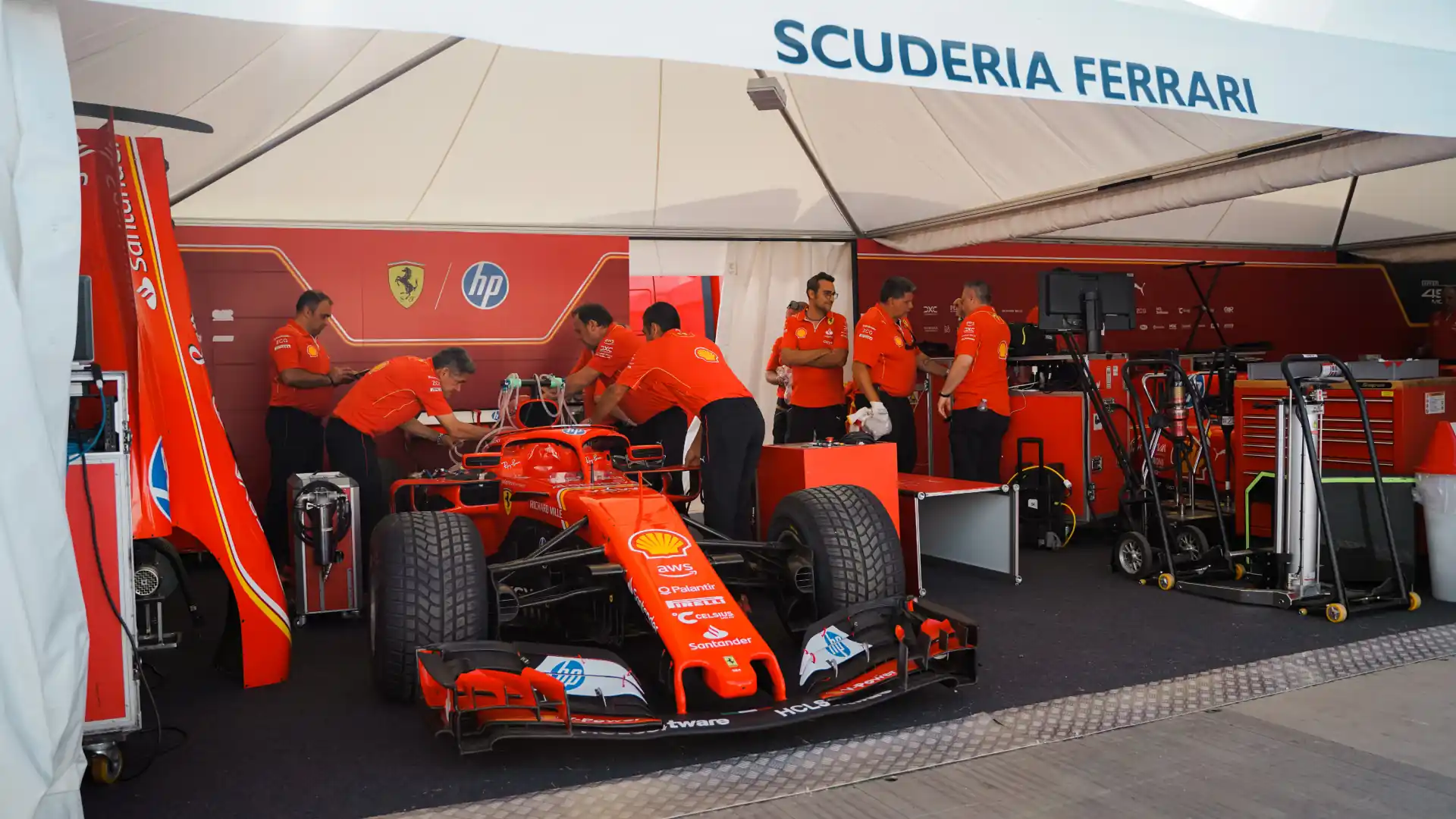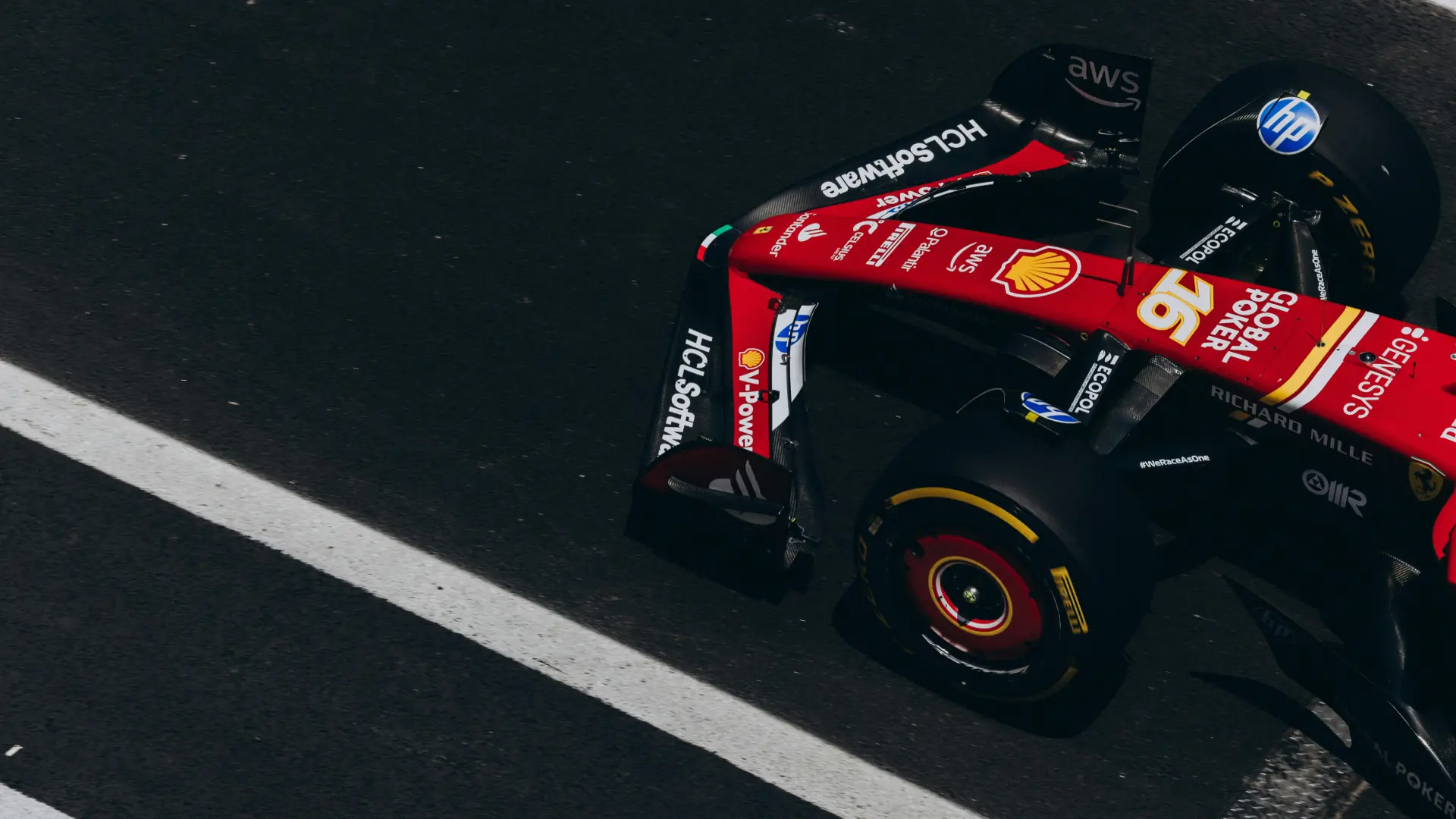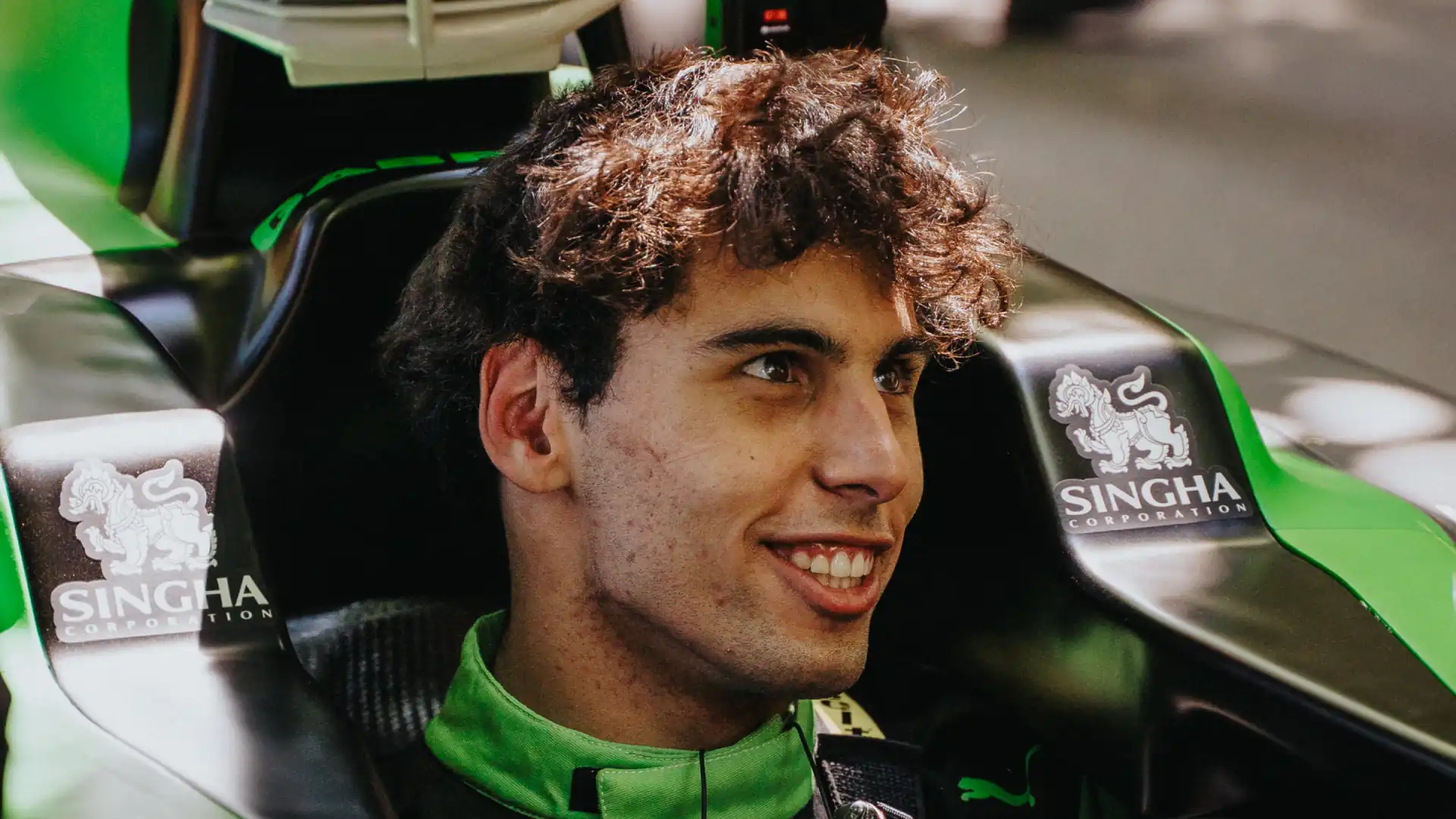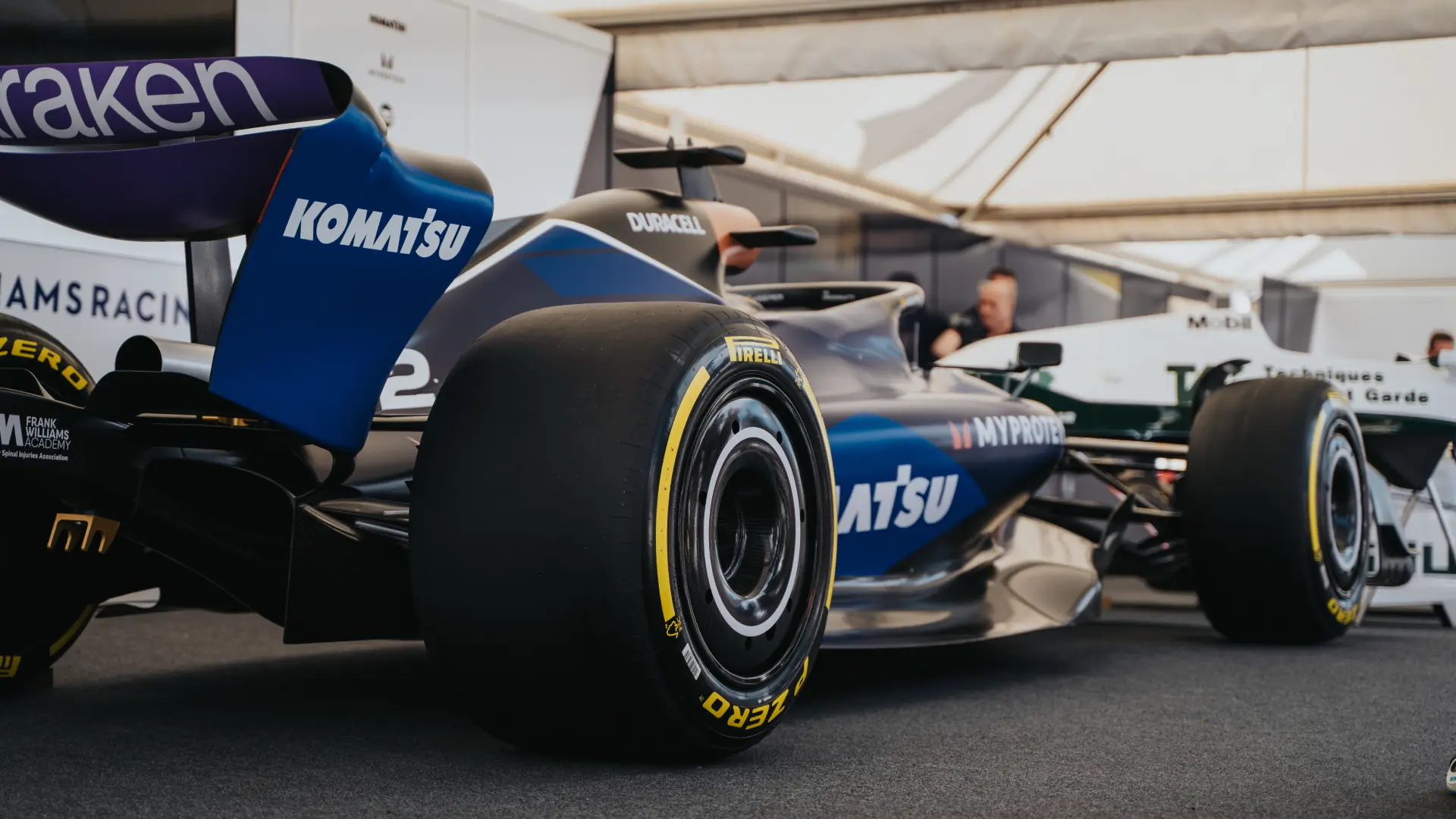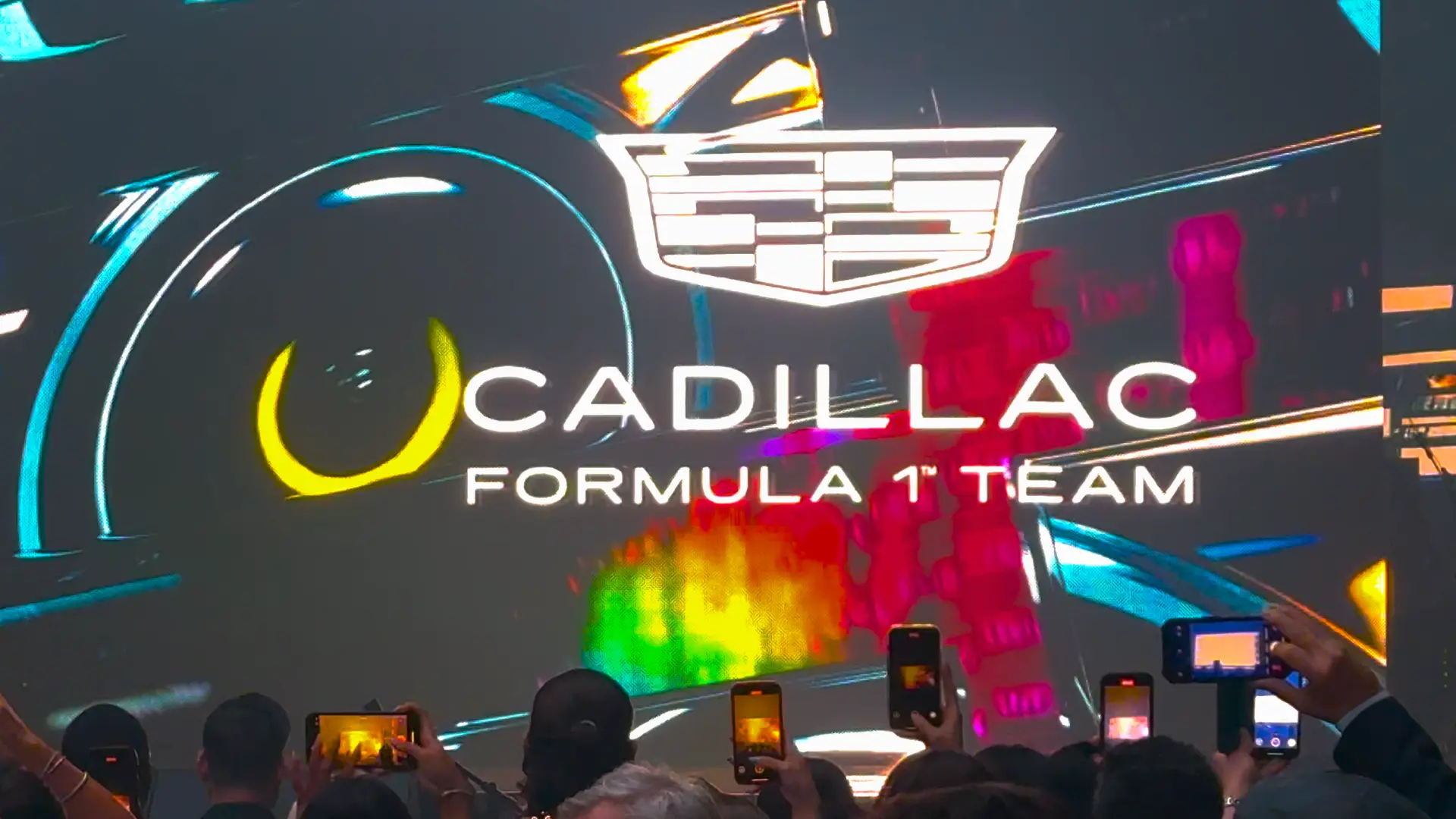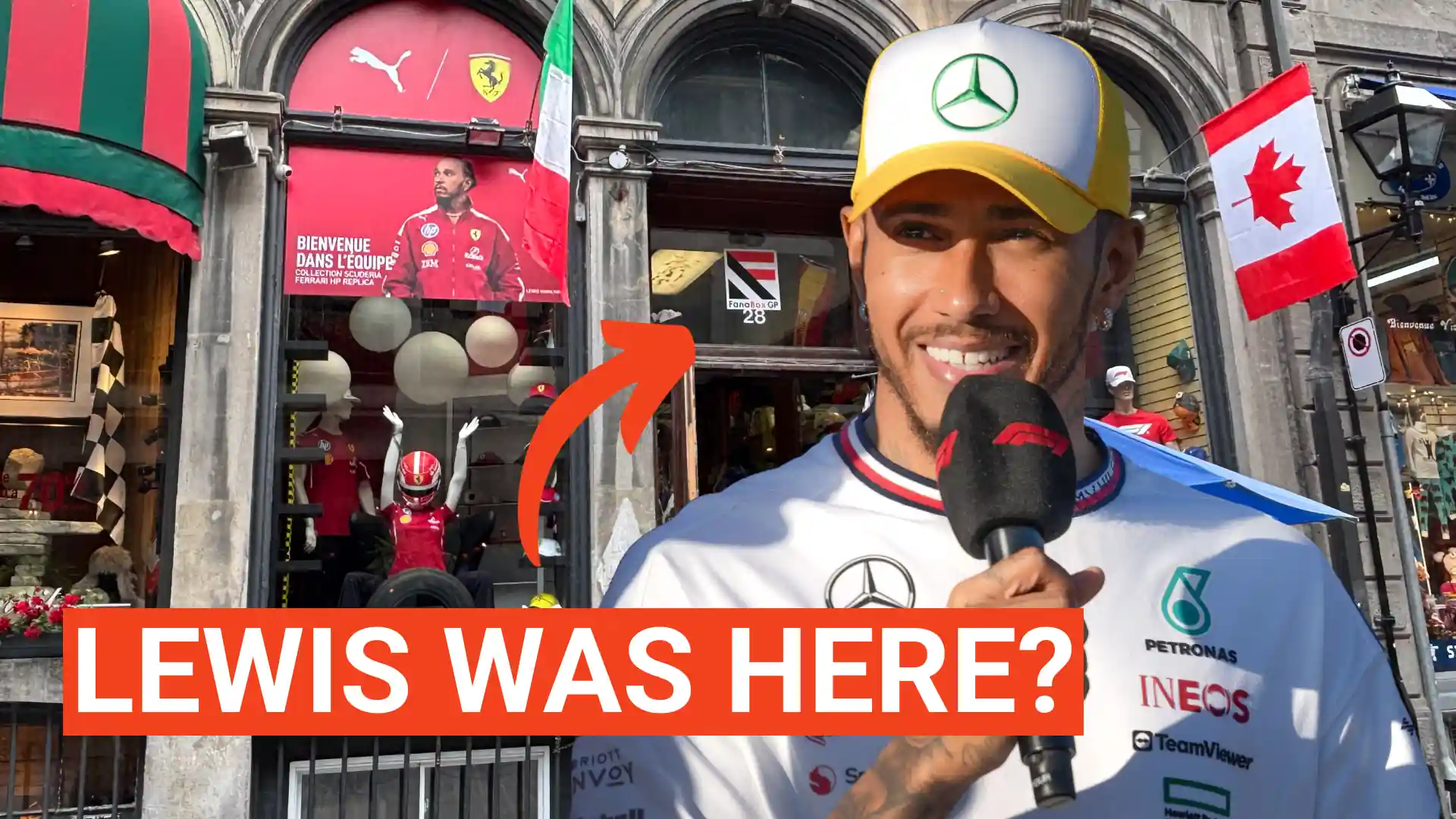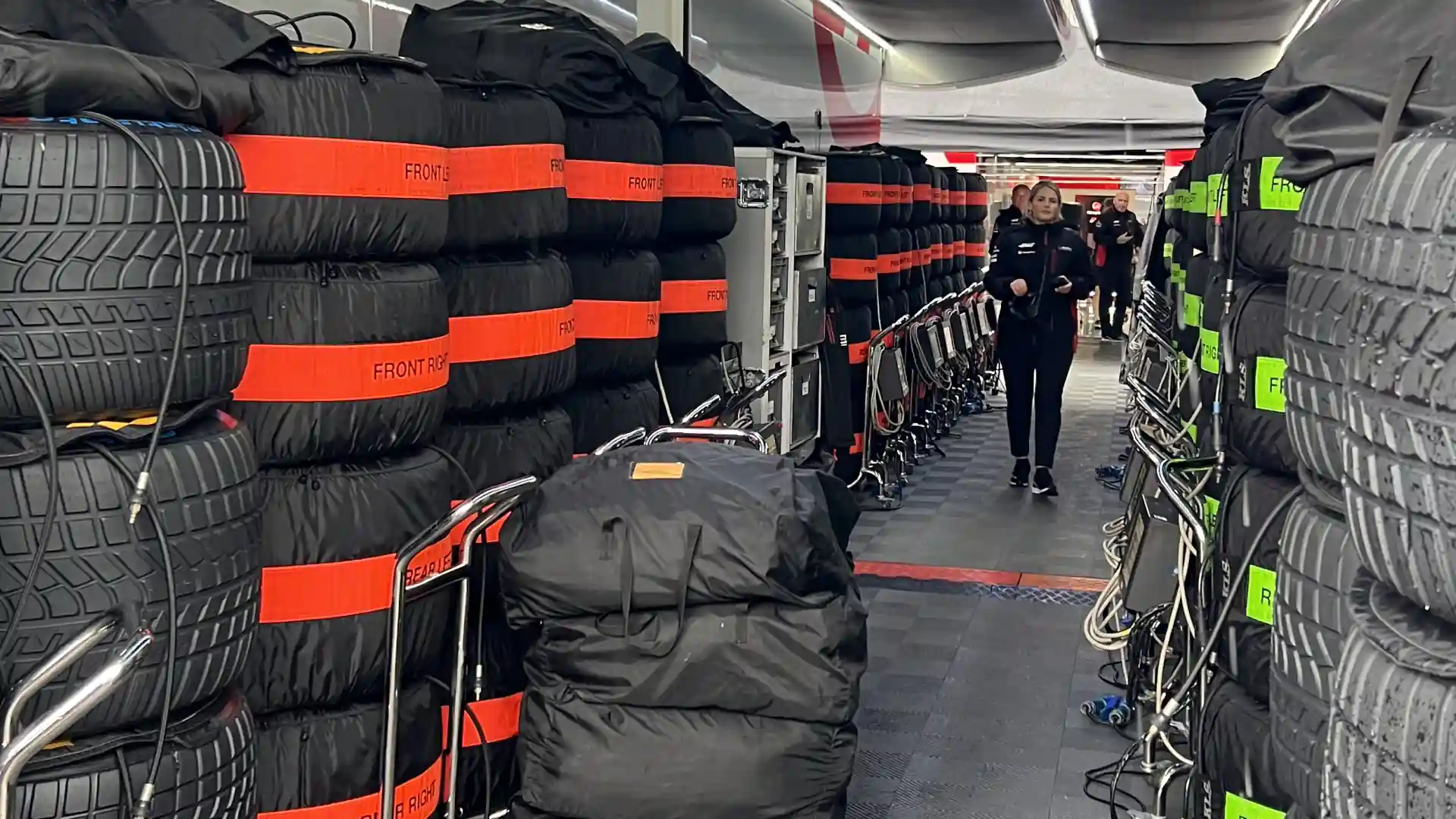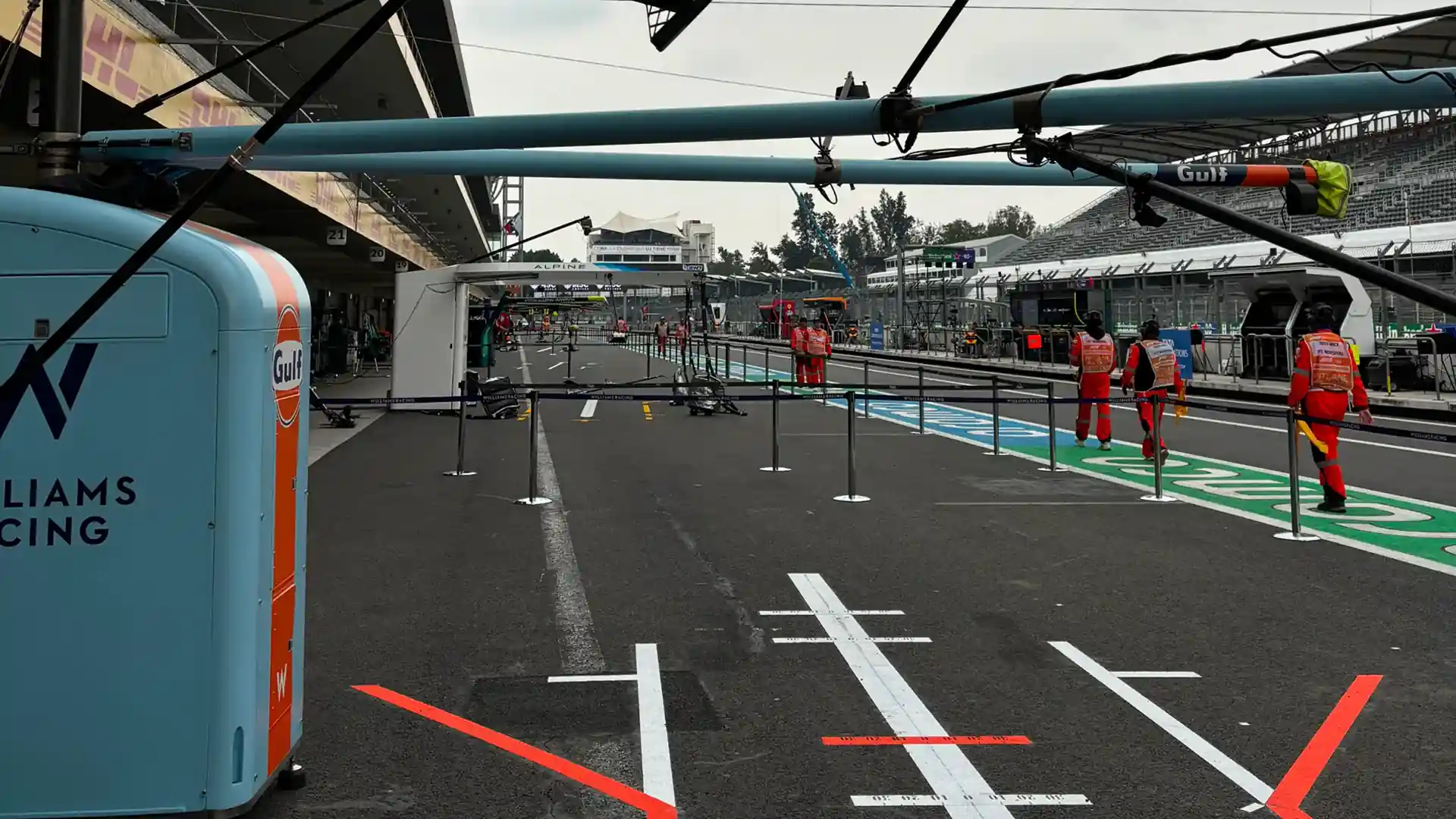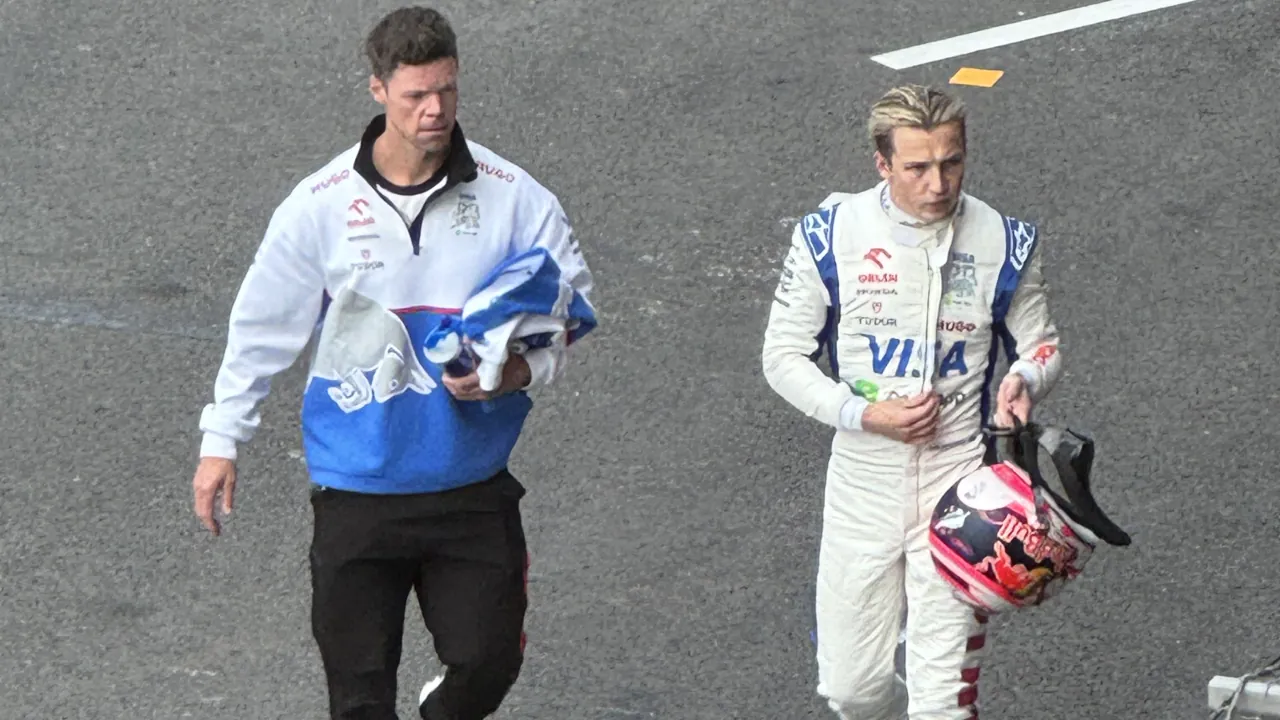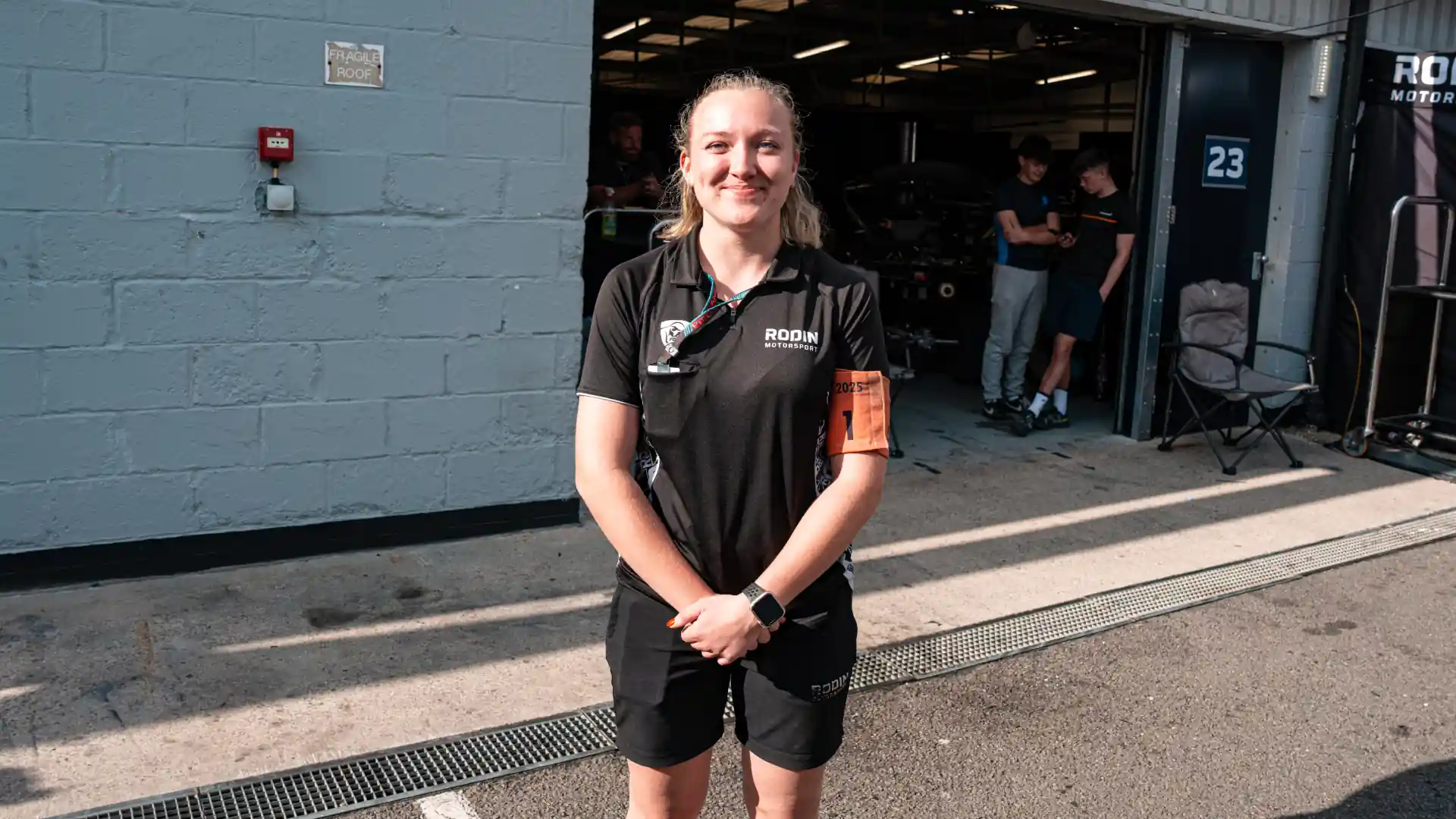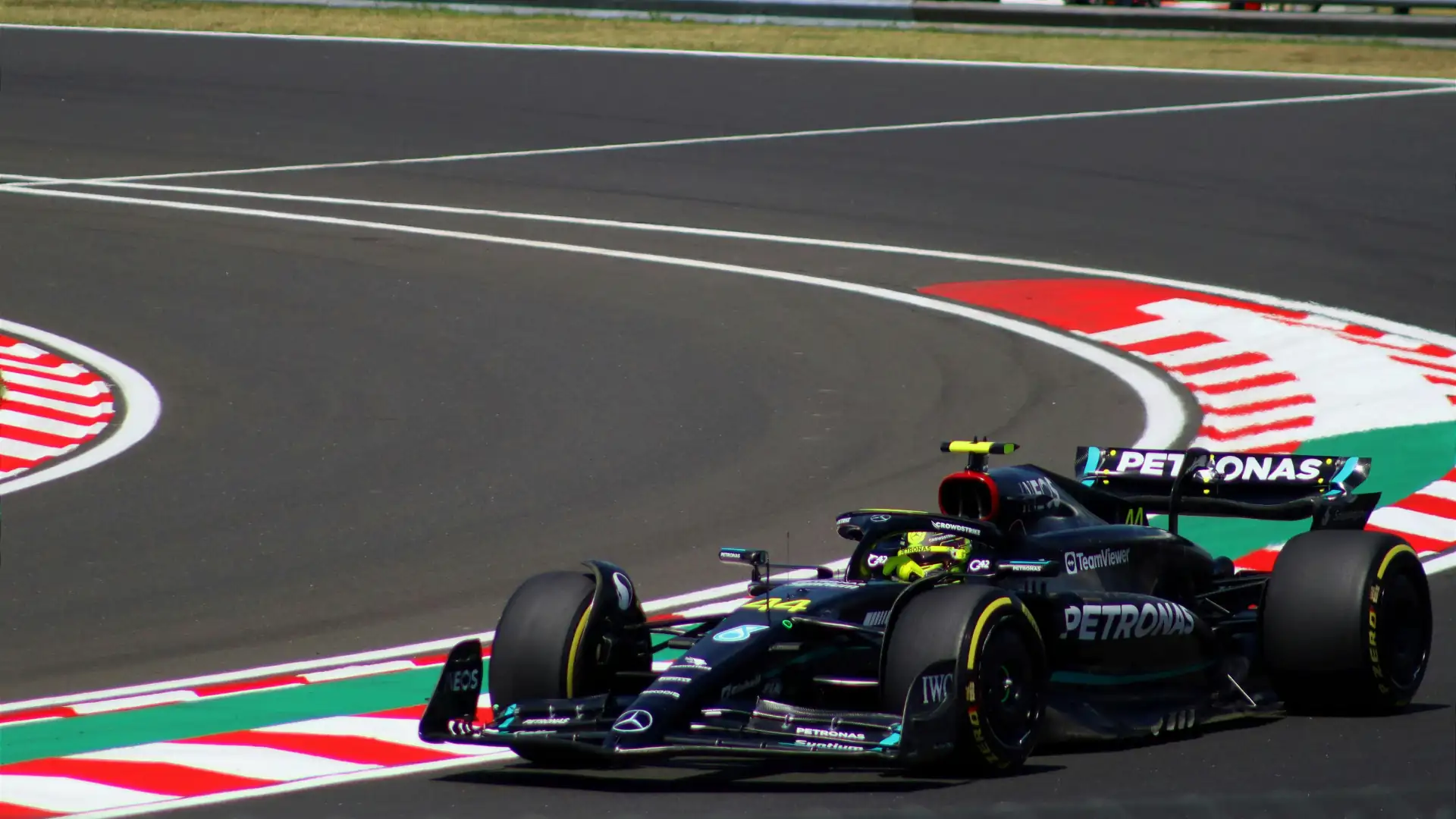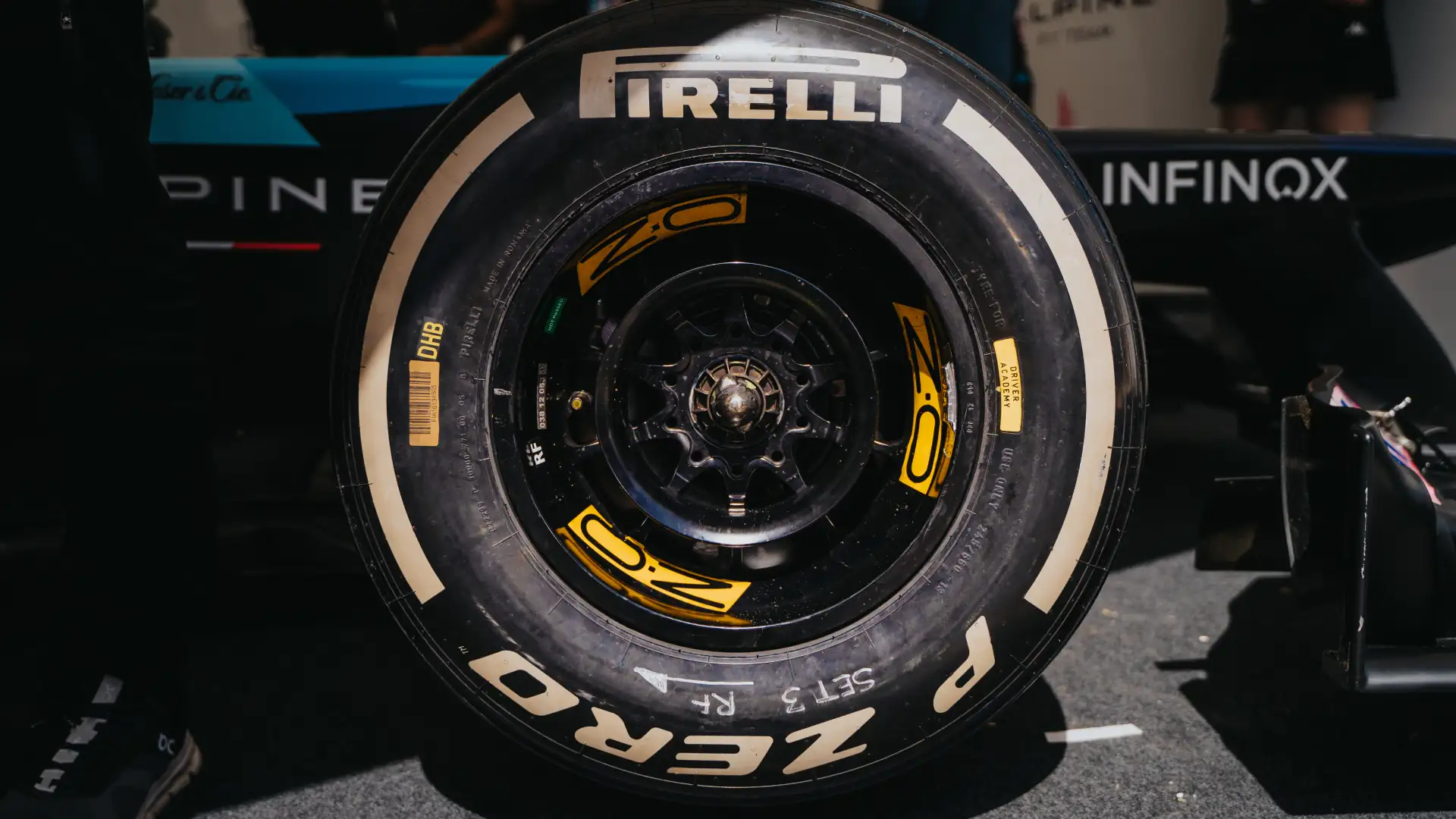Callum Ilott opens up about his "unfinished business" in IndyCar and how he's helping Prema build their team from the ground up
He's raced F3 and F2, including a stint with Europe's top junior team Prema, tackled F1 test and reserve driver duties, conquered endurance classics like Spa, and is now spearheading Prema Racing’s ambitious IndyCar debut.
Join us for a deep dive with Callum as he shares the inside story of building an IndyCar operation from the ground up. What are the unique challenges for a European powerhouse entering the fiercely competitive American scene? How does the driving and team philosophy differ? And what does it take to adapt your skills across everything from high downforce F2 cars to IndyCar machines on bumpy street circuits?
Callum opens up about his diverse career path, the “unfinished business” of wanting to prove himself and why that brought him back to IndyCar, and the dedication required to turn a brand new team into a winner. Hear his honest take on the expectations surrounding Prema, the reality of starting from scratch, and his personal drive to achieve success in the NTT IndyCar Series. Plus, find out what makes Prema feel like a familiar Italian family even on the other side of the Atlantic.
Don't miss this insider perspective on one of IndyCar's most anticipated new entries and the versatile driver at its core.
We launched FanAmp Insider to take YOU behind-the-scenes with the people that bring the world of motorsports to life!
Our team constantly travels to races and motorsports events, and every time we return with incredible stories of people - drivers, mechanics, marshals, and so many more - all achieving amazing things. These accomplishments so often go unsung, and so we decided to document and spotlight them. In a world obsessed with technology and fame, our mission is to refocus the narrative on stories about the human spirit and ingenuity. These raw emotions and insights fuel not just the racing but the day-to-day lives of those watching. We believe these incredible stories will empower and energize you.
Enjoy! - Greg
Introduction [0:00]
Callum: There's a reason I was a racing driver and it wasn't because I was amazing to start with, it was because I was shit at everything else. Prema, you were able to take every driver and make them into the best that they can be. I just want to build on this, I to win some races. I want to give these guys some success as well.
Who is Callum Ilott? [0:24]
Greg: I'm Greg, welcome back to another episode of Fan Amp Insider. I'm joined with Josh. we are here in Long Beach, California with none other than Prema Racing driver, Callum Ilott.
Callum: Thank you for having me!
Greg: How's your weekend been so far?
Conor: It's been good. It's been good. It's a lovely place to be and we've got a nice hospitality here. It's nice. I'm enjoying it. I always love this place.
Greg: For those who don't know you, who is Callum Ilott?
Callum: So yeah, I've raced in IndyCar, raced in WEC, Formula 2, Formula 3, done a bit of Formula 1 stuff, never got to race it, unfortunately. But yeah, I've been around, I've done a bit. I've experienced most of it. It's part of my life since I was seven years old. I won a lot of stuff in karting, won some races in many different things, but never a championship, except the Hypercar privateer side of things.
Josh: For you, was your family into racing? Is it just something that you kind of fell into?
Callum: I kind of fell into it. yeah, my mom and dad were never in racing. No one in my family was ever in racing. And I think I went to like a go-karting birthday party and really enjoyed it and didn't shut up about it. My dad used to work in London and he'd take the train every day into London and go past the track that I started. I ended up starting out, but I did the first day out. And he took me there, took me back a couple of times. The guy was like, the track was saying, if you want to do it more cost effectively, you need to buy your own go kart. He lied because it wasn't cost effective. No, he actually trained me for my first couple of years, his name is Steve Cutting. He is a good dude and like he started me off in the world of racing and just grew from there. But I think the one thing for me was like my dad let me try a load of different sports and like from football, cricket, rugby, the standard school sports we'd play to tennis, to trying to find something that I loved and gelled with.
Josh: With all those sports that you did growing up, if you were done with racing and had to choose a different sport, what would it be?
Callum: It wouldn't have been sports! There's a reason I was a racing driver and it wasn't because I was amazing to start with, it was because I was shit at everything else.
Greg: You then move directly into the Formula Series out of karting. What was it like taking that jump?
Callum: That was quite a tough one. I didn't really know at the time, so that was with Red Bull and the Red Bull Junior team. It was just after Max Verstappen had gone from karting to Formula 3, and then obviously into Formula 1, and they wanted to do the same at Red Bull, and I don't blame them, but Max is a once-in-a-lifetime talent. And yeah, I got into Formula 3, and I did a solid job for the first year with quite a small amount of testing and exposure to cars at the time, but it wasn't quite enough to continue with Red Bull, unfortunately, but still cool. Like to go straight into a high downforce car. And for me, like the Formula 3 car was always one, if you threw me in it tomorrow, I feel at home again. It was one that just was such a good car, a bit underpowered, but so light, great downforce. yeah, I took a couple of years of a Formula 3, but I gelled with that one quite well.
Greg: You also ended up with Prema.
Callum: Yes, so Prema was the last team that I drove for in Formula 3 full-time and I clearly left enough of an impression to come back to them several years later.
Greg: Is there something you like remember from that moment in those days?
Callum: I didn't quite execute on the racing side, like I needed to improve a bit on the starts, I needed to improve a bit on the race craft, but I was super, super fast and they had a great car and the year before they were dominating, my year we kind of stunted a bit and they could come back the next year and improve again and again and again and that was one thing with Prema that other than the friendliness that was within it, the competitiveness and the room to always improve and I think they just, we're in a bit of a different situation now, but they were able to take every driver and get the best out of them.
Obviously we're building something from the ground up here, so it's a completely different style, but yeah, on the European side and what they're used to, they can just take drivers from every background and make them into the best that they can be, which is why there's so many of them in Formula One now that have been with Prema.
Adapting Across Racing Series: F3, F2, WEC & IndyCar [5:00]
Greg: The traditional path to Formula 1 looks like a pyramid. Drivers normally start in karting and it becomes harder and harder to graduate to the next series. For those who do, the cars and competition become increasingly more demanding. In Callum's case, not only did he skip some steps on his way up the pyramid, he did so while scoring a seat with his storied team. Prema. You see, Prema racing has been around since the 1980s and is a training ground for drivers who have gone on to excel at the highest level of motorsport. In fact, if you were to look at the current Formula 1 grid today, nearly half of the drivers are Prema alumni. In Callum's case, his time with Prema set him up for a promotion to Formula Two and a role as an F1 reserve driver. It also prepared him to race in other series, including various endurance racing classes and of course, IndyCar.
Josh: It's interesting seeing how well you do jumping between series, even filling in for David Malukas for a couple of weeks. You seem like you are very good at picking up a car naturally, even when it's a completely different style. For you, is there something you take from going from F3 to F2, but then even jumping into something like a Hypercar that you take to kind of rein that all in where you can take those things you've learned and put them into a completely different vehicle?
Callum: You have to have a good fundamental ability to be able to adapt, right? I think there's some people who are able to really fine tune the series that they're in. And I think for me, one of my talents was just being fast and being able to get the most out of a car. And of course, some cars require a bit more work than others. Like I didn't gel so much with the GP3, but I gelled with the F2 and the F3 car. I was very fast in the JOTA, the Porsche 963. But at the same time, I needed to refine myself a little bit to the endurance side of things. And I did a good job of that in the GT side of things, but it took me a little bit longer with that Porsche, but again, it super fast. And then the IndyCar side is just, it's a completely different series to everything.
You are 100% attack all the time. And it's a heavy single seater, which, covers tracks that I was never used to in Europe. Aside from the ovals, our road courses are as bumpy as the street circuits in Europe. So trying to get used to that. And at the same time, when I came into IndyCar, I was doing it on my own in the team. There was no teammate. And that was one thing for me is I could always rely on myself, but at the same time, having you only know what you know. So that was my limitation of I was having in some situations to learn through myself by making mistakes. And also when I got the opportunity like at McLaren last year to bounce off of two really good drivers and then Kyle for the 500, I was trying to take it all in as quickly as possible because, know, Pato was super fast and one of those guys where you're like, this is going to be tough to beat. And Rossi with his experience and at the 500 had some amazing philosophies that you could just think like, you know, should I try? It seems a bit bold, but yeah.
The Challenges of IndyCar [8:11]
Greg: Even in the, going back to the F2, F1 side of it, you were there with very competitive people. You came up through the ranks with, I mean, you were number two behind Mick Schumacher at end of that. What did you take from that time period, and do you think that that sets you up for success within even this series when you went to Juncos?
Callum: There's a lot of different things you can take from it. The speed in the qualifiers, the kind of style in the championship, the tyre saving from the Pirelli tyres. You can implement that into the Formula 1 side of things. You can implement it into a high-deck race here. The Formula 1 development roles where you're learning off of drivers who have been professional in Formula One many, many years, even just sitting there on the radio listening to how they do the debriefs and the simulator sessions. You pick up so much of how you should behave, how you can behave, what the communication should be. And you also learn like, okay, so this person's really good at this, this person's really good at this. If I could blend the two, that would be great. It's a lot of little things.
Greg: When you're on the radio, like to make that real. Was there something that that first moment where you're like, wow, hearing so and so talk about strategy or managing a race or whatever.
Callum: The strategy side of things, I would say, is more the team. for me, it was really interesting to see the behind the scenes of how they decide and what they do. So Ruth Buscombe, she kind of helped me understand a lot at Sauber and was showing me the ins and outs of everything in the process and even some quality stuff I'd get involved in because I could see down the pit lane a bit better than some people who were on the pit wall with me.
She was great at translating that side of things because as a driver, you don't really appreciate it then seeing the reactions of some of the drivers when things wouldn't go their way. And you're like, yeah, it's not that simple. You can't just, because I understand why you see it that way, but this is how it was. This is why that was made. it gives you an extra understanding of it. But of course, when you're in the car, you can only think about what's going around with you. you need to take a step back. And a lot of times you don't get that time to before a microphone shoved in your face or you have to give feedback.
Greg: Coming out of that time period, you'd seen a lot in F1, F2, right? You had a lot of this experience, and now you're coming to Juncos and into IndyCar, and you are the only car. I heard you talking to Conor Daly and talking about this. You mentioned sort of in passing, but this idea of like this team principle.
If I can achieve what I want to with this team, you know, even if I want to take a job as a team principal, that kind of mentality of like developing something and helping something from the ground up would be, would be even better
Greg: I guess when you came to IndyCar, was that an idea in your mind of being able to go to a team that's only got one car and you're the only driver that you can see and do so much more than you would at an F2, F1, or other series?
Callum: I think it's tough, right? Because at the end of the day, I'm still young, or even then I was still really young, and I'm not quite shaped yet. So I had a lot of things where I technically may have been right and good, communication, you always develop, every year you develop and you learn the hard way, you learn the good way.
It was great because it was a small environment and you were really able to push the team around you and get it working. there were some things where I definitely as a younger kid could have done a better job on the communication side and definitely could have still got what I needed out of it in a different way.
But yeah, it's tough being one car. It's tough being one car and then expanding and you know, like the performance shifts in other ways. There's a lot of navigational side of things that you just don't realize when you're coming up through it. And I had expectations coming from the Formula One side and Formula Two side of like, things need to be like this. And I wasn't wrong on it, but it takes time. And like one thing I've learned, which will probably come on to soon, is the patience side of things. Like some things are going to be the way it is and when you're building something from the ground up you can't expect you have to work every little bit you can't assume and you just have to get through some things before it starts unfolding.
Building Prema's IndyCar Team from Scratch [12:45]
Josh: Yeah, I mean, because you talk about like being new and I think, you know, people look at IndyCar and they're like, oh, it's a spec series. Like surely you could just jump in, and figure things out. But then you think about all the nuances that there are in the cars and having a brand new team. And it's, you know, one driver who is like relatively experienced, someone that's also new to IndyCar as well. That's a lot of pieces to kind of balance coming into a season. But it seems like you guys have done a good job of kind of hitting the ground, like running the best you can and setting yourself up for success in the future.
Callum: There's a couple of things I'll say, like one is it's the first time in a long time someone started from scratch. Normally you get someone with a technical partnership or they buy the cars and people off someone else. And this is the first time we've done everything from the ground up and with a small time frame as well. And it looks very impressive for the time frame we've had. And it's unbelievable actually that it looks as good as we've got.
The other thing like about European racing is the tracks are all very similar in the style, there's obviously some adaptions you have to make, but say, take with F3, for example, if you have a good car that works at say Barcelona, you can probably apply that philosophy to 80% of the tracks and you'll be okay. You have to adjust for ride heights and that sort of stuff, but you're not gonna change the fundamentals massively. If you have a car here that works for St. Pete, it's not gonna work for Road America. If you have a car that works for Road America, it's not gonna work for Barber.
And those are two road courses. And then you add in the ovals. You add in the street circuits where probably the long-term teams have dampers that work at each one of those for specific things. And IndyCar, as much as it's spec, is you've got a load of, well, you can do whatever you want with the suspension components. As long as it looks like a damper, you can run it. That's the rule, basically. It's got to fit within a certain dimension, but if it looks like a damper, it's probably a damper.
Then there's the supply, these guys have had these cars for 12, 13 years now. And you accumulate parts, you accumulate things that actually still work quite well now. And we can't get, because they were on the car five, six, seven years ago. And some of these things get run at some places. And it's a performance increase. So yes, we have done a good job. But it's incredible with the time that we've had, what we've built.
Managing Expectations and Being Patient in Racing [15:11]
Callum: But that is overlooked by the expectation of Prema in Europe. How well they've done in Europe and how quickly people think that you can do a good job. But again, it's the third race, right? The amount of small gains we've made that you can't even see in results is incredible. But you just have to be patient. And for me, as long as we put things together by the Indy 500, it doesn't matter.
Greg: So what is your benchmark on it? Like, before you said yes to coming here and doing this with Prema, was there something you wanted out of it? Like, these are my non-negotiables to be able to develop as a driver, as a X, as a Y.
Callum: There was honestly nothing. When I heard about it, I knew the mindset of the people involved and I actually developed on that as I joined. So once I signed, I was out in the US trying to understand more and the philosophy of seeing the shop being built as well. There are no non-negotiables, obviously, you don't want to make mistakes. You want to be efficient and the performance will come.
It was clear that some things wouldn't be in place for a little bit and we'd have to wait and develop on that side. But year one was going to be a learning year. That was always how it was going to be. And so the idea for me is like, obviously when we get the chance to prove ourselves in this year, we'll do it. But the goal is no matter what next year is massively competitive and we take what we can from this year.
But yeah, you have to work with what you've got and in some ways we're limited and in some ways it's great. But it is what it is and I understand it having been with a small team as well. It's the way it is.
Josh: Yeah, and I the end of the think people were excited for Prema to come in IndyCar, and people are still excited that Prema's in IndyCar. So that's a great start.
Callum: I just don't want anyone to overestimate it because at the end of the day it is such a competitive series and people go, 'oh why is it not good?' Well, we're just starting and actually if you take thermal, which is our second race weekend, FP1 I was like P16, FP2 I was P11. Qualifying, we didn't get right, right? It happens. Race, I didn't do a good job. My bad. But the pace, we had like easy top 10 pace. I was in some form sixth quickest overall. So I was like, okay, that's good. Warm up was great as well. And so on an average, it was a good weekend. We just didn't put it together.
Josh: Those little mistakes just can cost you so much. Which I think even F1 fans are kind of seeing now as they're watching a significantly closer qualifying where it's like, if you make a small mistake, it will actually cost you not just one position, but 10 potentially.
Future Aspirations and Goals with Prema [18:05]
Greg: What do you think, having this European team coming into this very Americanized series, what do think that does? What's the unique factor or flair that it adds?
Callum: I hope we set some examples in some ways that just raise the game a little bit. Obviously IndyCar is trying to improve as much as possible in every area they can improve. We've got a very good baseline product which is the racing. It's very competitive, very versatile and you've got some teams that have been here doing the same thing for a long time. Hopefully we can do things a little bit differently, add a bit of style to it. But also we need to be competitive as well.
You need to gain the respect and come in, but I think a lot of people respect the job we've done and getting to this point already. The 500 will be a big test of integrating into the US kind of racing culture, turning left all the time. But no, at the same time, I want the performance to be there, but from the outside, we want to be as quality as possible.
"Unfinished Business": What's Next for Callum [19:15]
Greg: Reflecting back on everything that you've accomplished, what is the next chapter for you?
Callum: Just to develop this. Develop this and try and stay in IndyCar for as long as possible and do a good job. I want to be competitive in this series. That's one of the reasons I came back to it was I didn't feel like I fulfilled what I wanted to. In everything else I've done, I've been really competitive and this I had little moments but never fulfilled that. And whether it's a race win or more than that, I would just, that.
That's my personal goal in the next couple of years. And then of course, you want to remain as a professional racing driver, and IndyCar is probably the most fun competitive series I've done. So it's probably the best place to stay for me. But at the same time, I love Daytona, I loved WEC.
Greg: I think part of the beauty is you can do all of it at once.
Callum: We have a clash with one of the endurance rounds of IMSA, unfortunately this year. So there was no chance to continue off of what I was doing. But yeah, hopefully in the future years you can do the IMSA endurance rounds plus IndyCar plus Le Mans. I'm happy, that's an upraising for me for the year.
Josh: To wrap up with one more question, if you were to add one more racing series to the list that you've already done, even though the list is crazy long, what would it be?
Callum: Super Formula maybe? I want to exclude F1 because it's just very niche. No, like Super Formula, I got close to doing it a couple of times and it's an amazing car. It's kind of, I would say, a real right in the middle of F2 and F1. It's light, it's dynamic, it's Japan, it's cool. Yeah. Why not? And then you can involve Super GT as well in that. But it's just not on my path right now. I just want to build on this, want to win some races. I want to give these guys some success as well.
We just got to work hard. It's just hard work. I don't want anyone, you know, negative or whatever. Just keep building. It's it's tough, know, it's tough. You have expectations, you need to shift them, but just full steam ahead.
Closing Remarks [21:42]
Greg: It was fun rewatching this interview. It's not easy to always maintain a smile when you're on a new team. My natural tendency would just be to default to work mode and shut everything out. And so what really stood out to me with Callum was his casual demeanor and his very measured mindset, even amidst all the pressures the team has on them.
Hearing his perspective, which he shared very openly, on that journey up the F1 pyramid and now building the Prima IndyCar team from scratch was really special. And I hope you enjoyed it just as much as we did filming it.
Greg: Calum, thank you very much. This has been great to be able to speak with you. Thank you We're excited to see what happens in Indy 500 this weekend and, yeah, the whole season.
Callum: Thank you for having me.
Want more exclusive Insiders?
Then you're in the right place! Head to our YouTube playlist for more, and be sure to subscribe to be the first to see new episodes. Or you can check out some of our recent episodes below:

